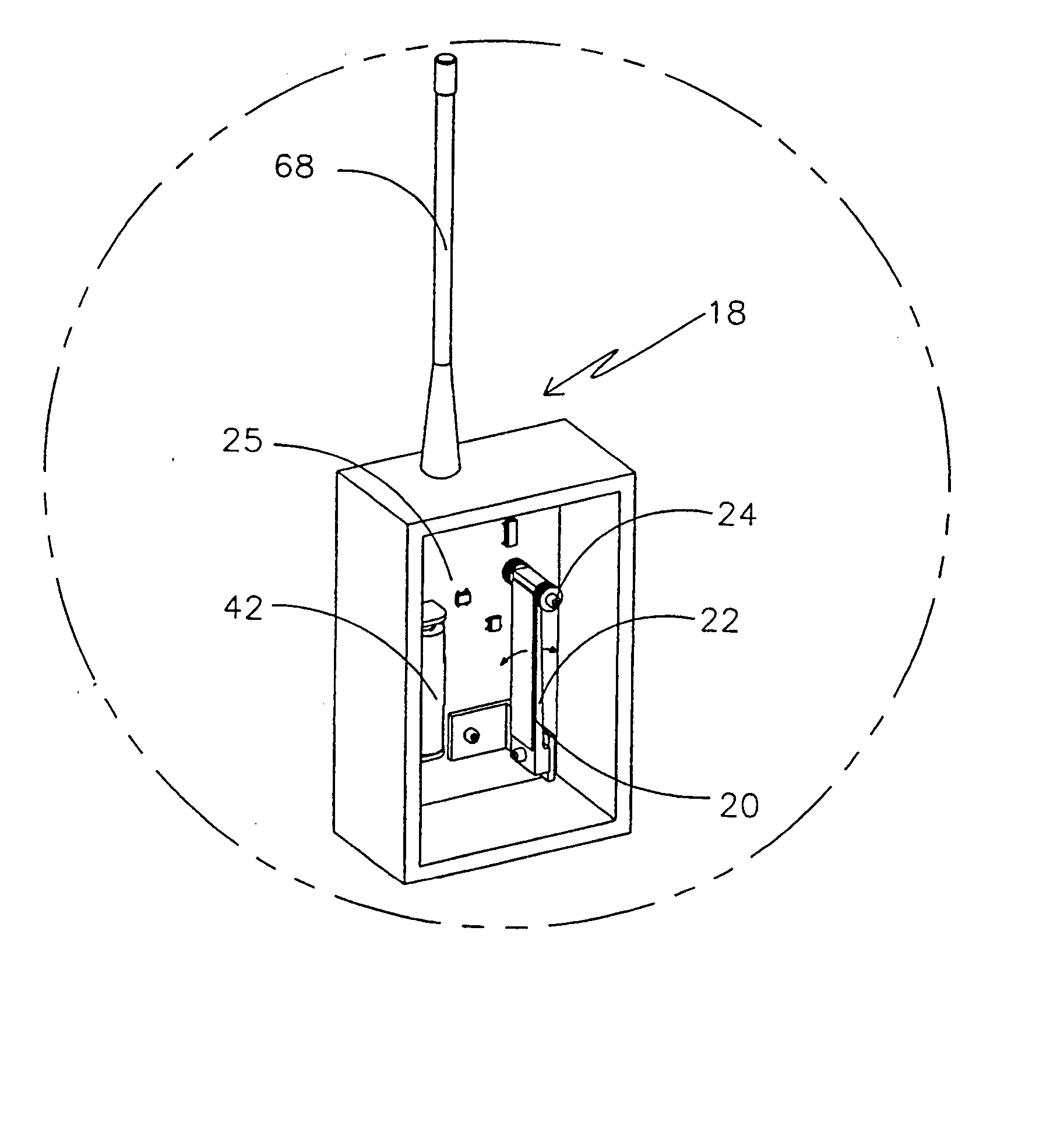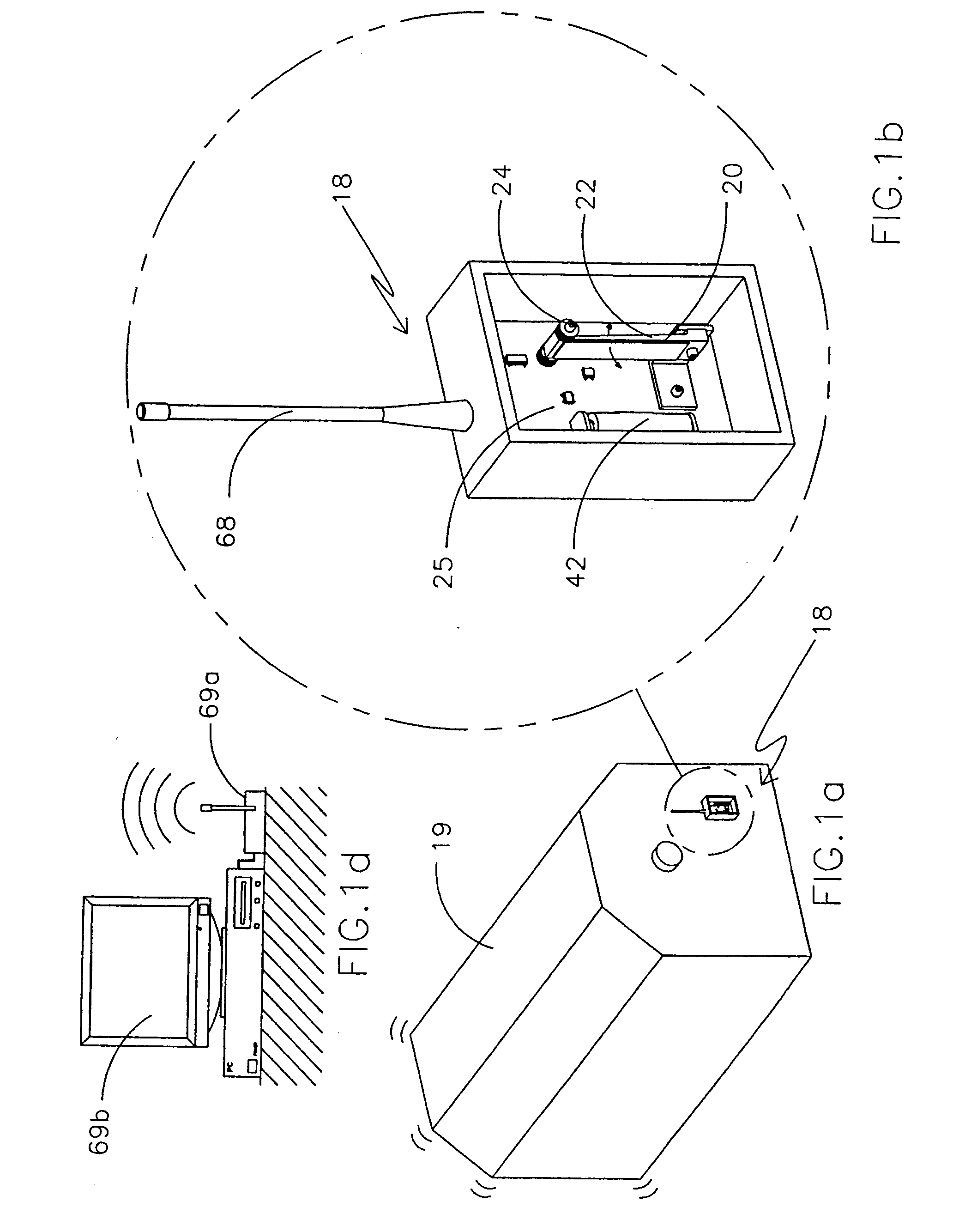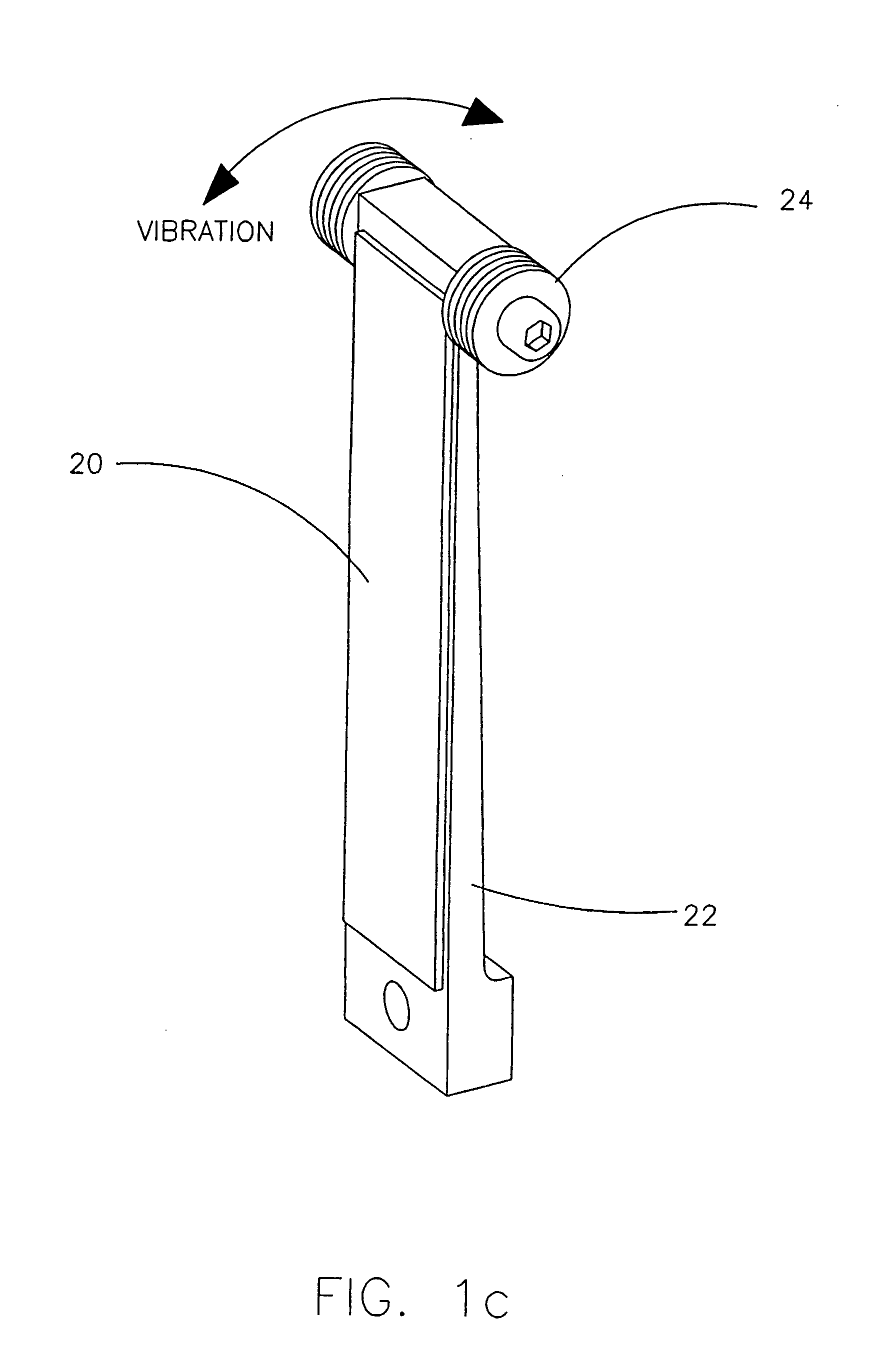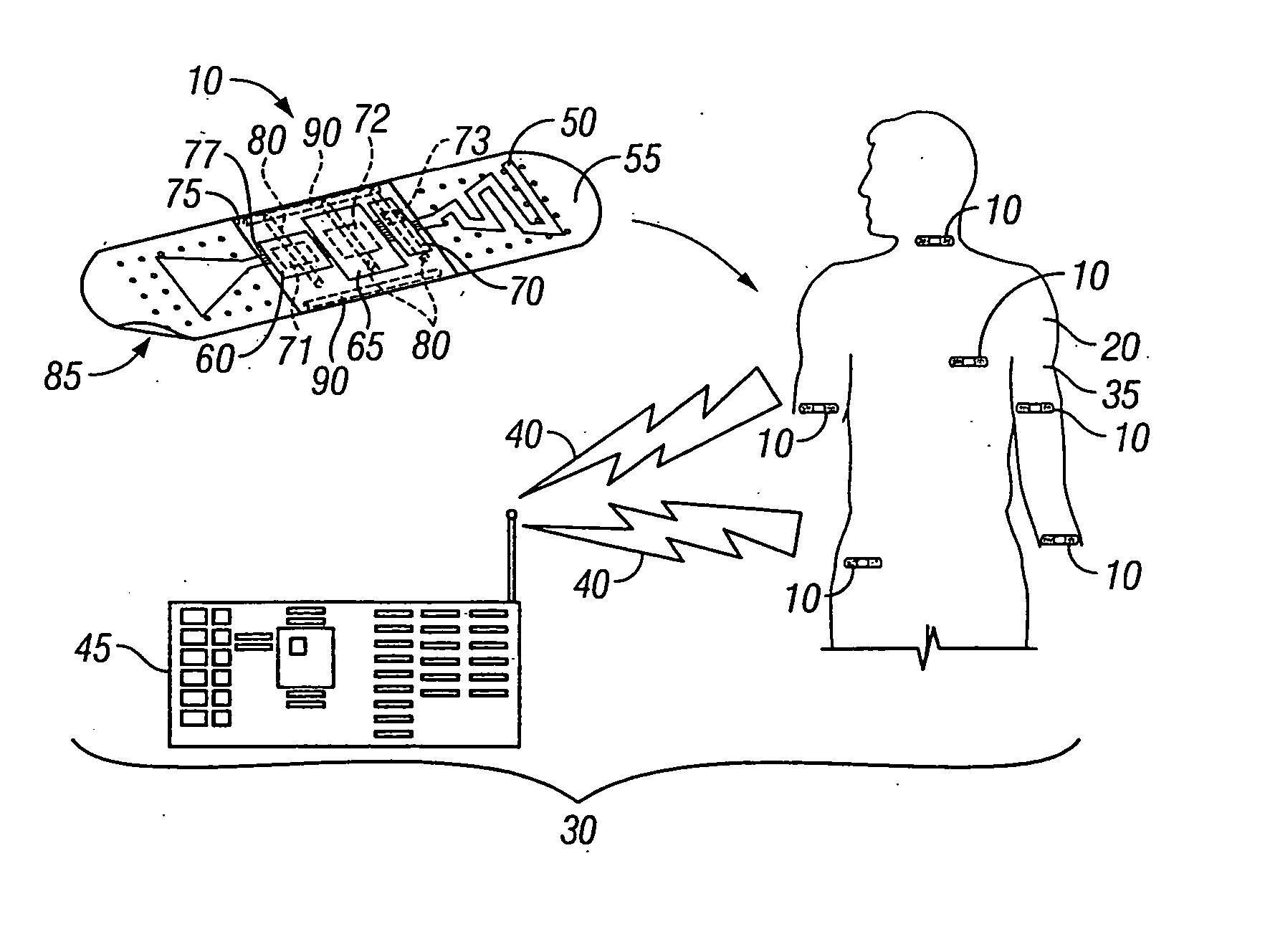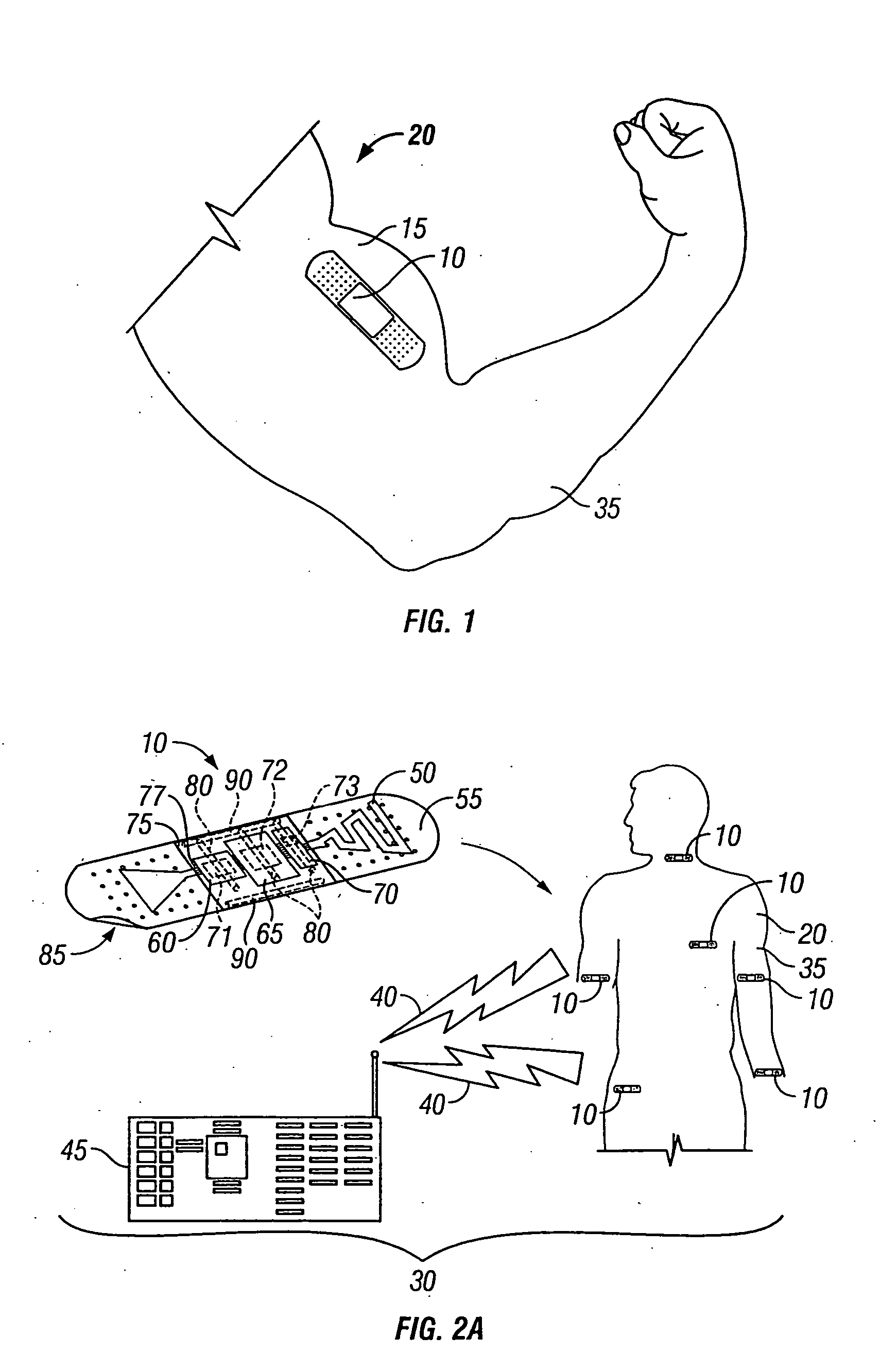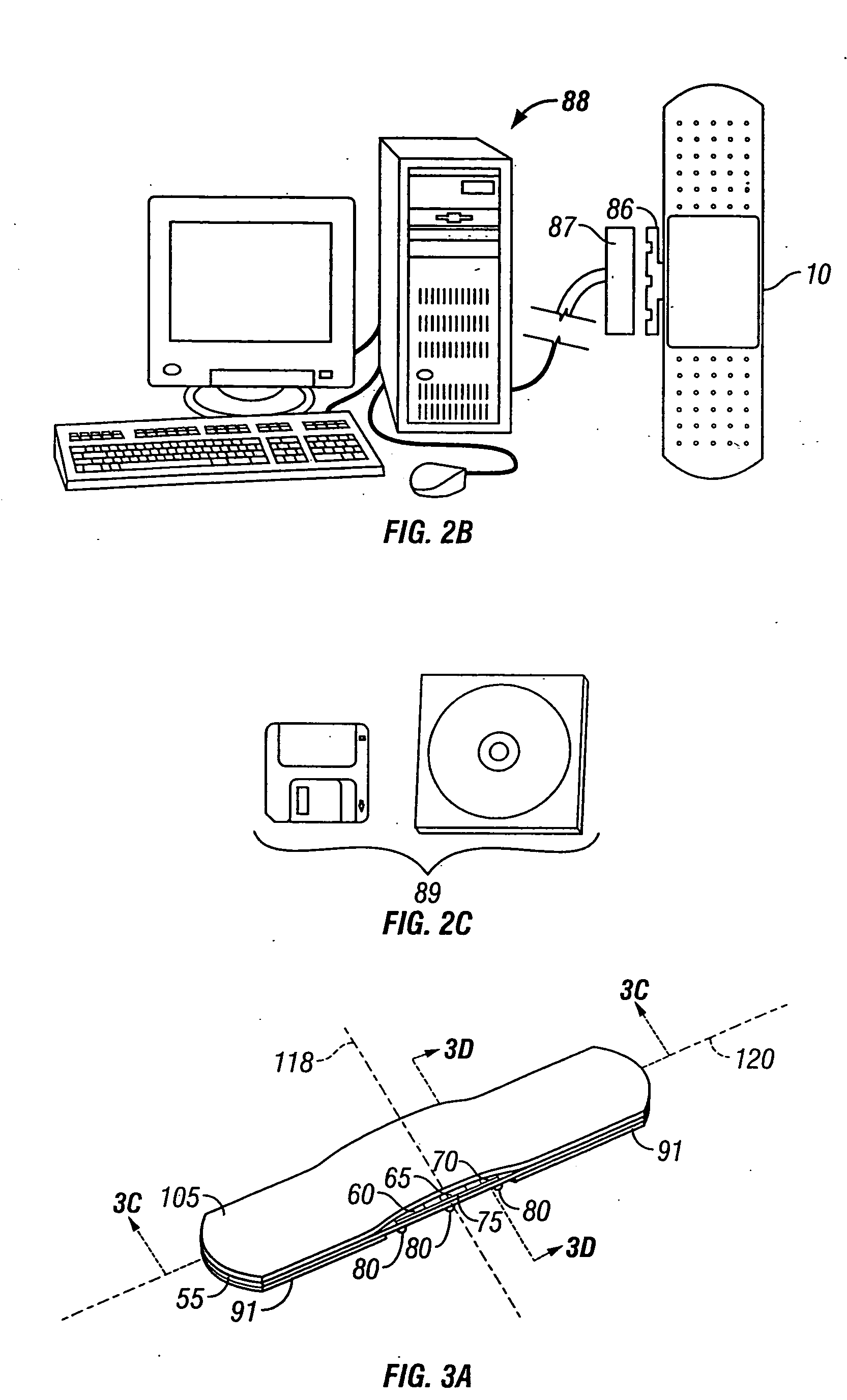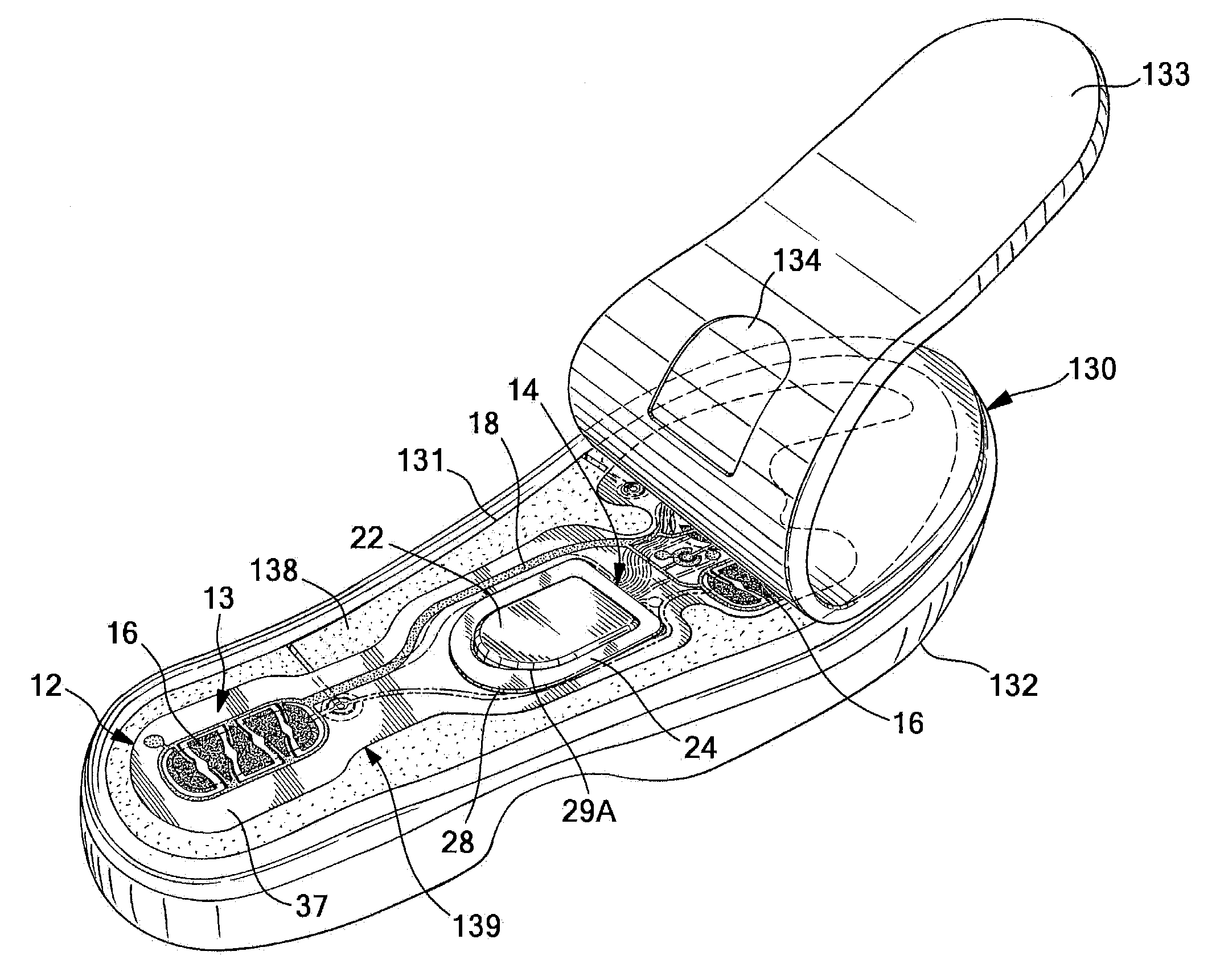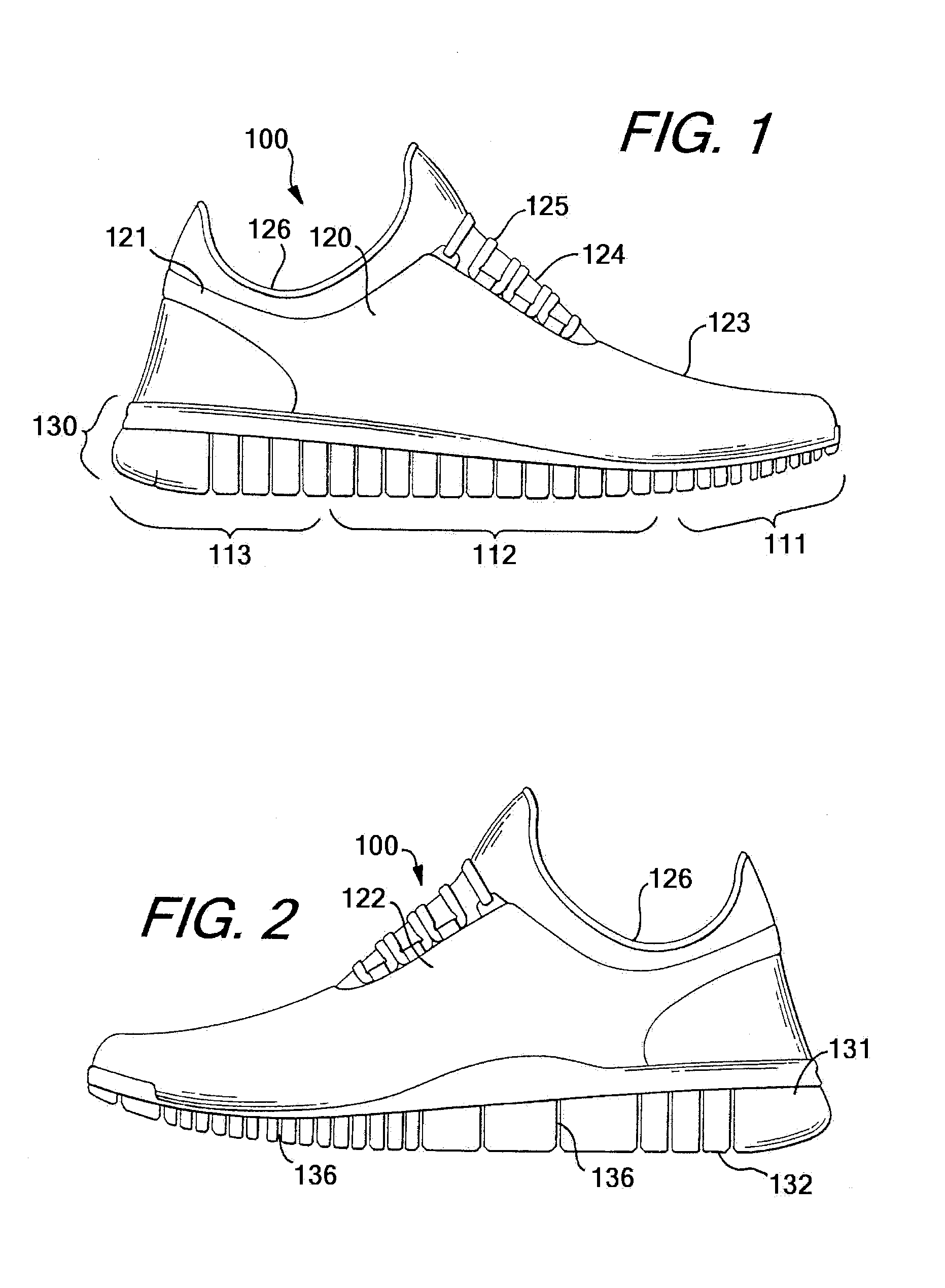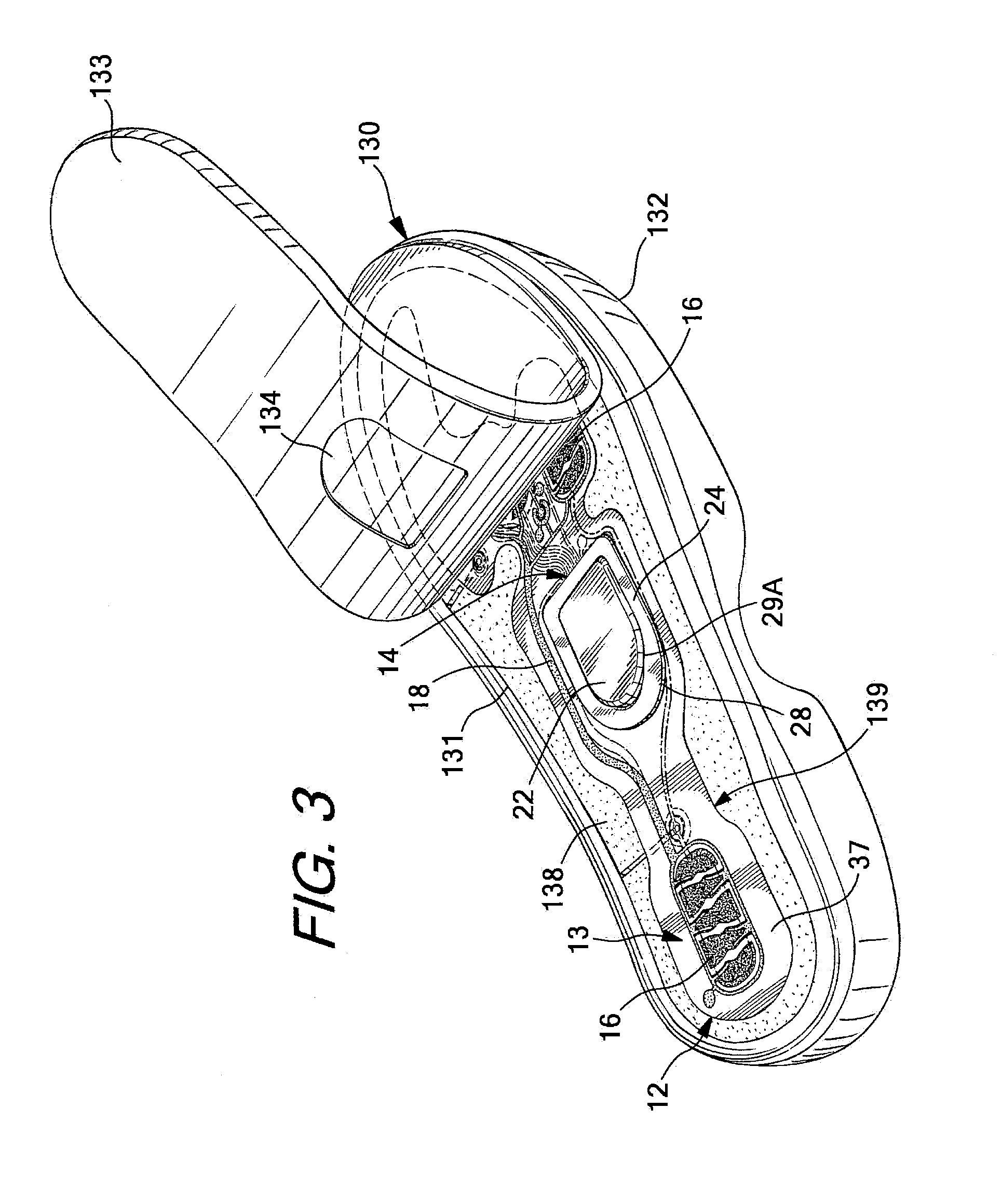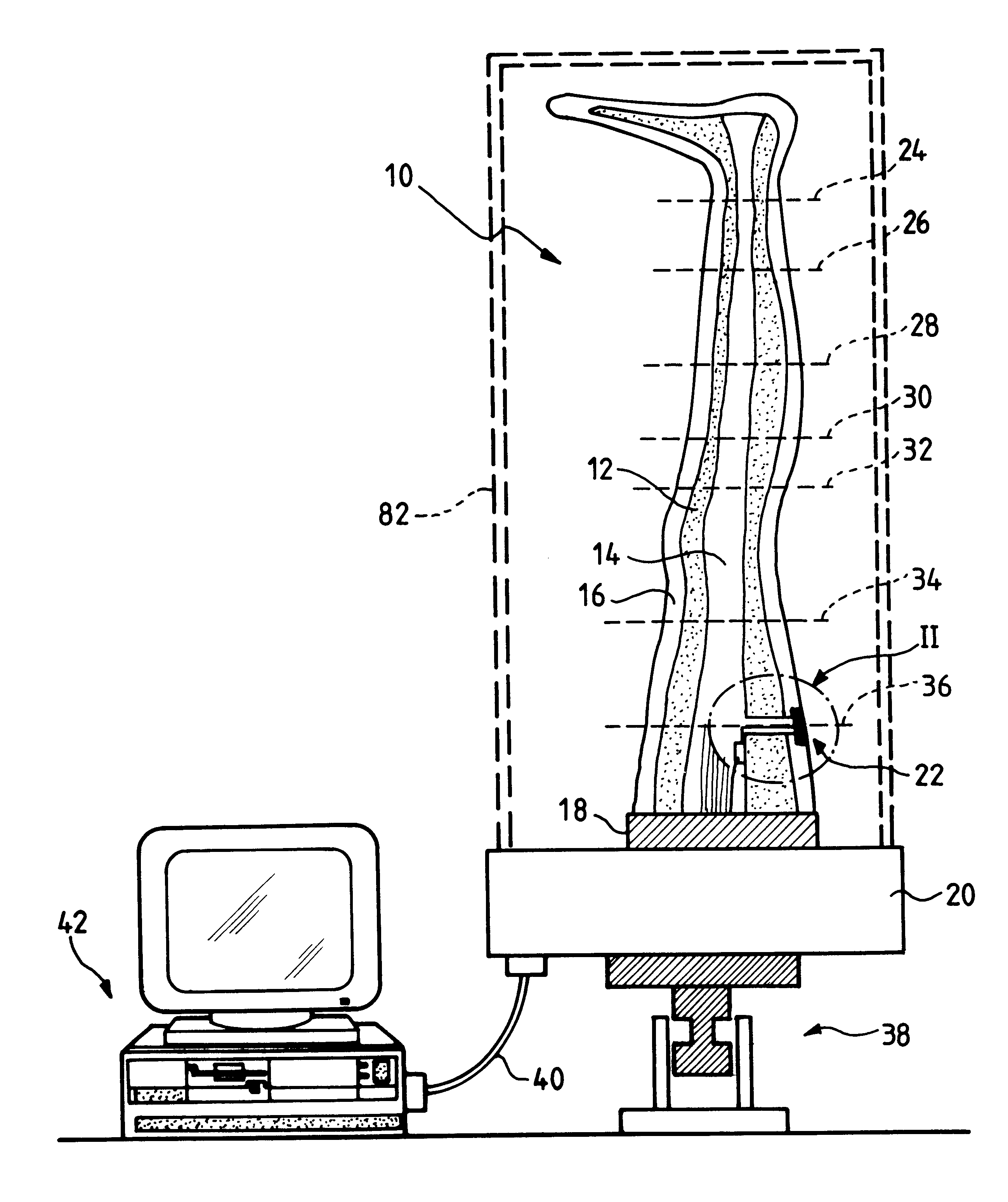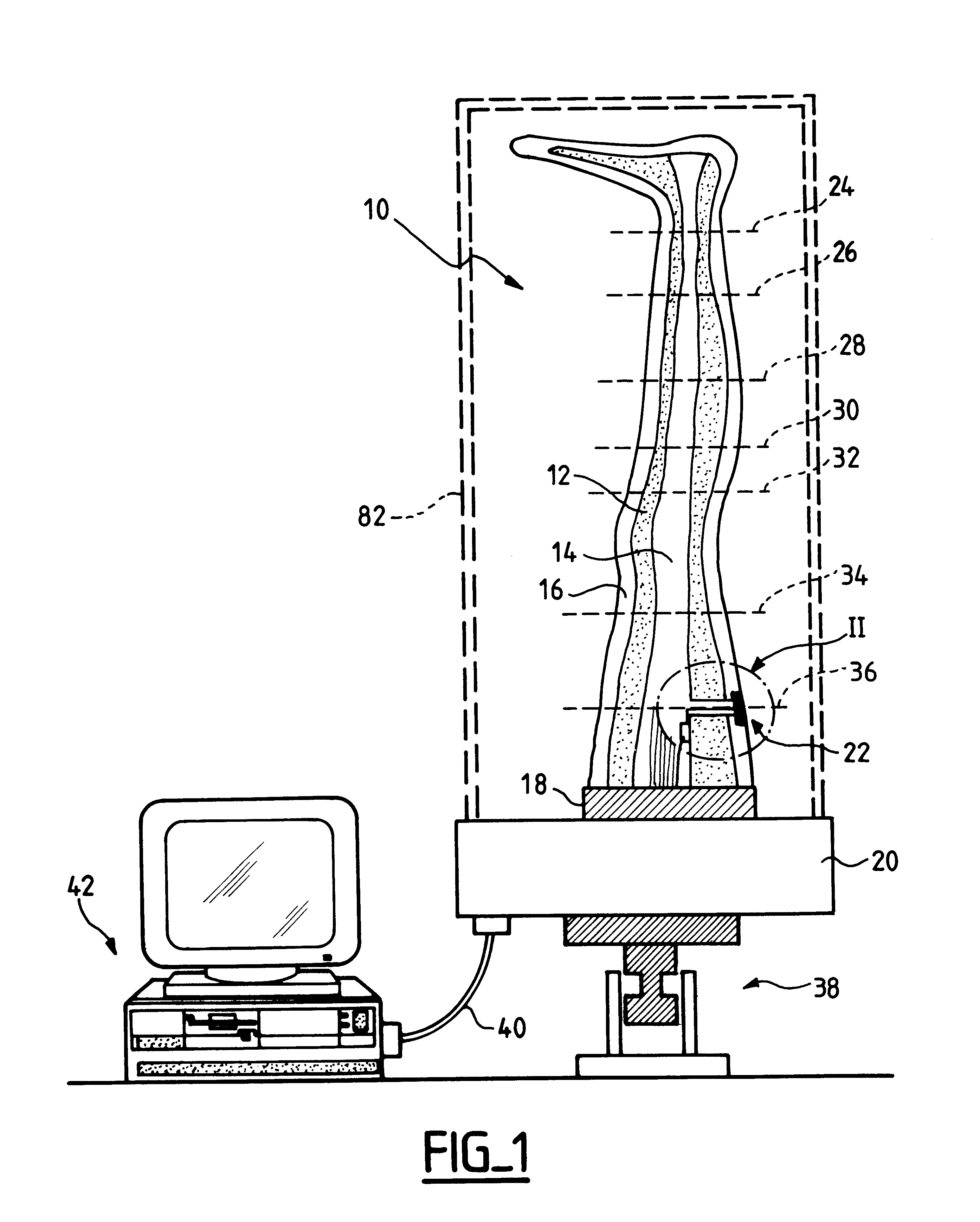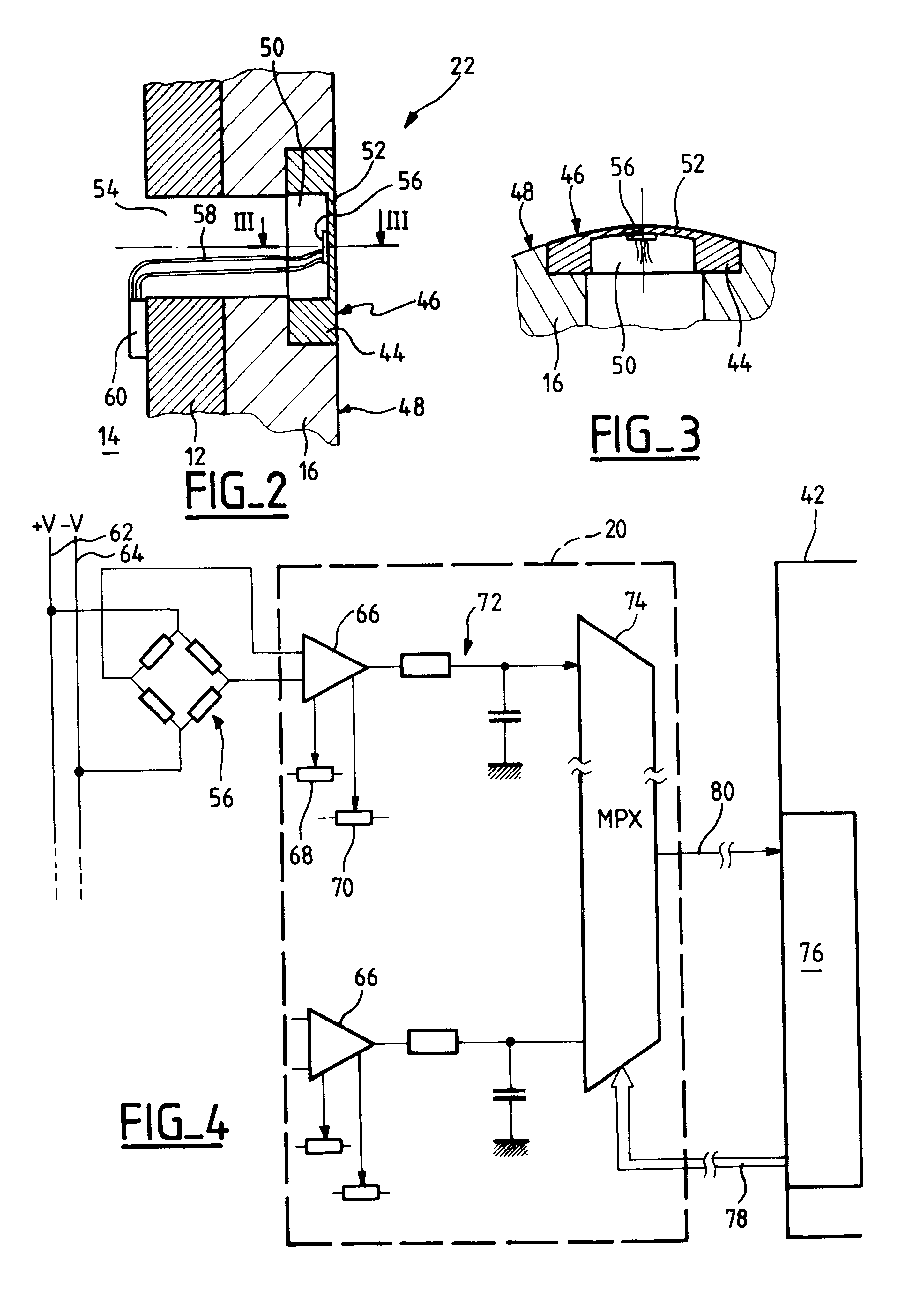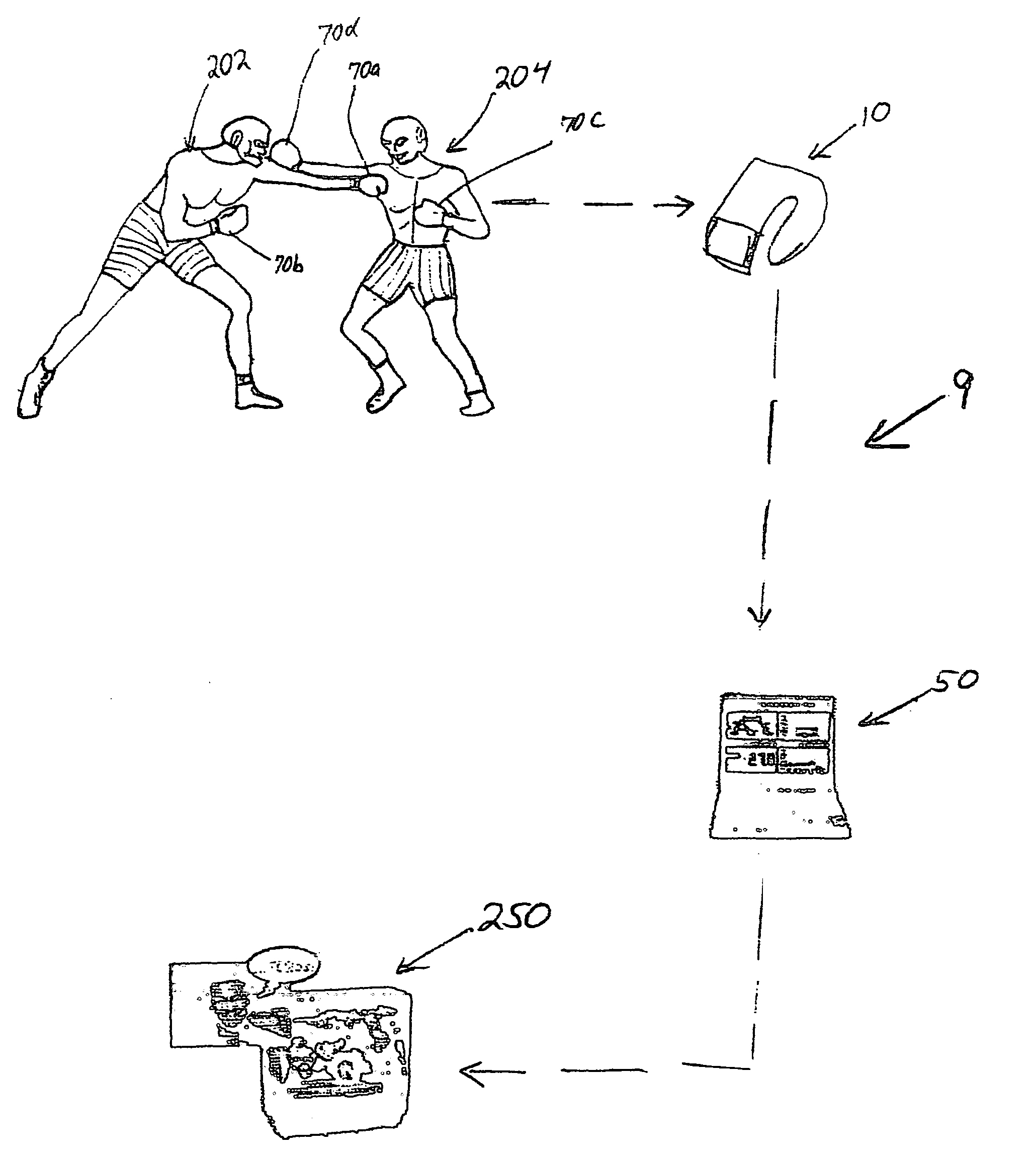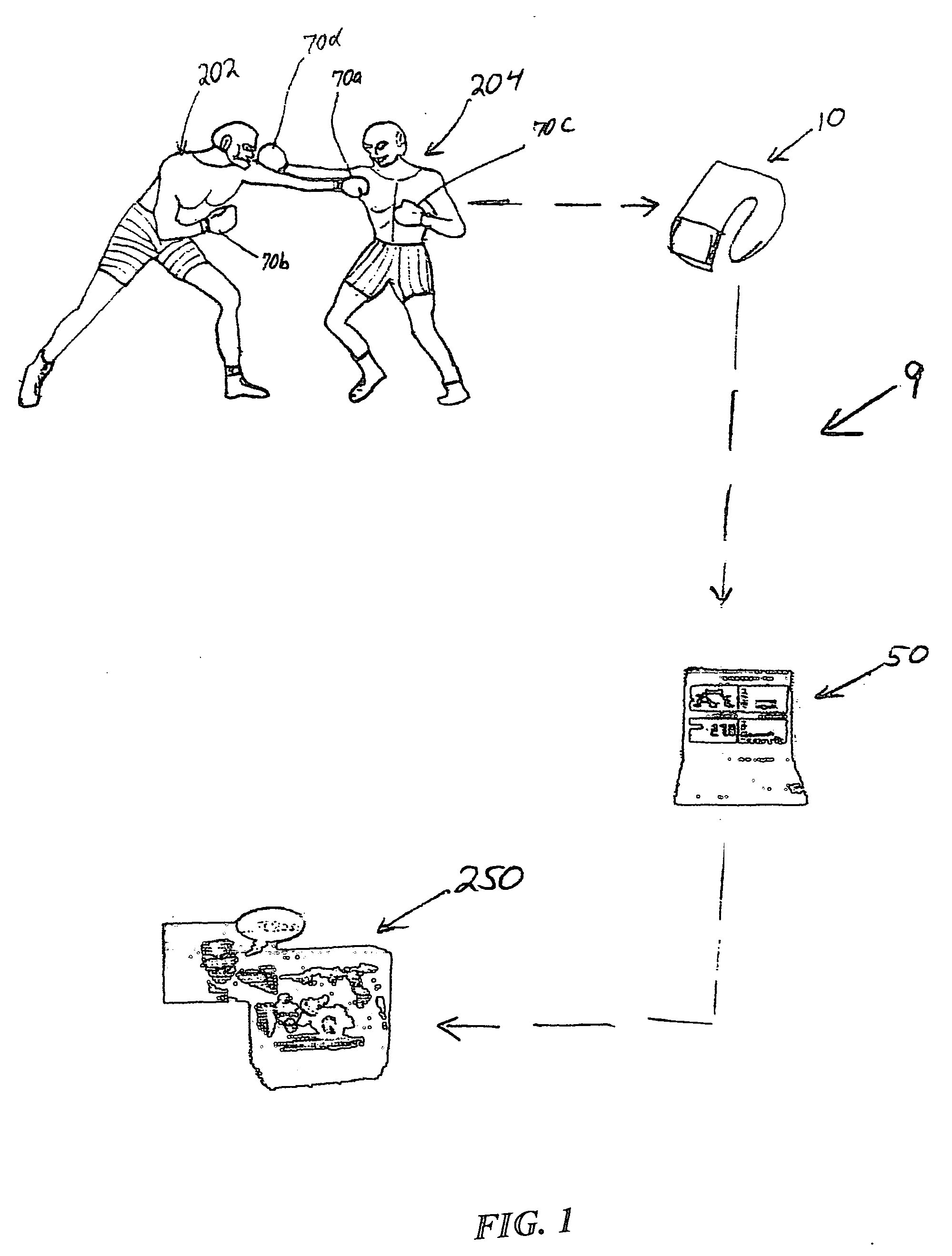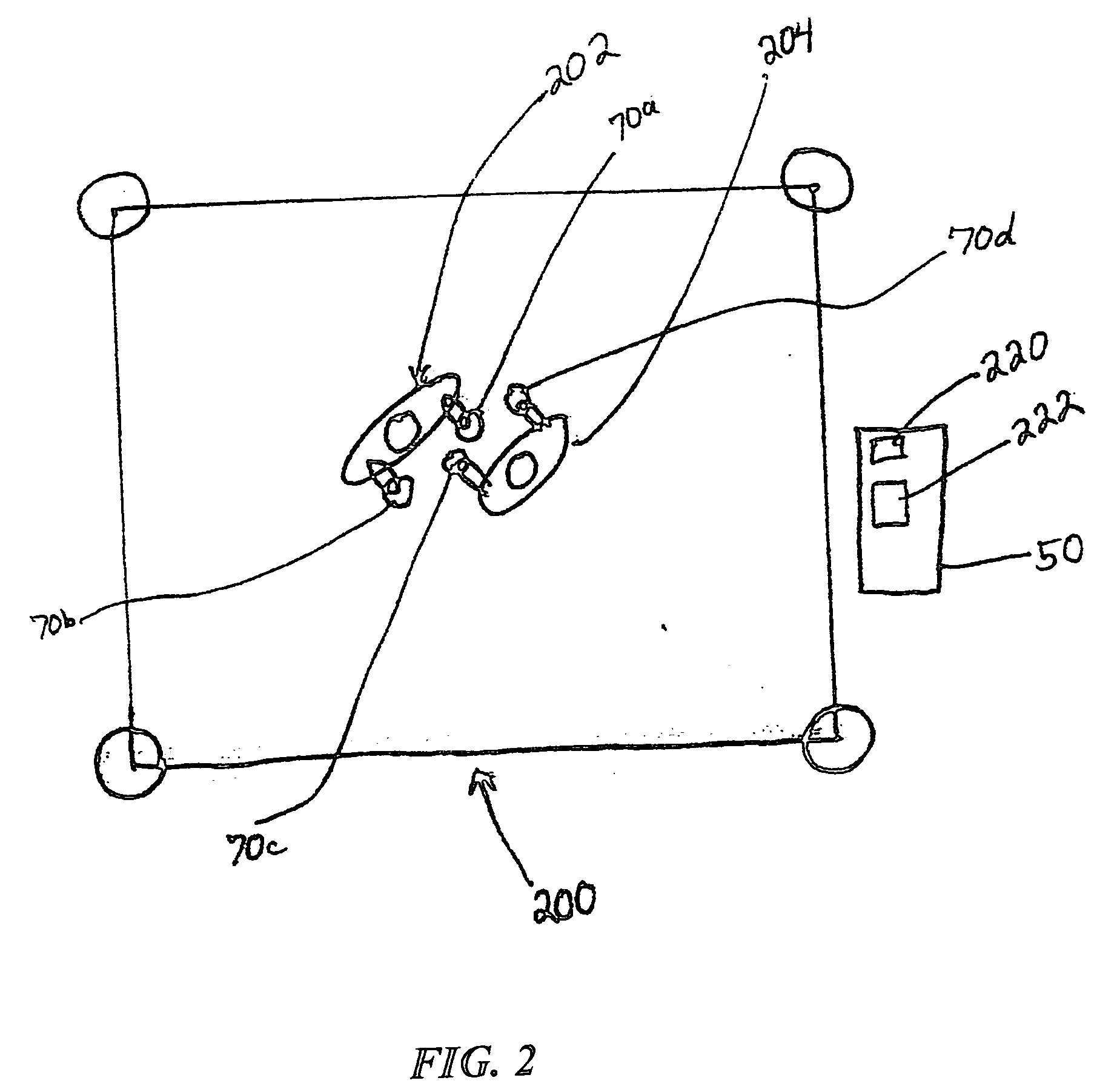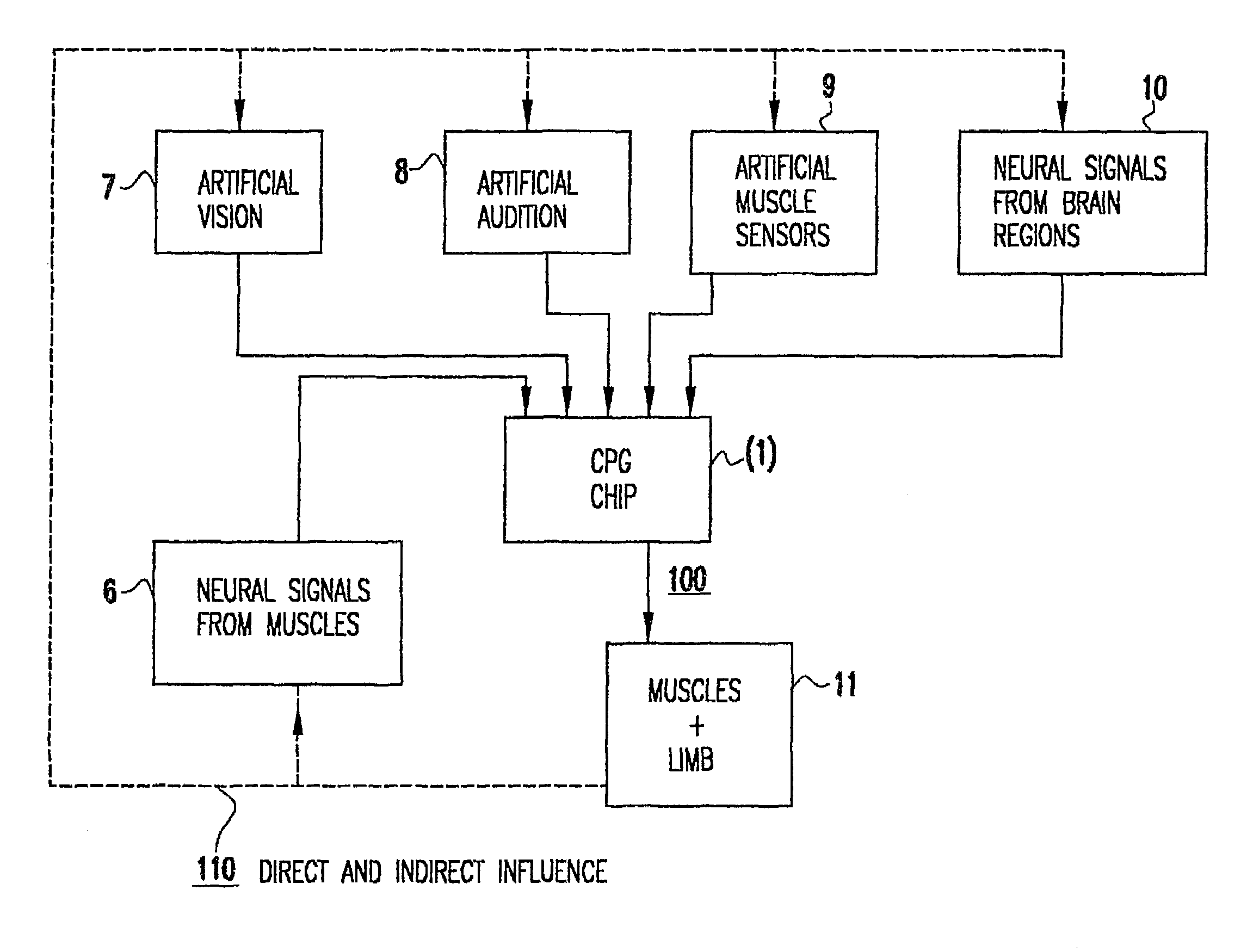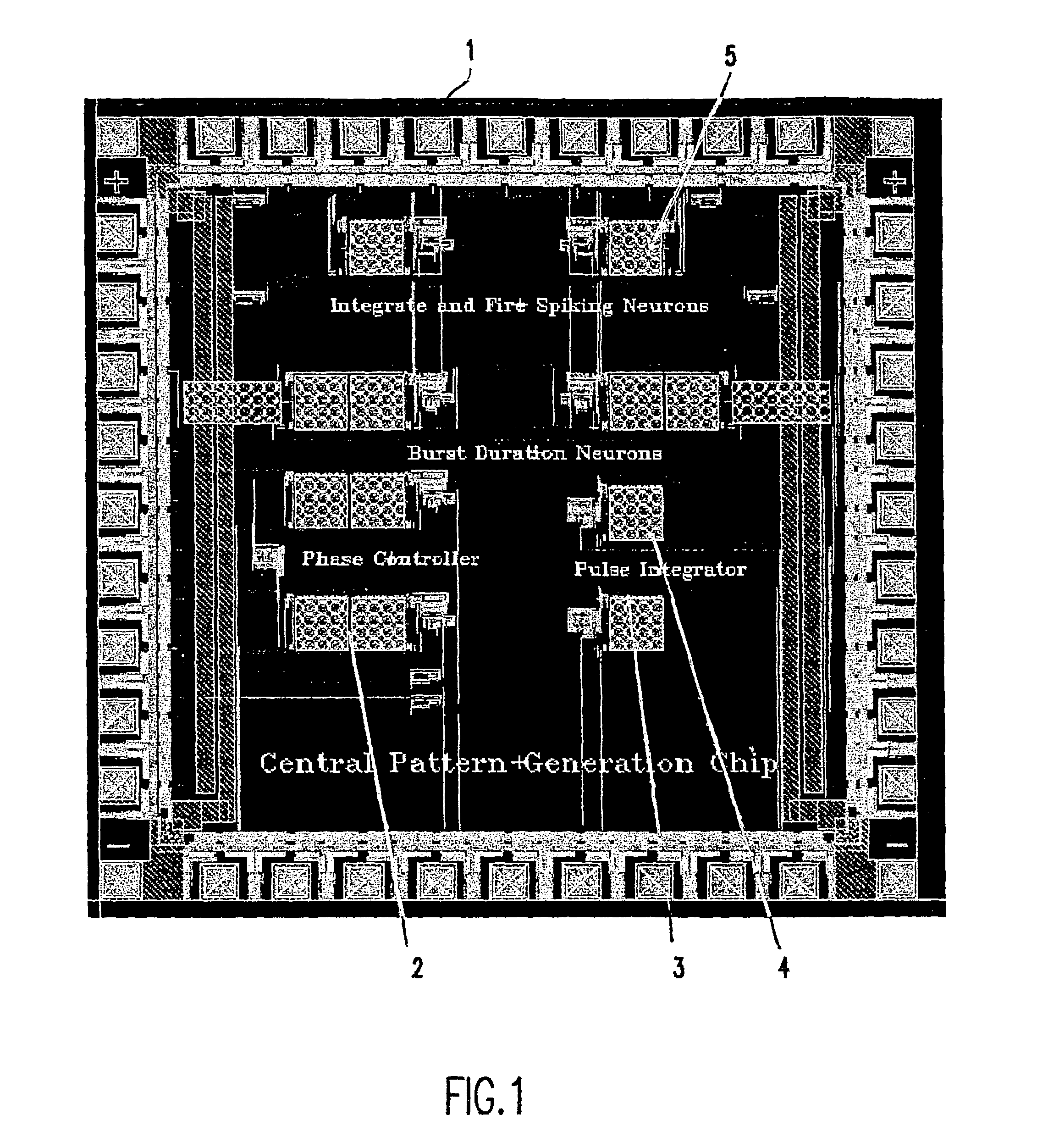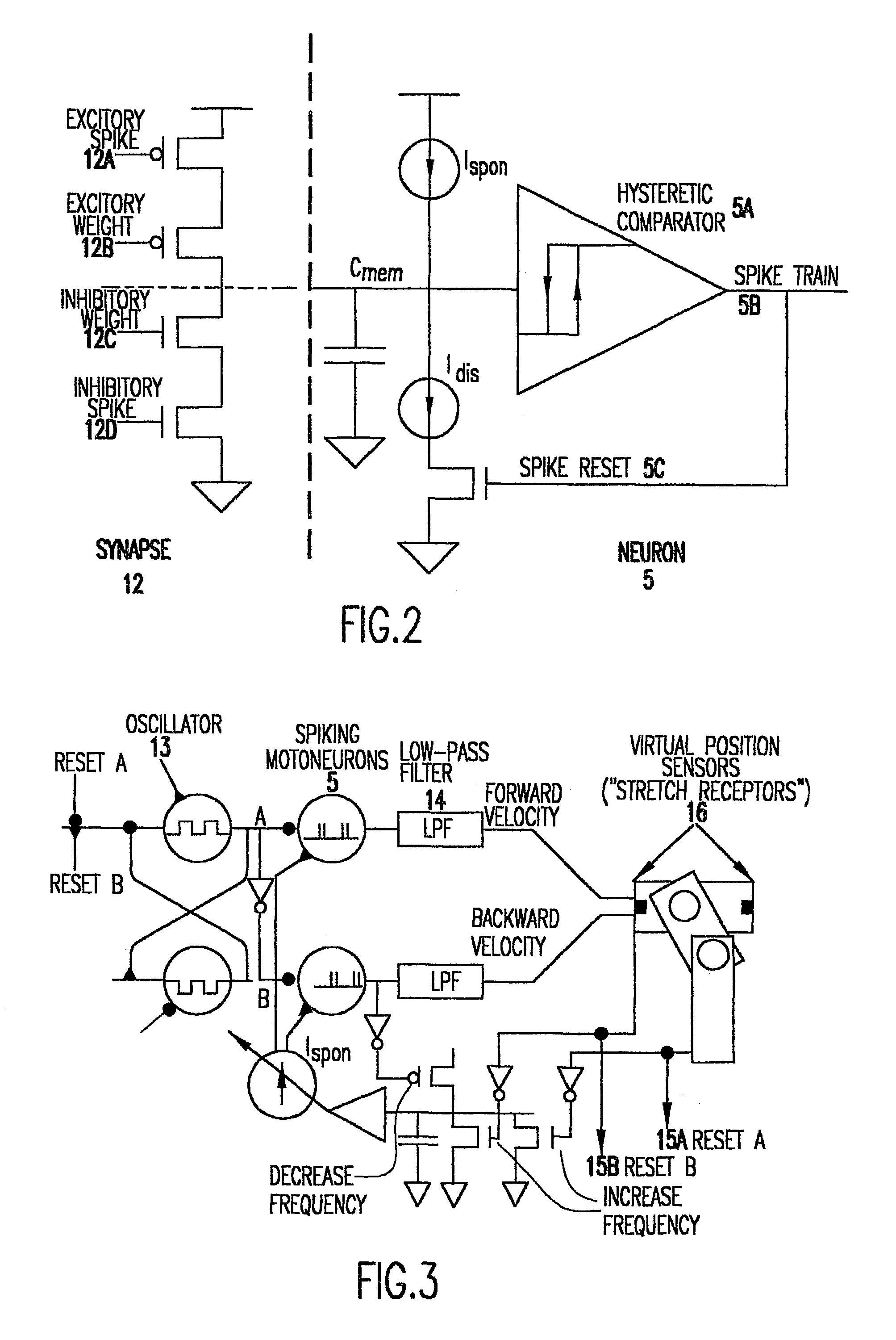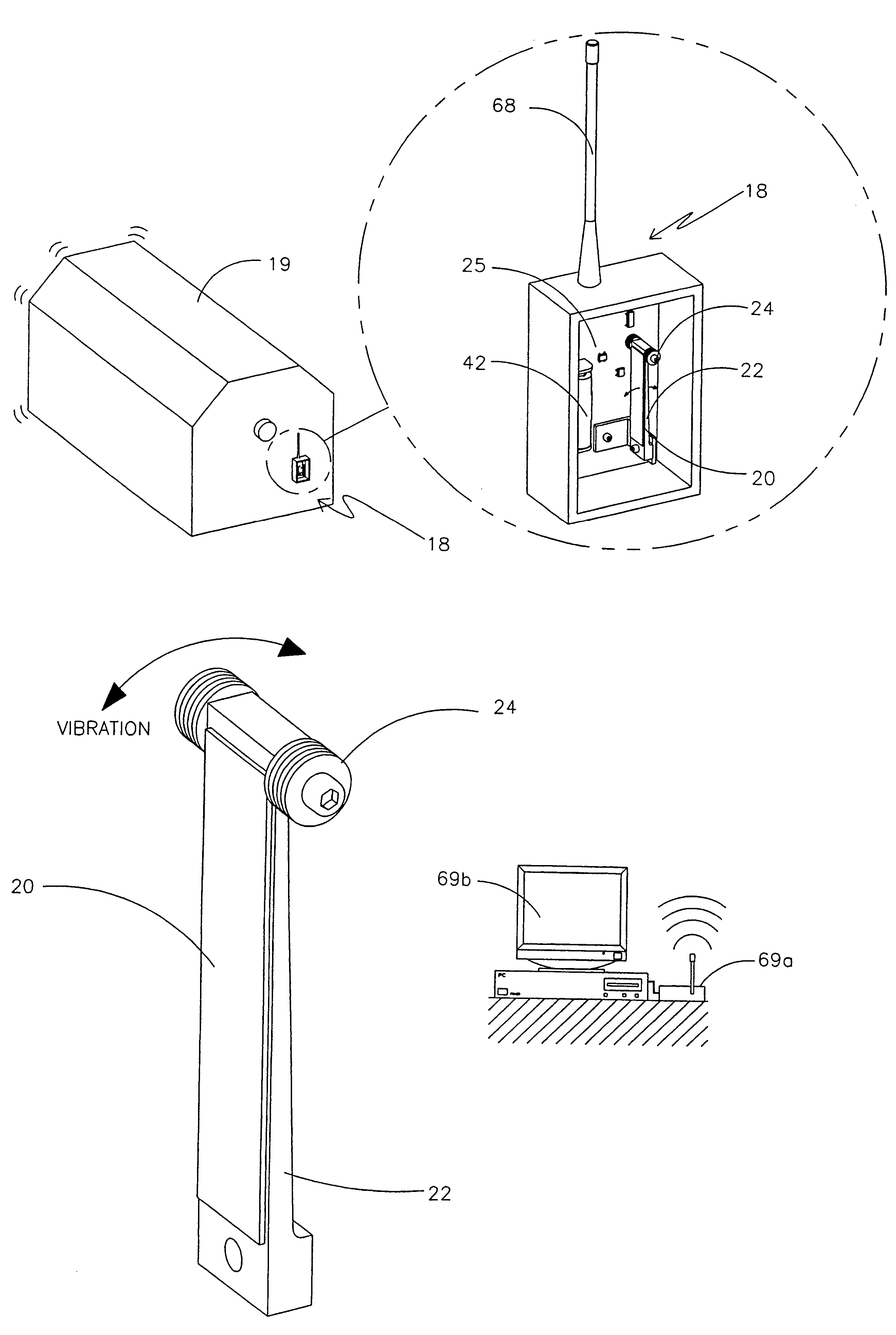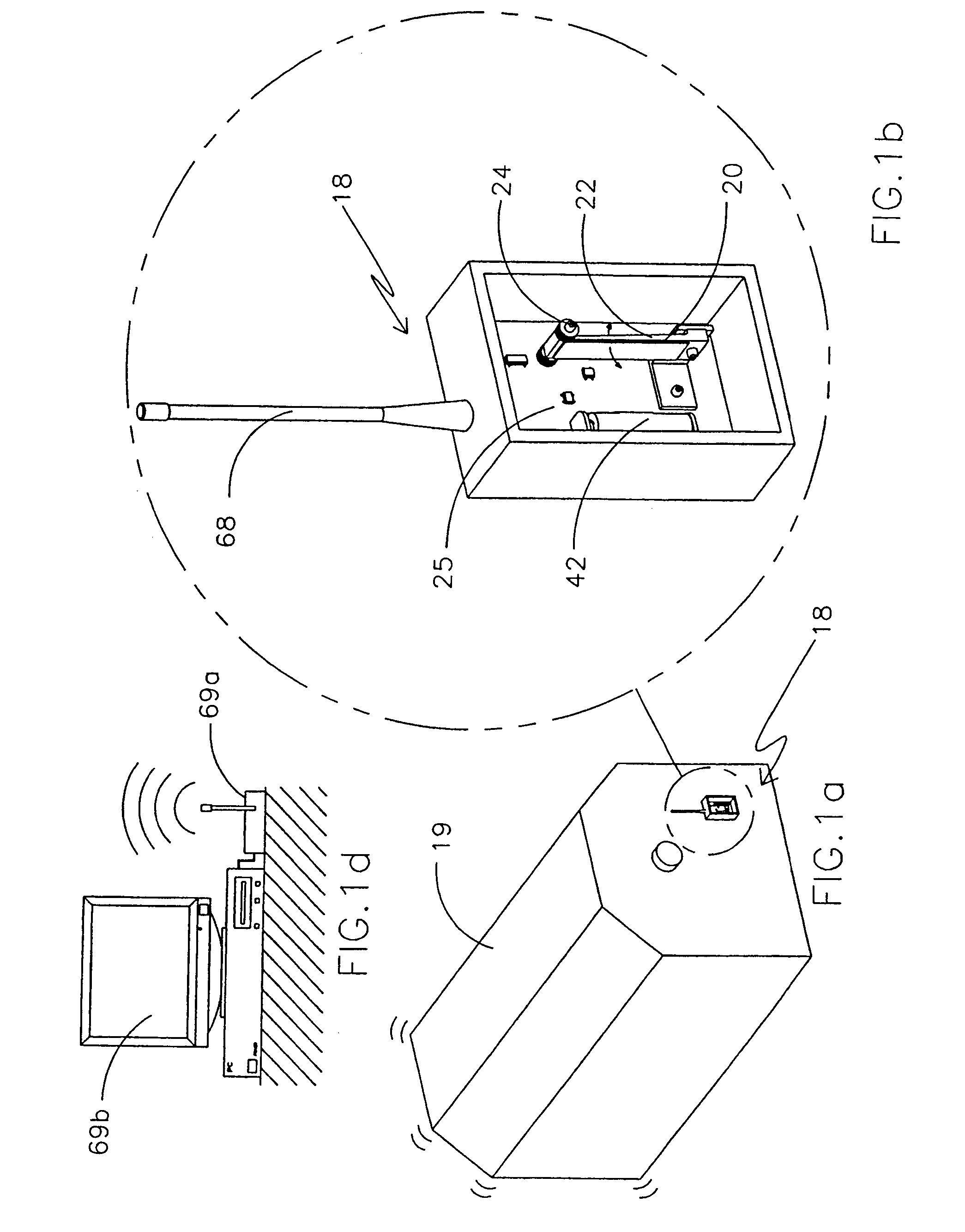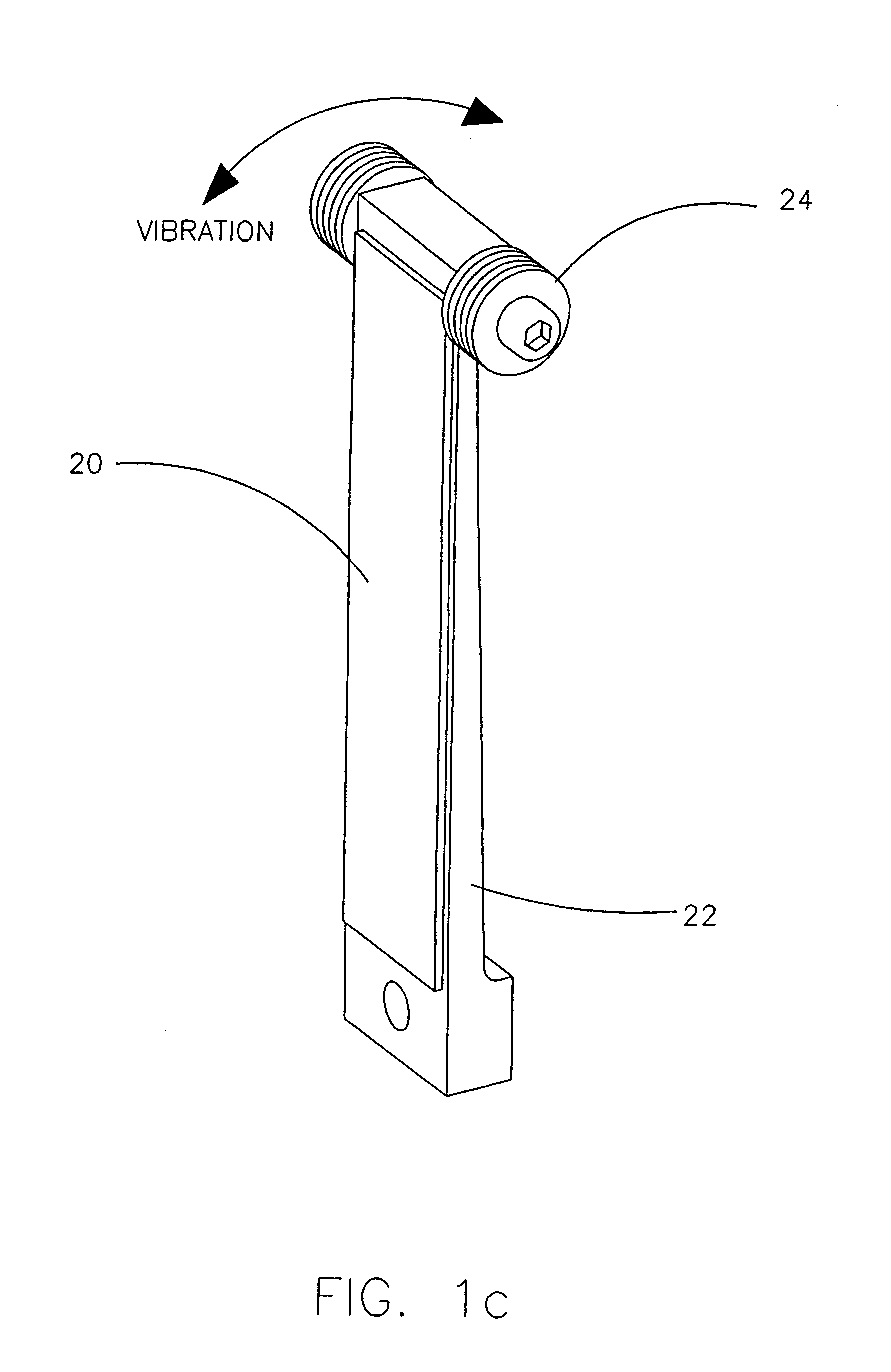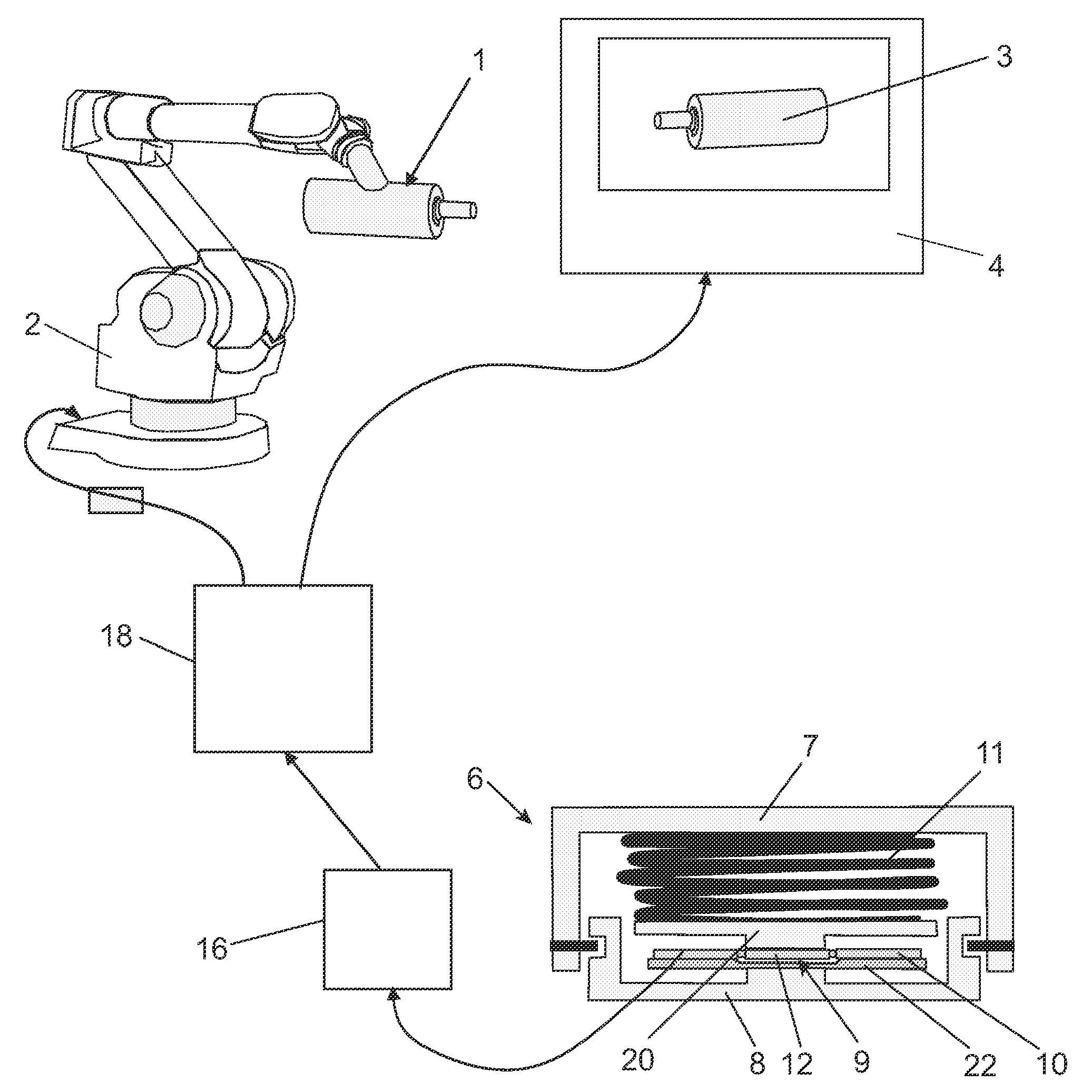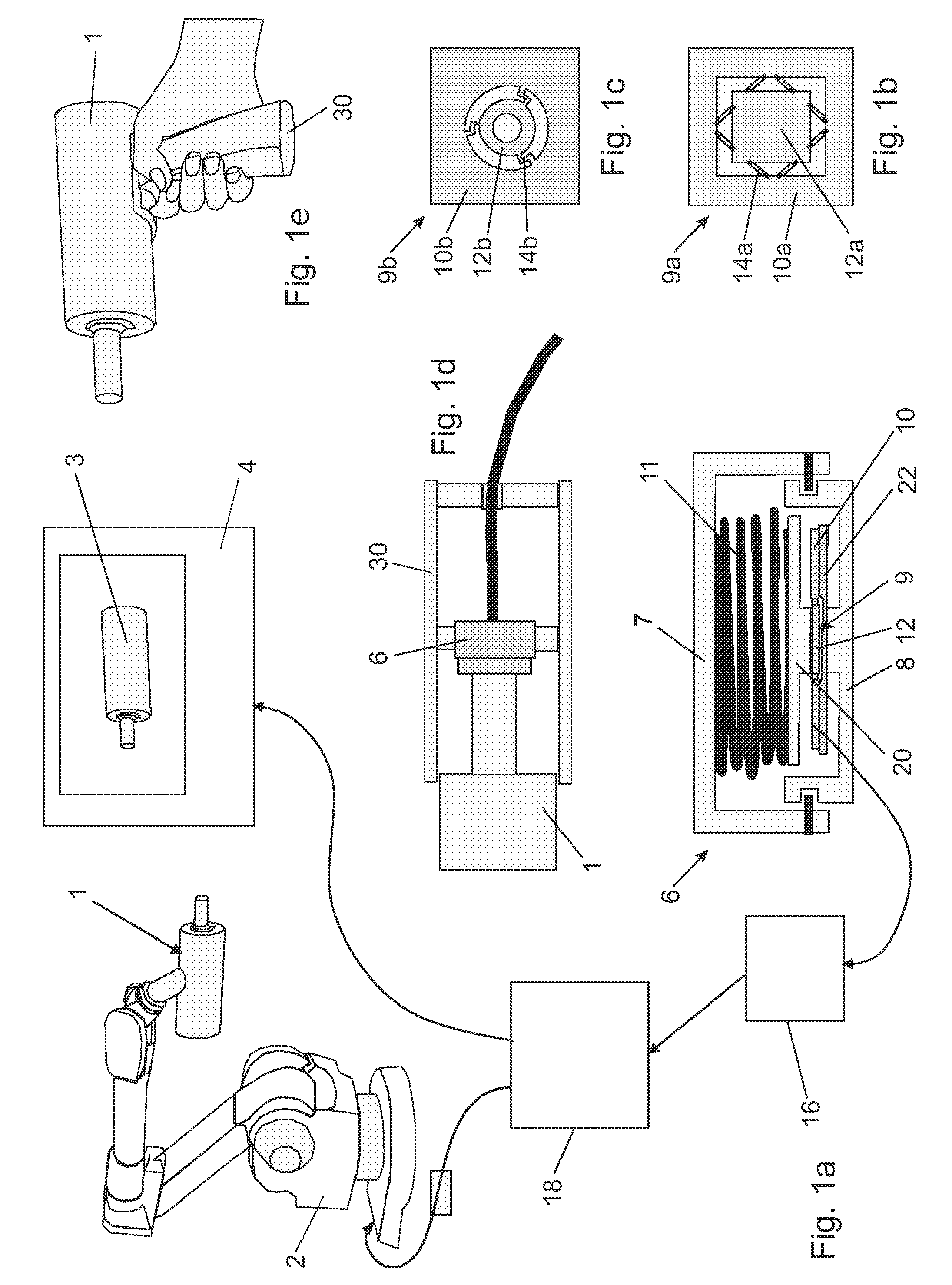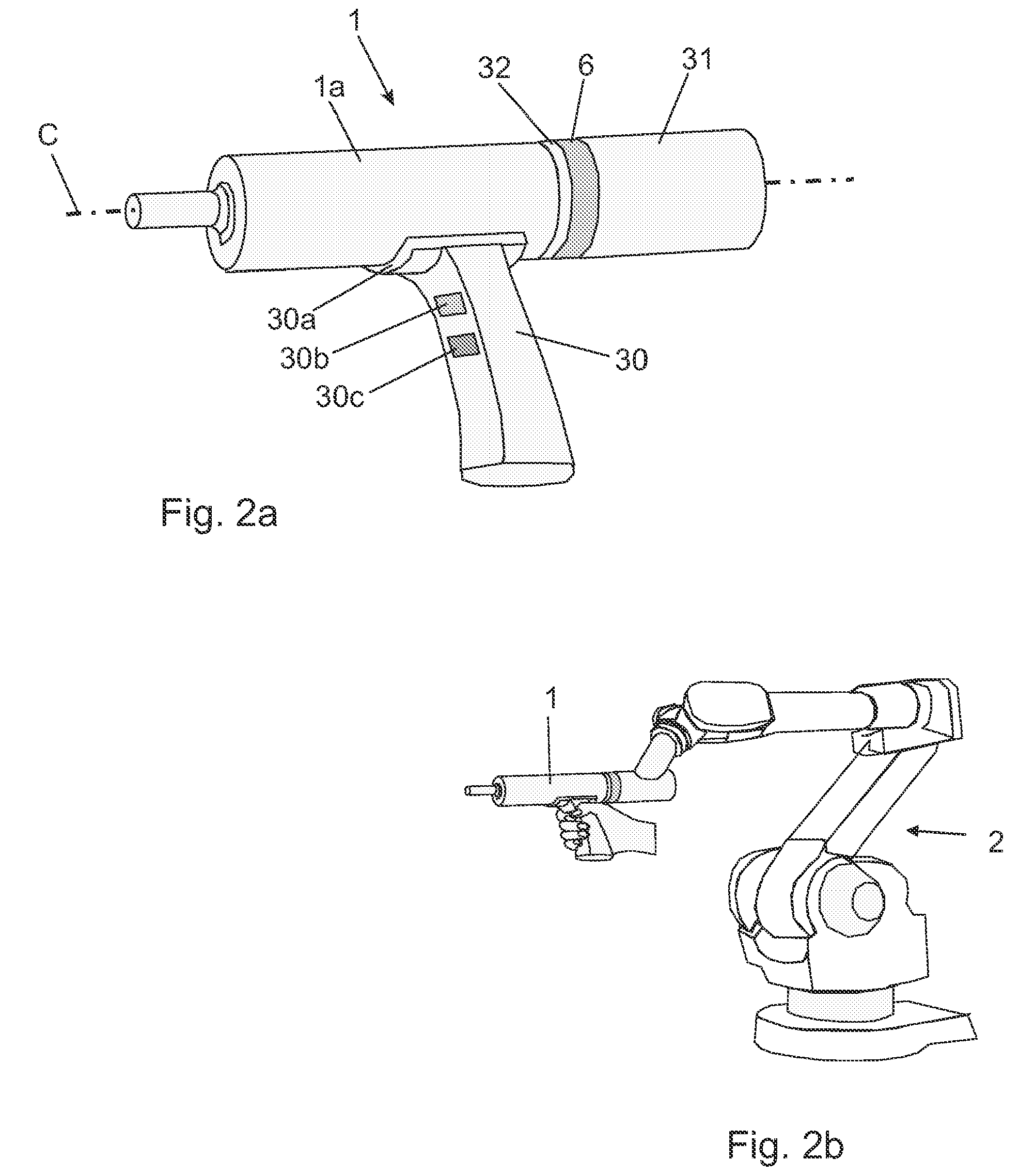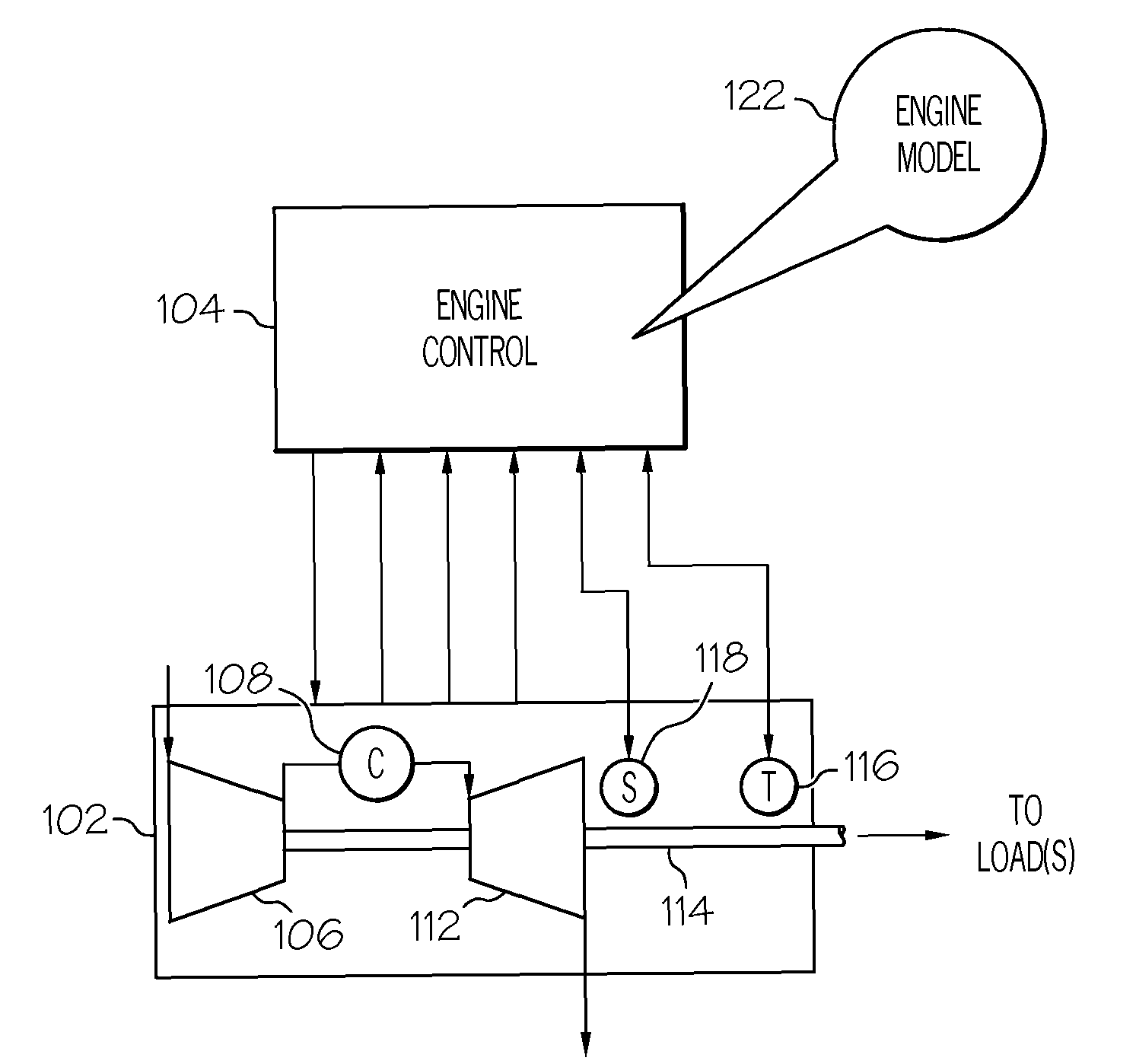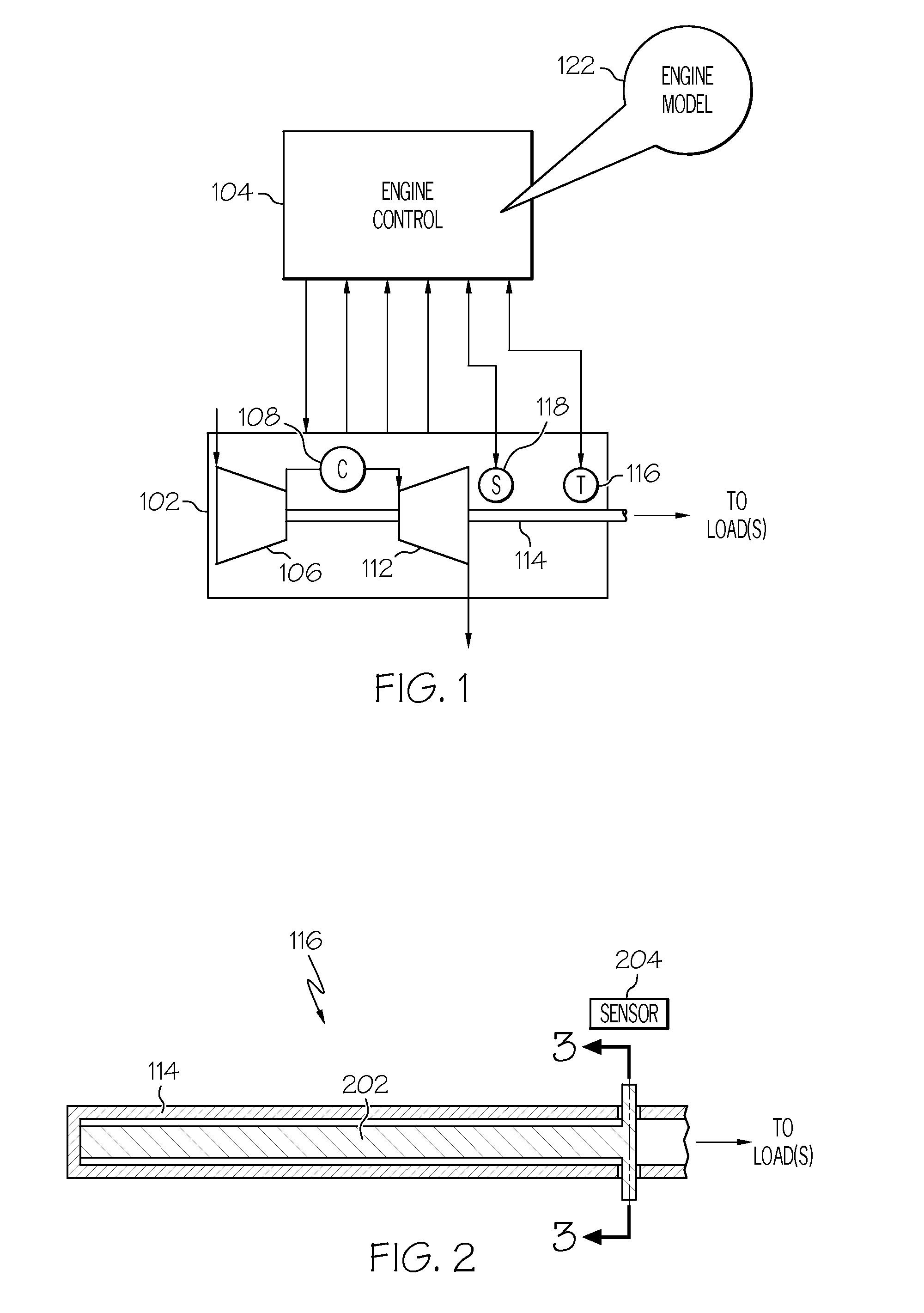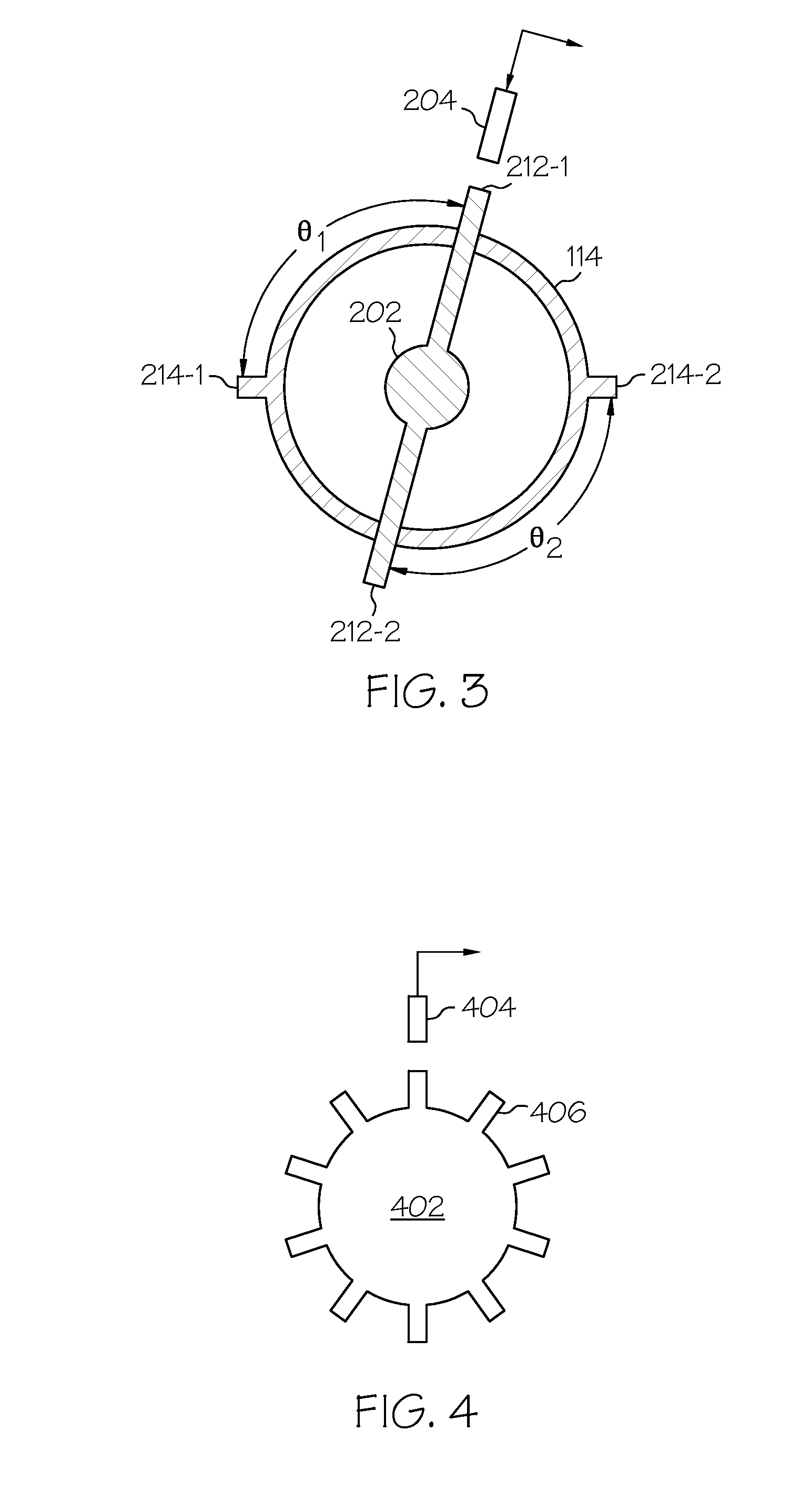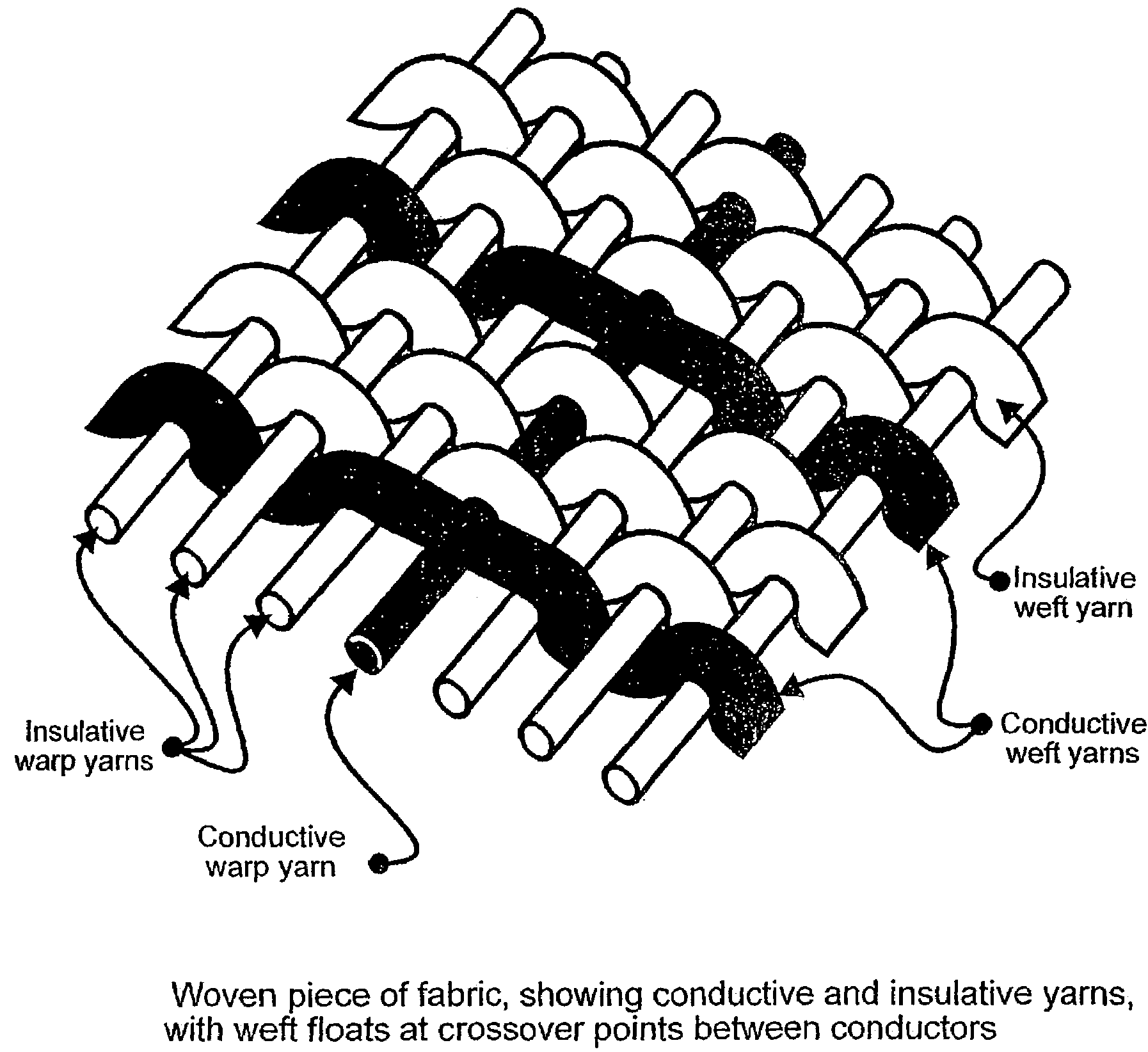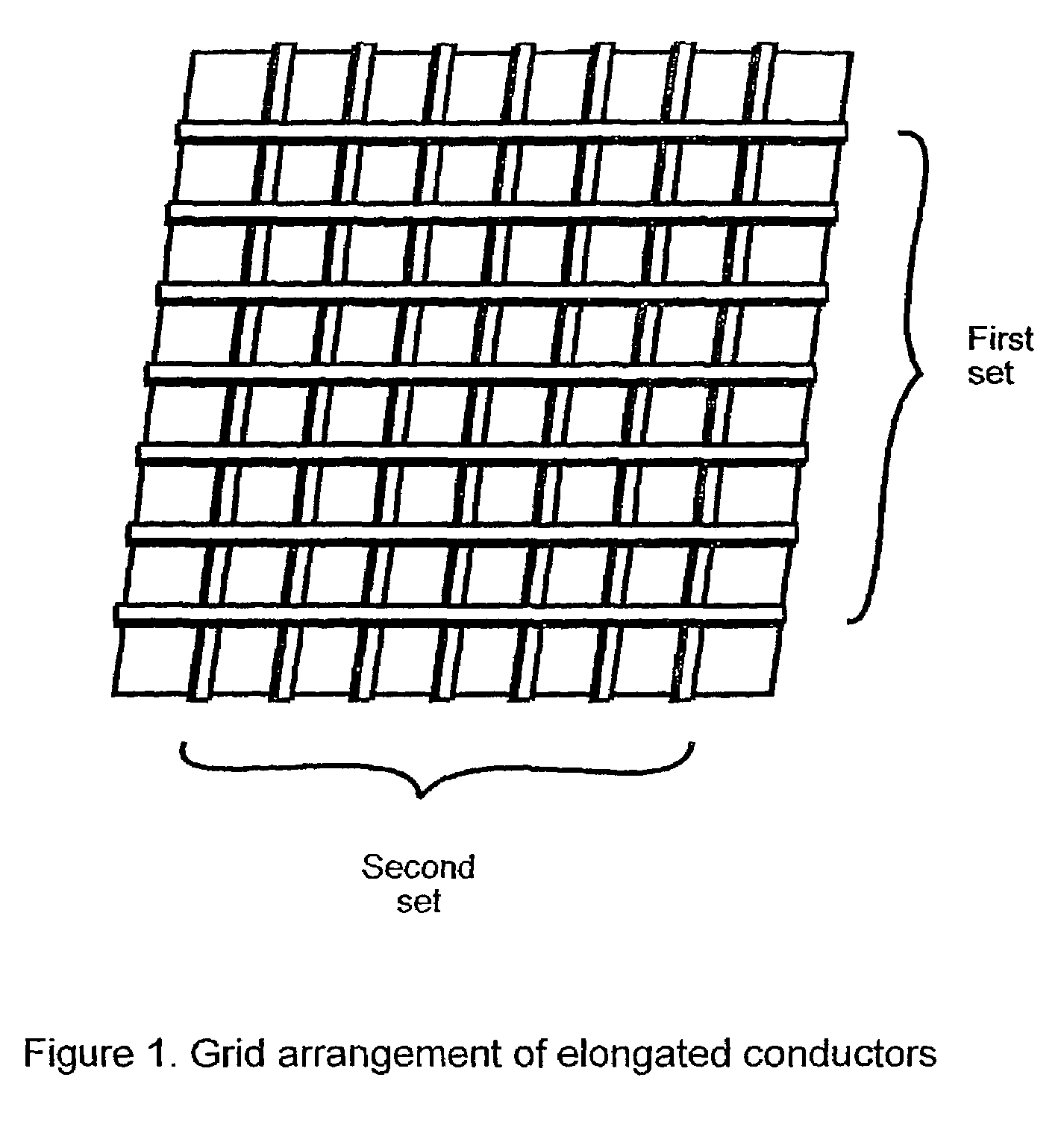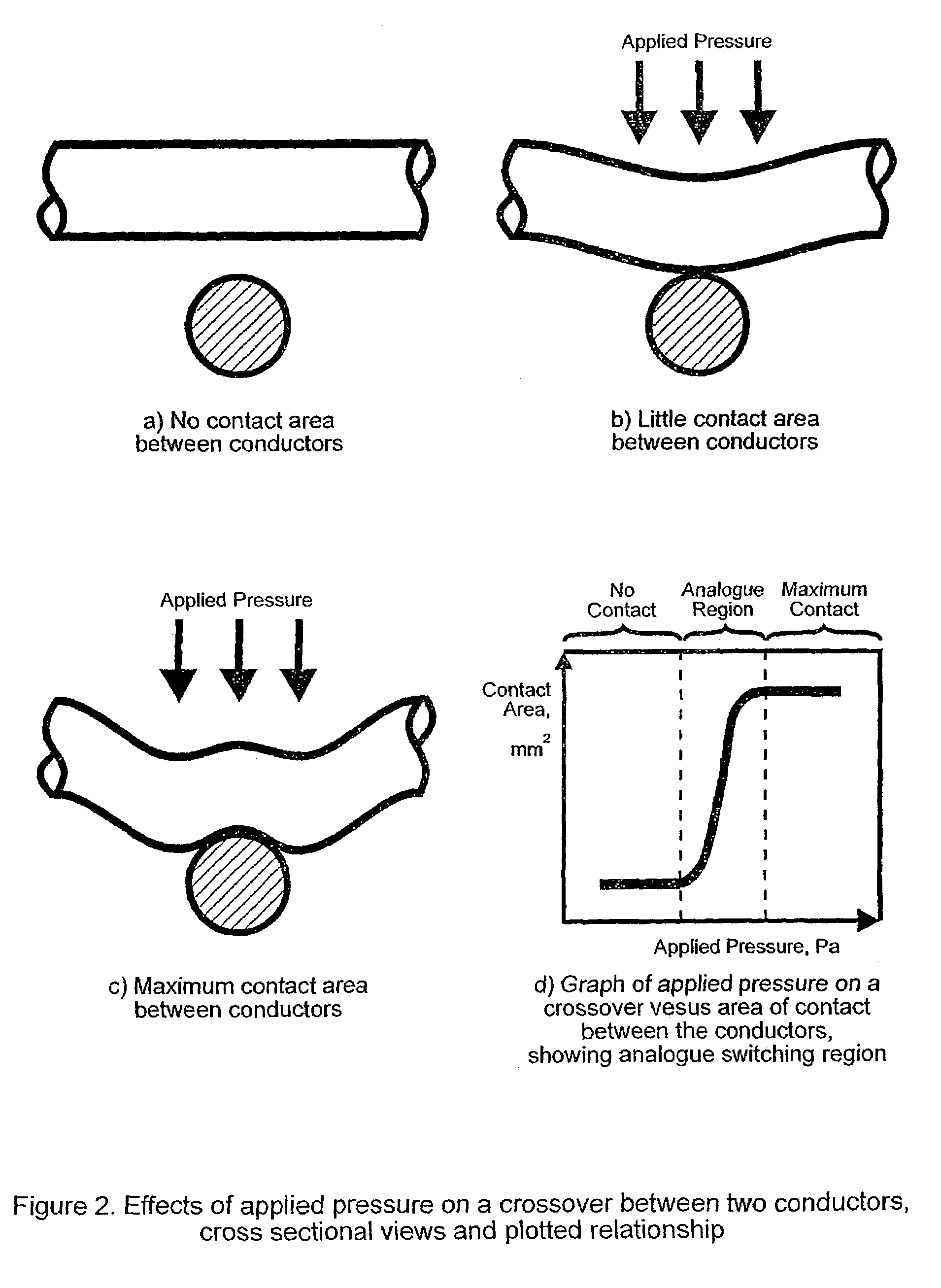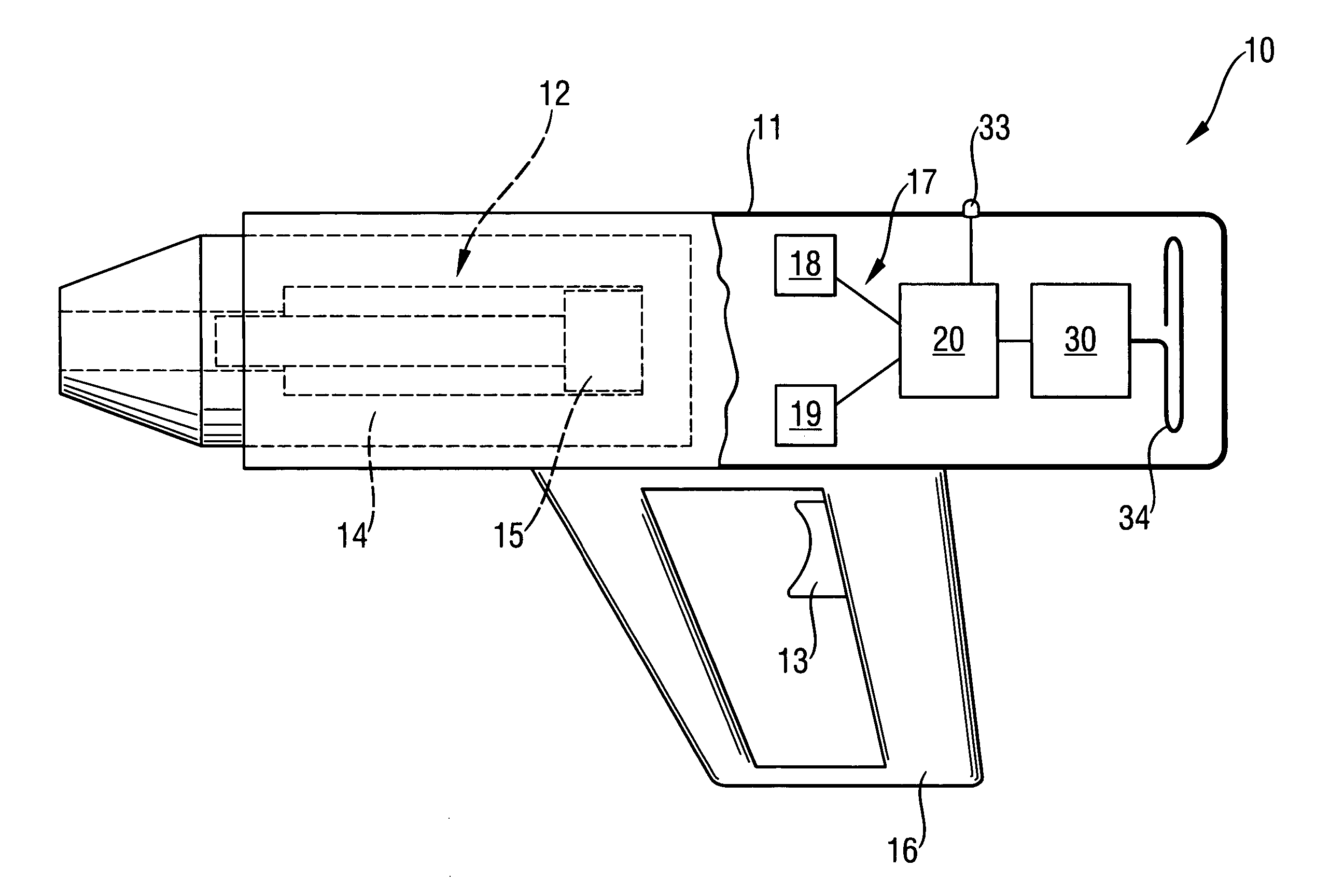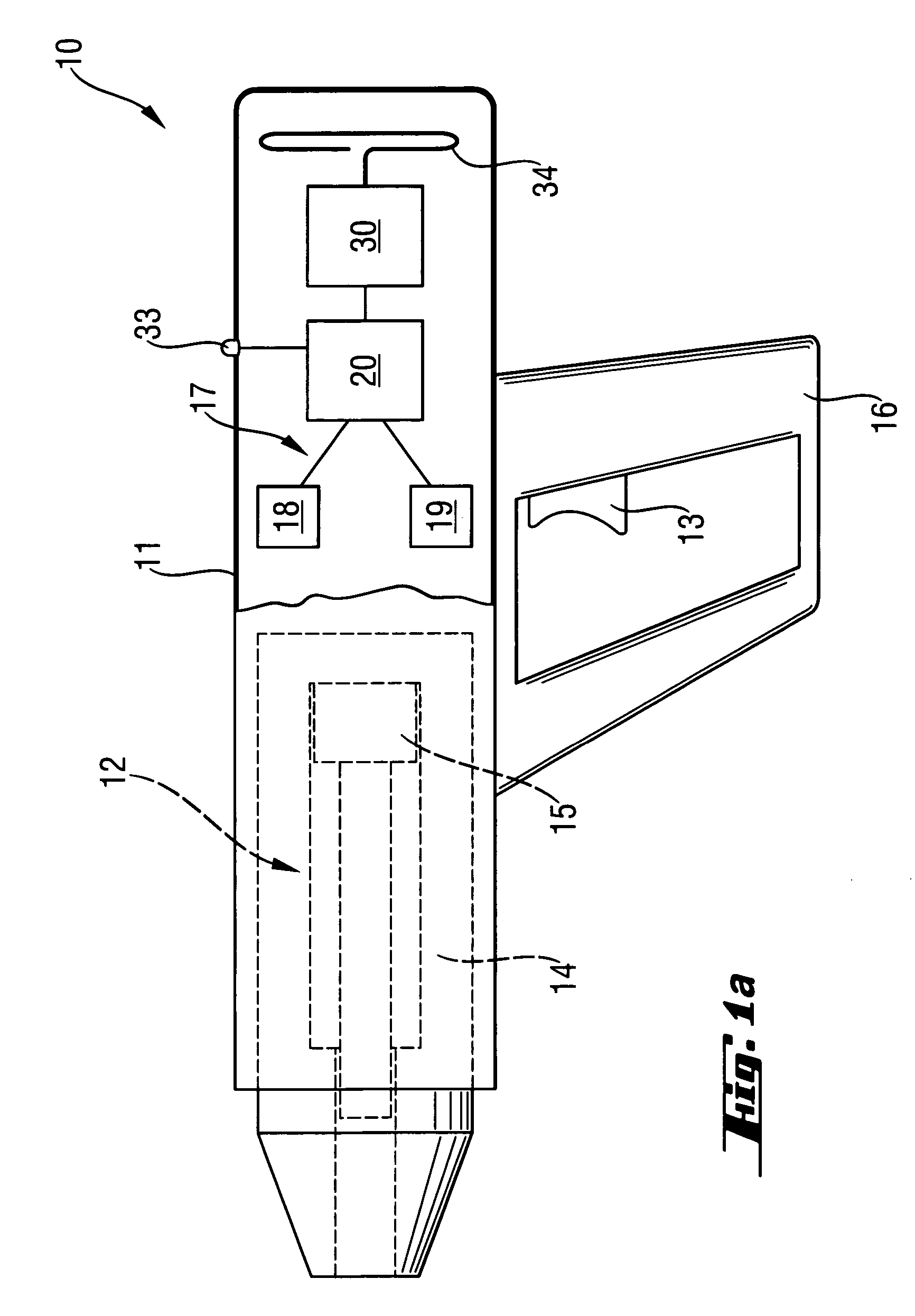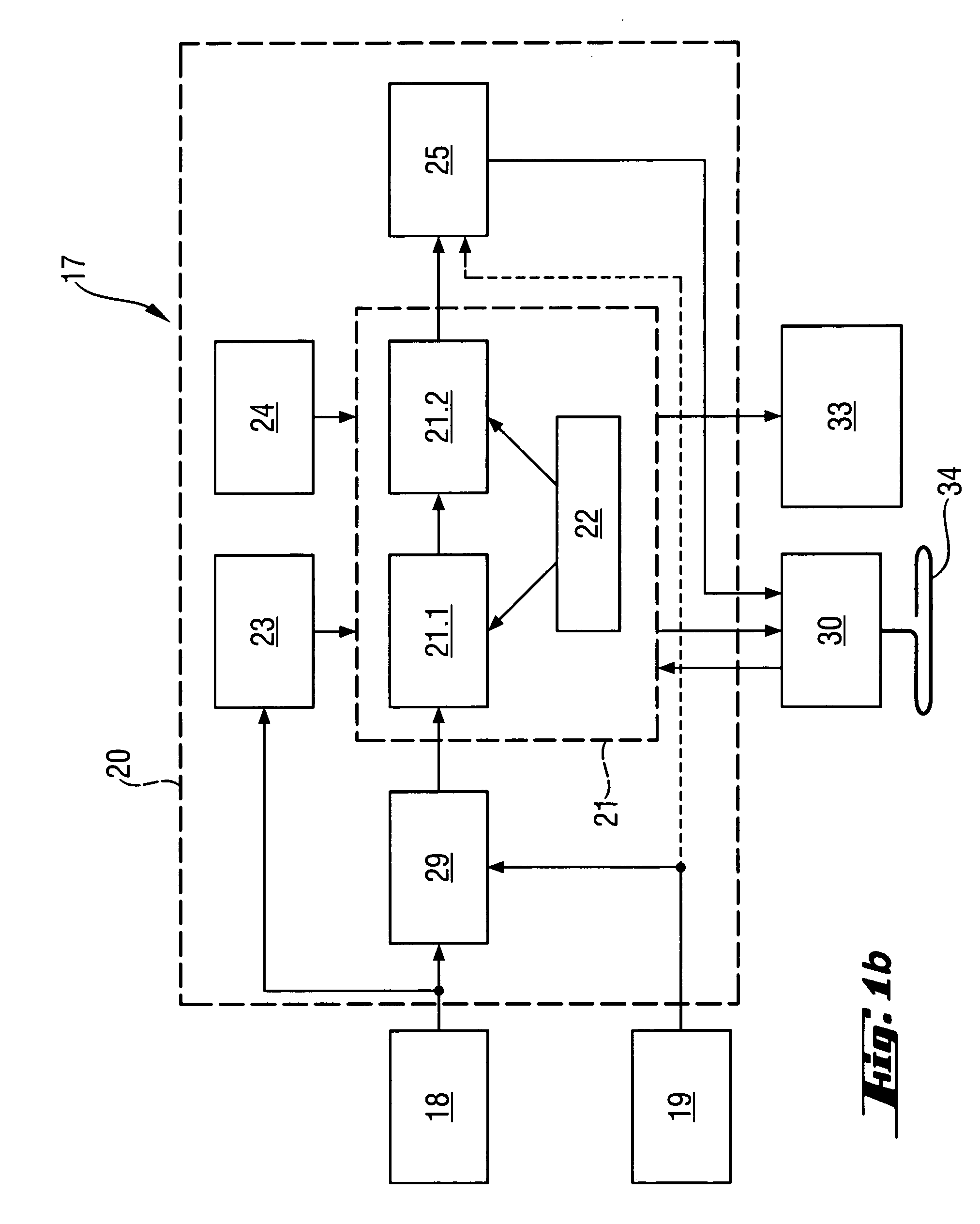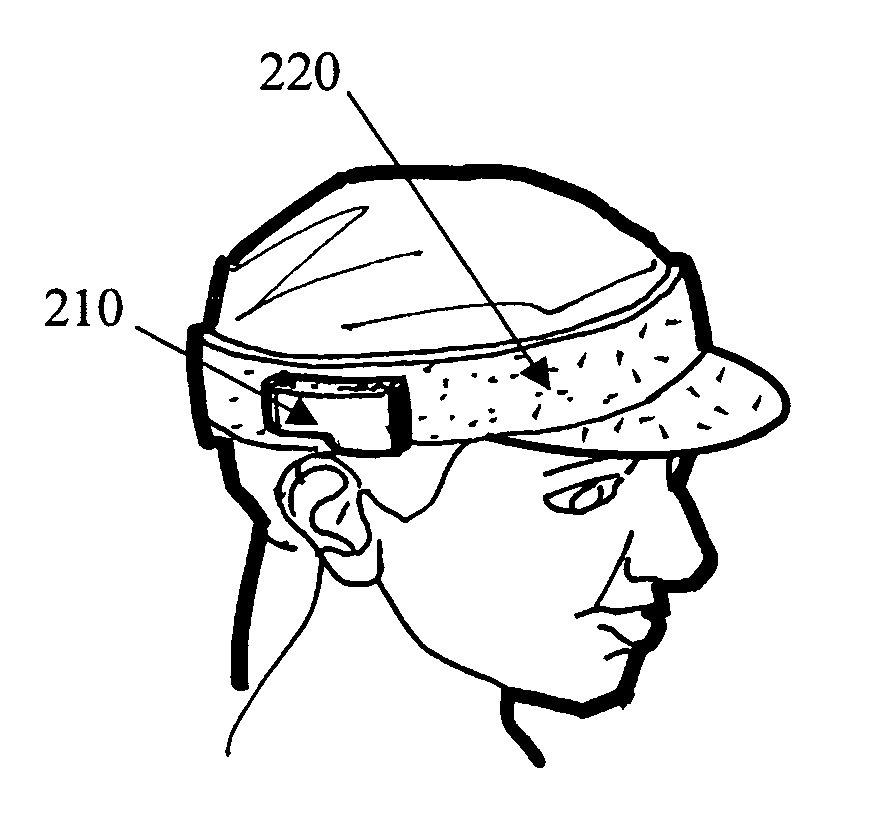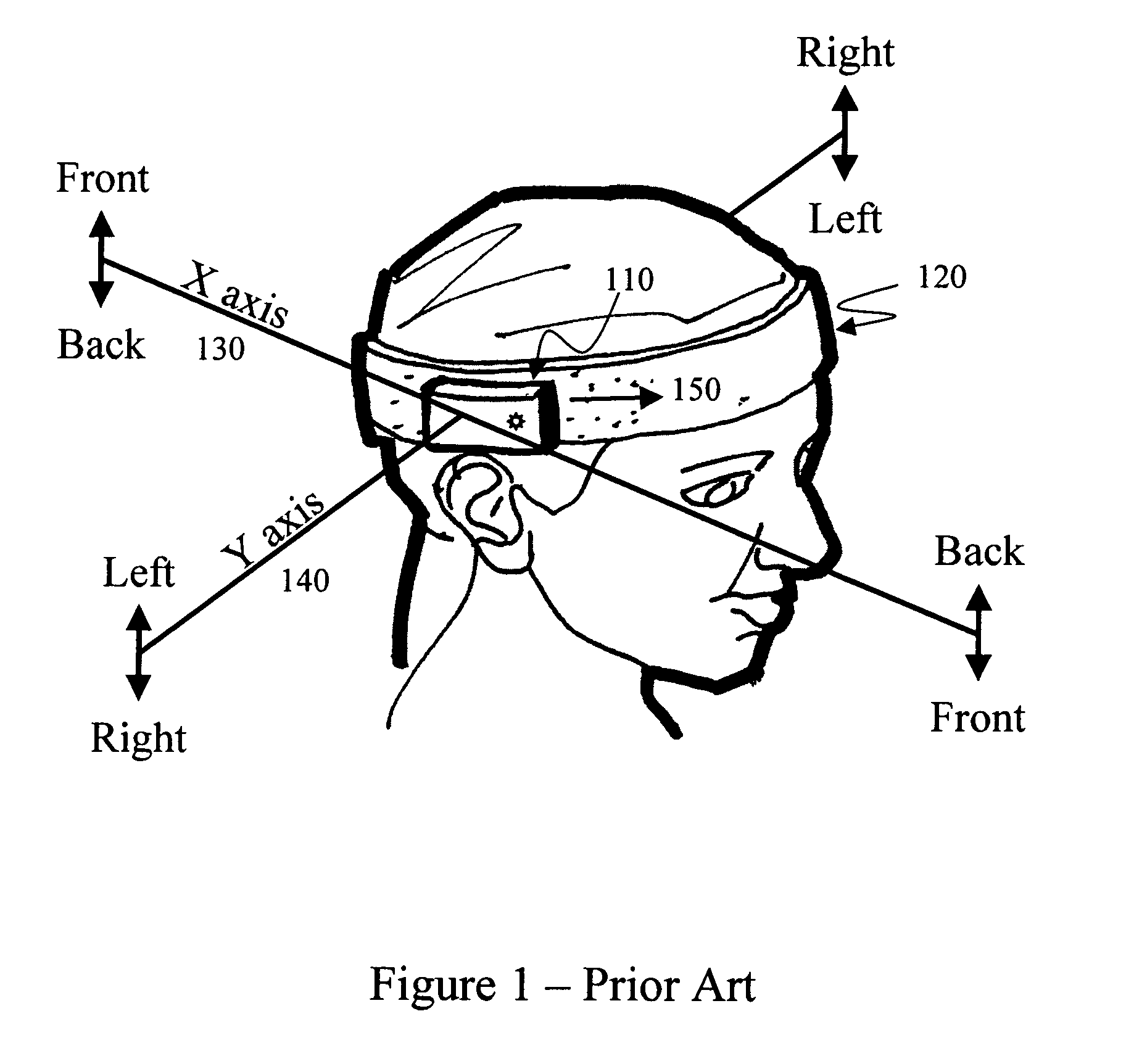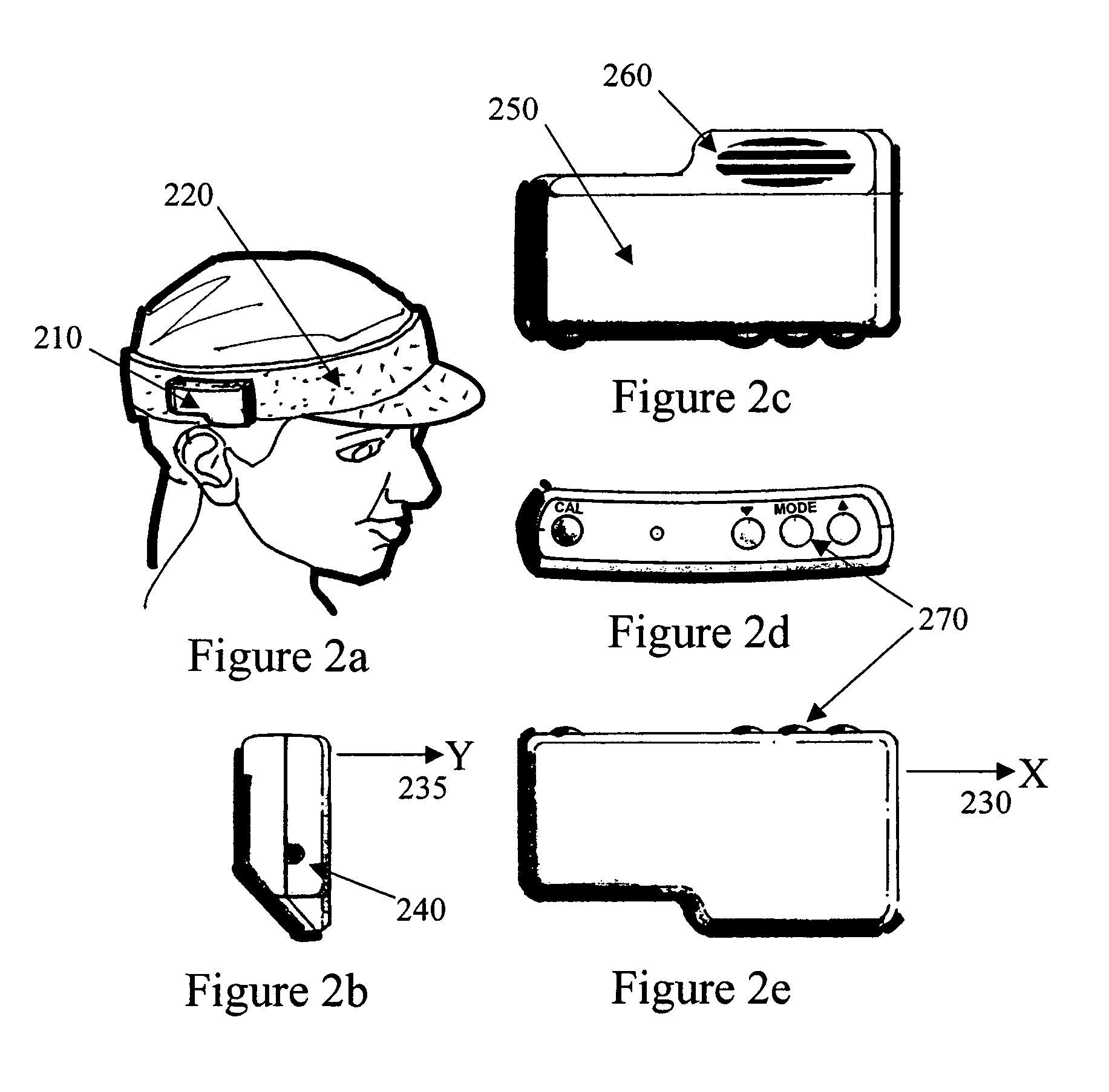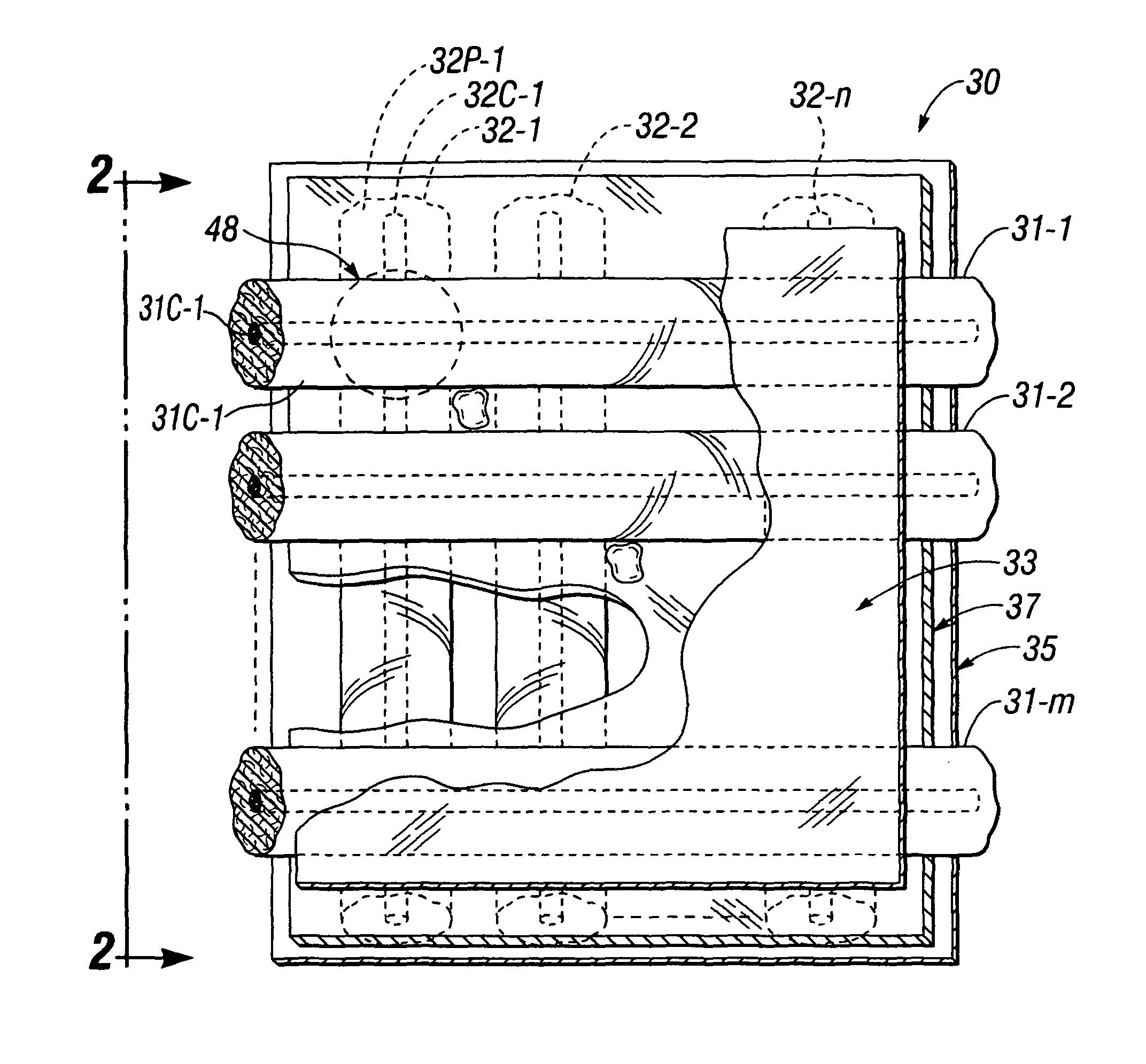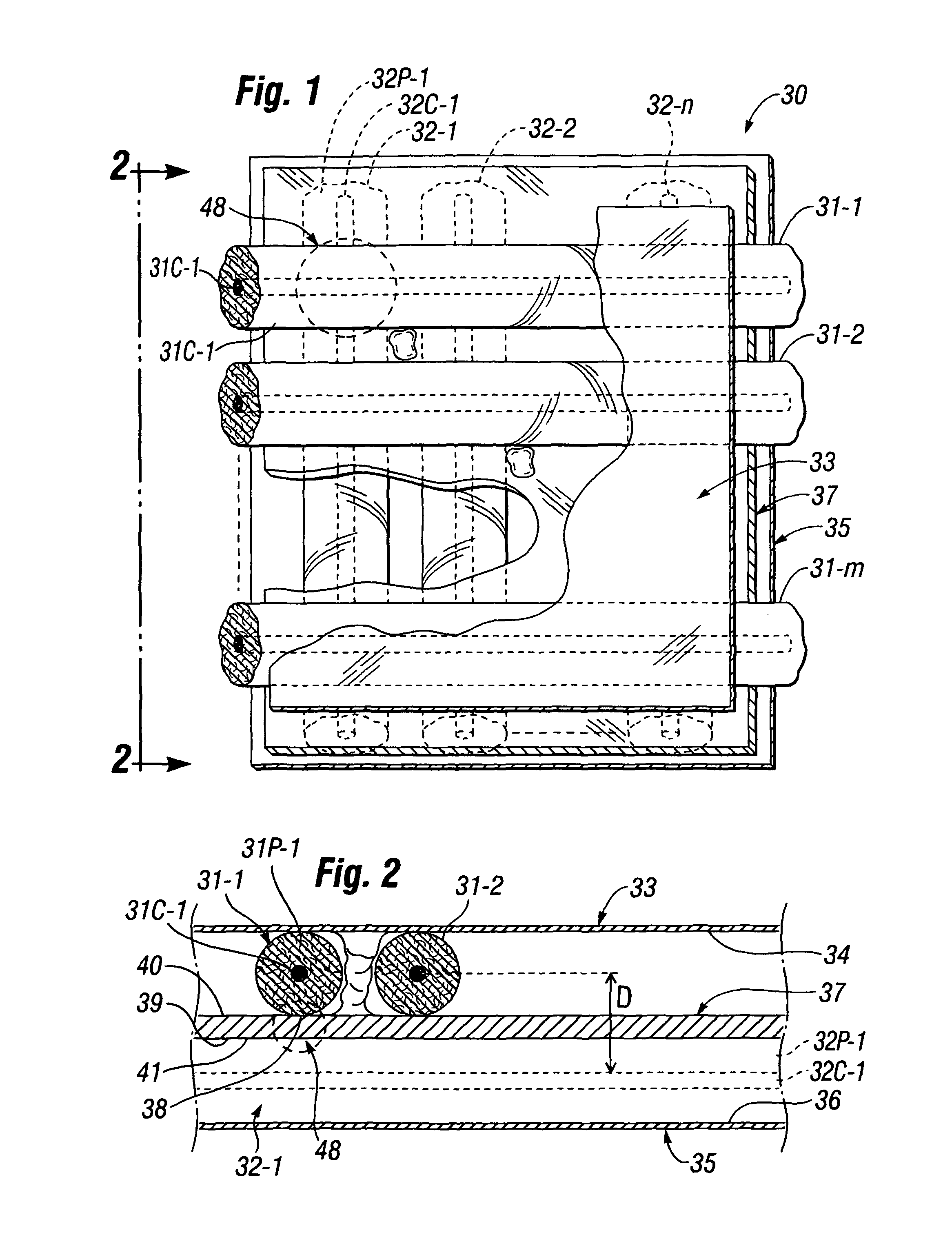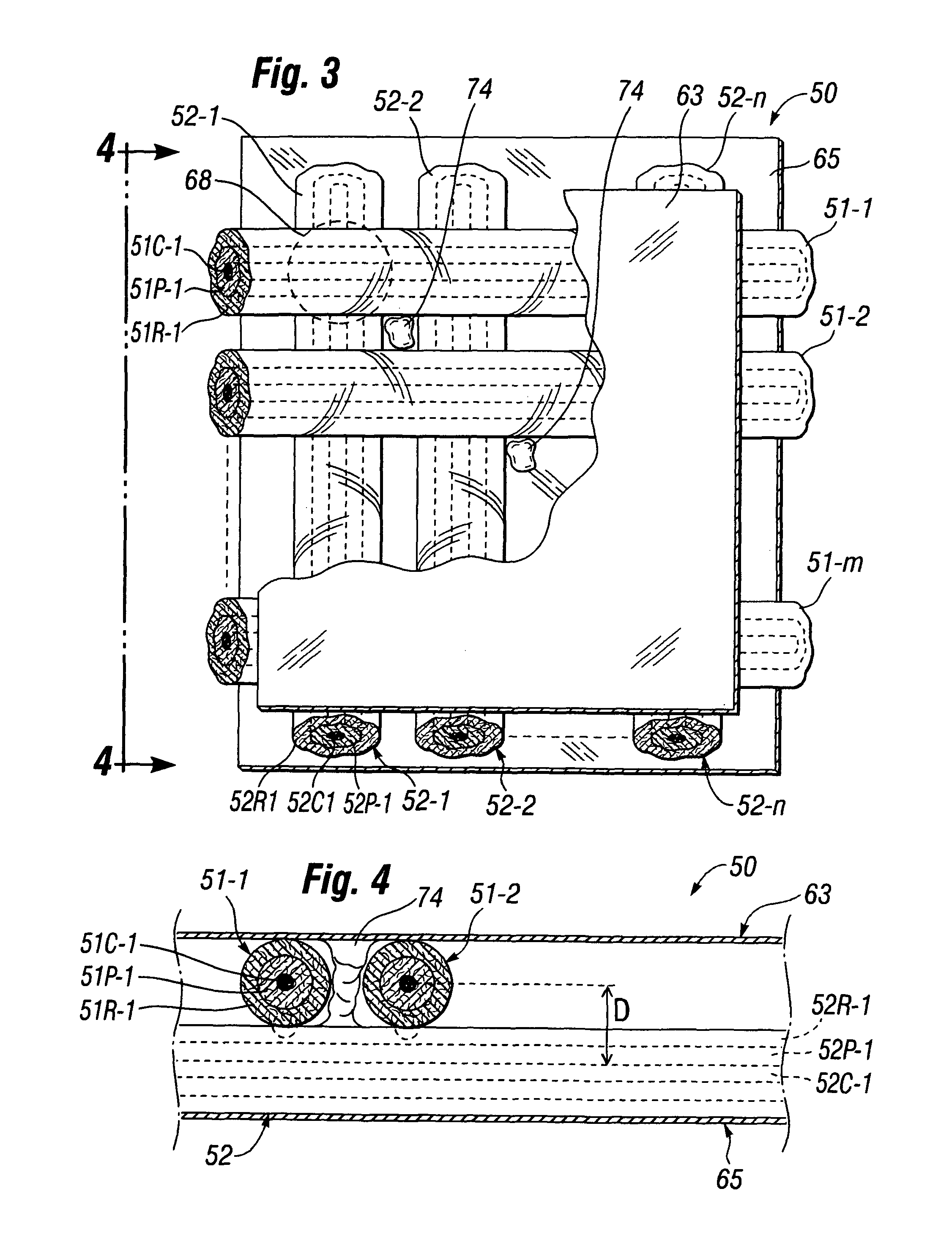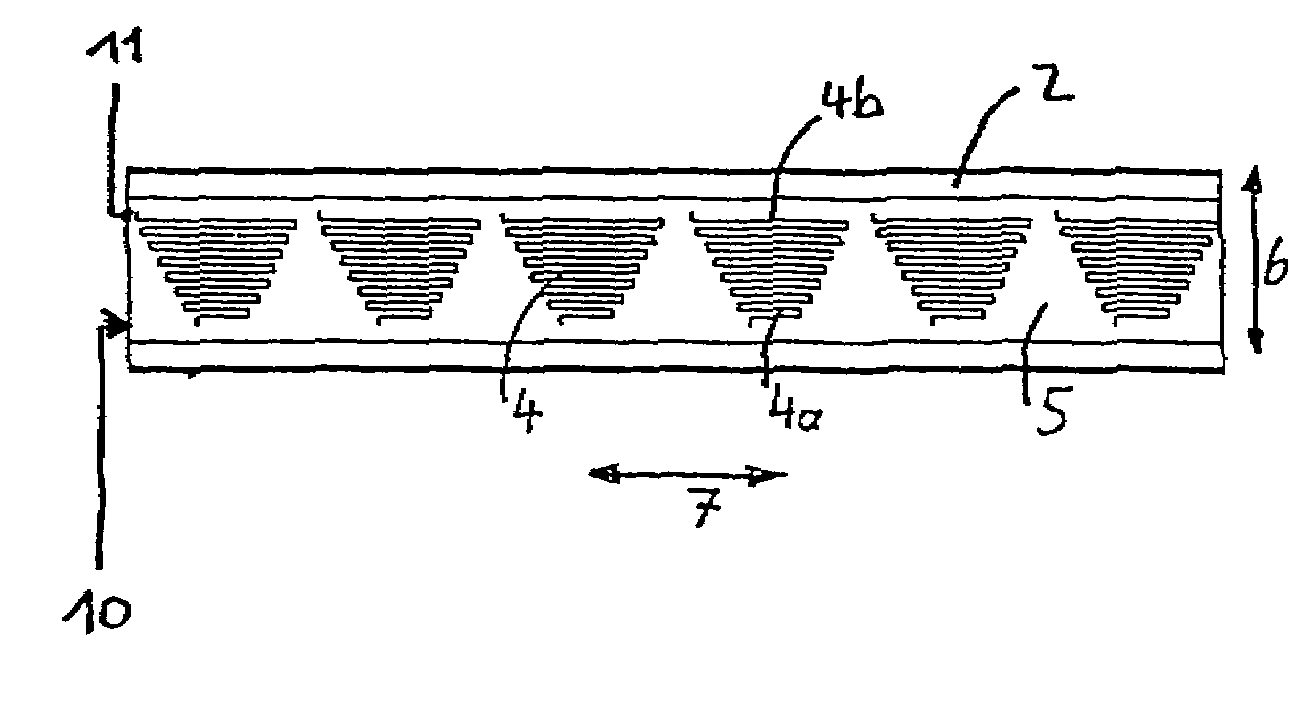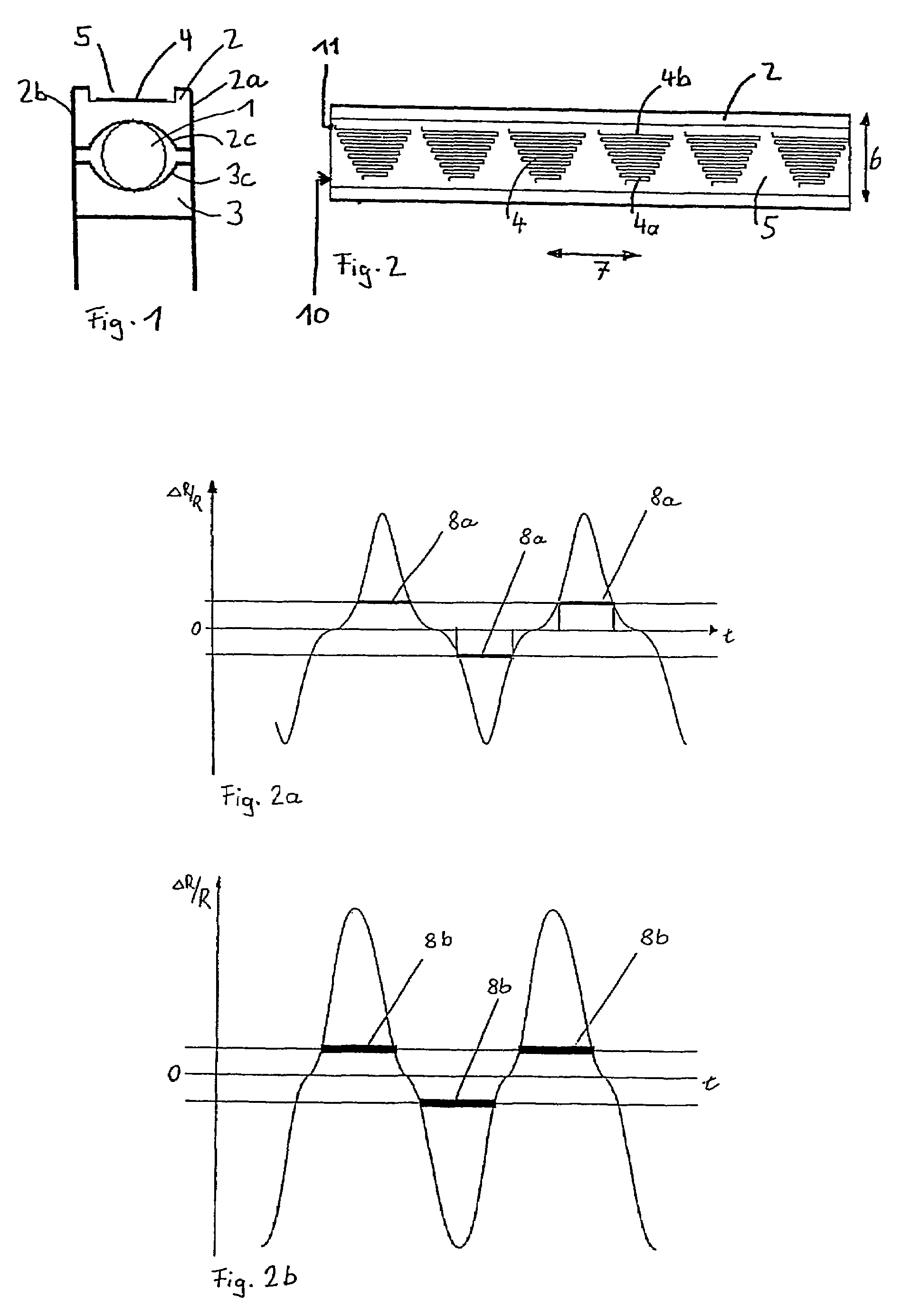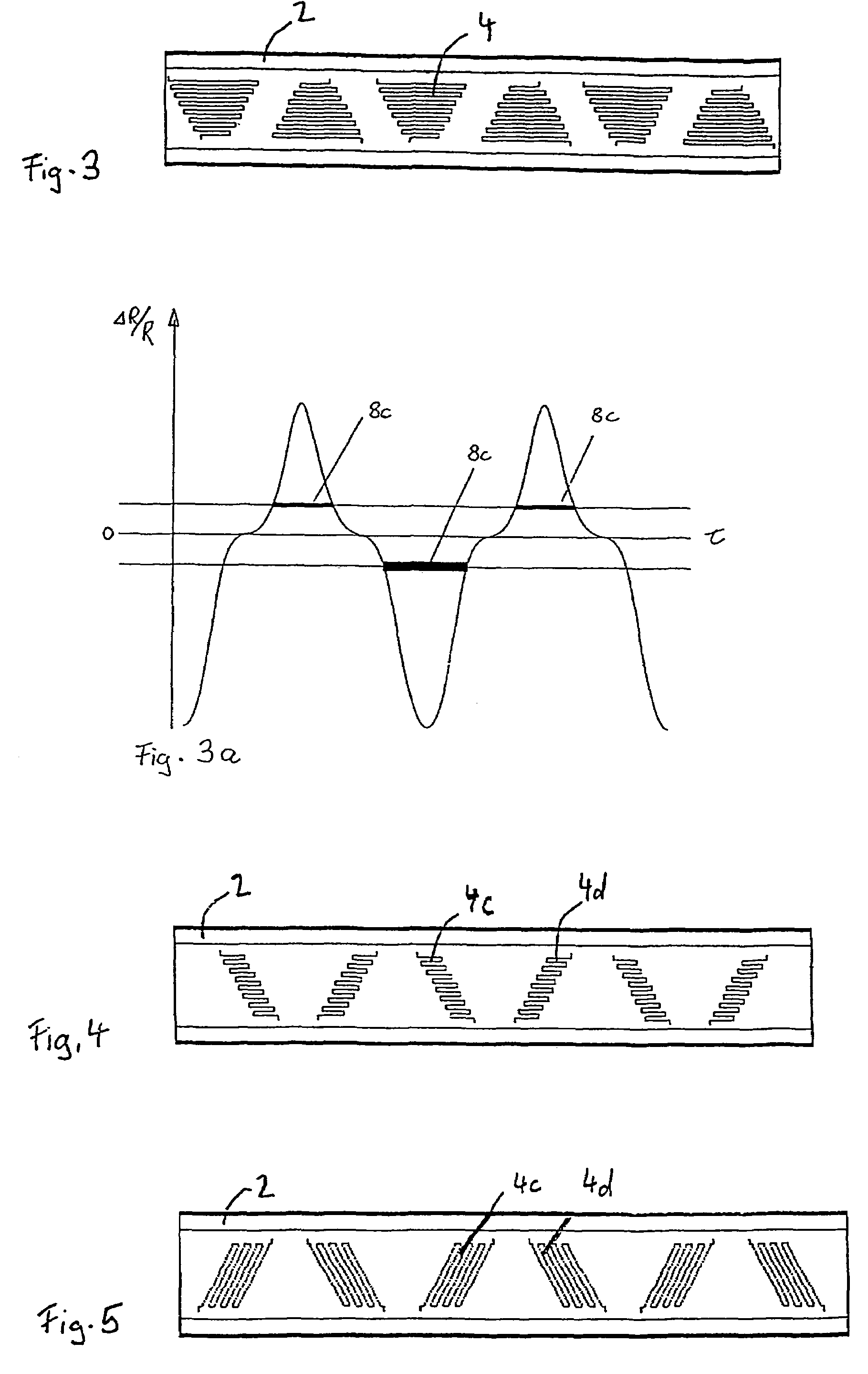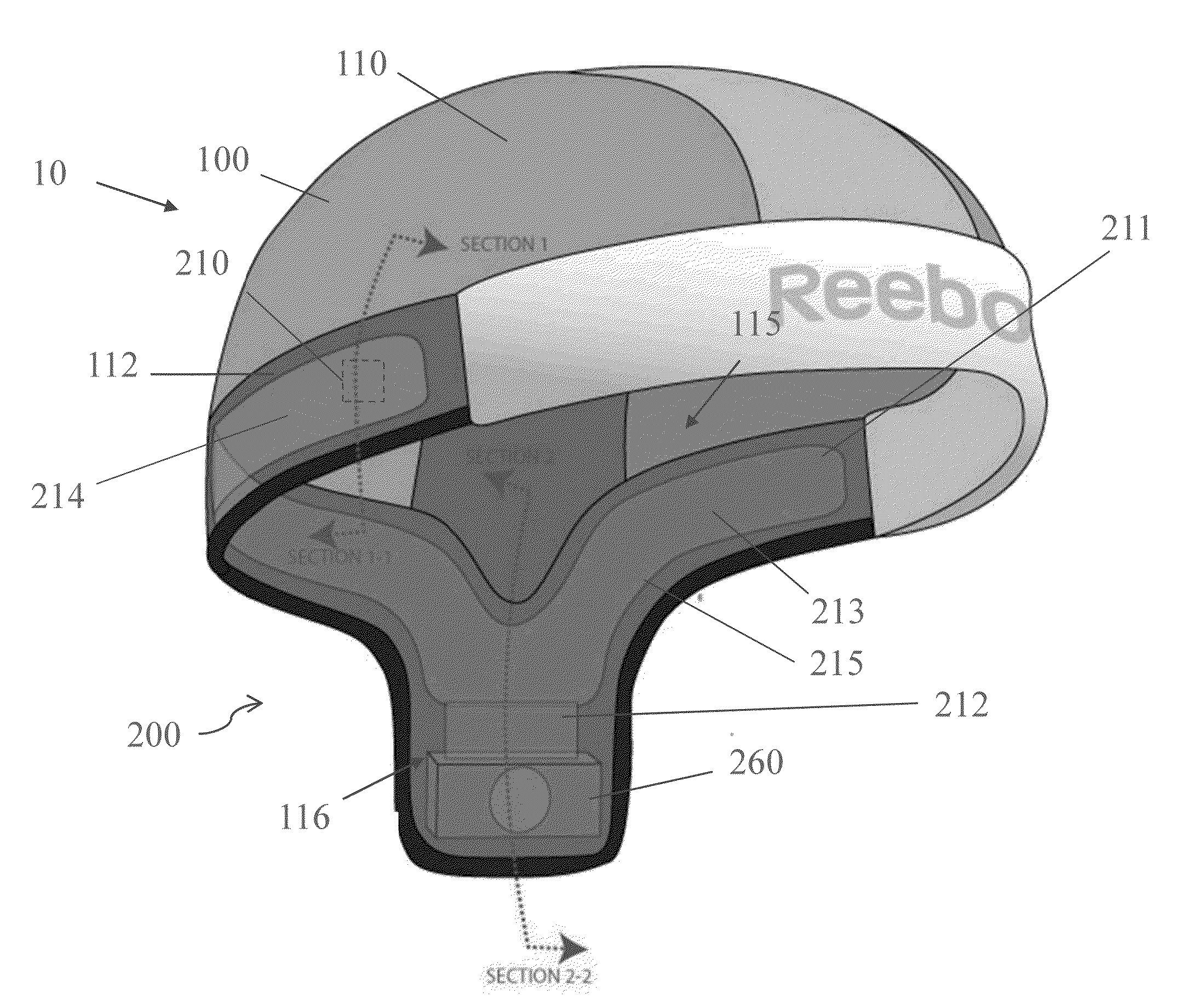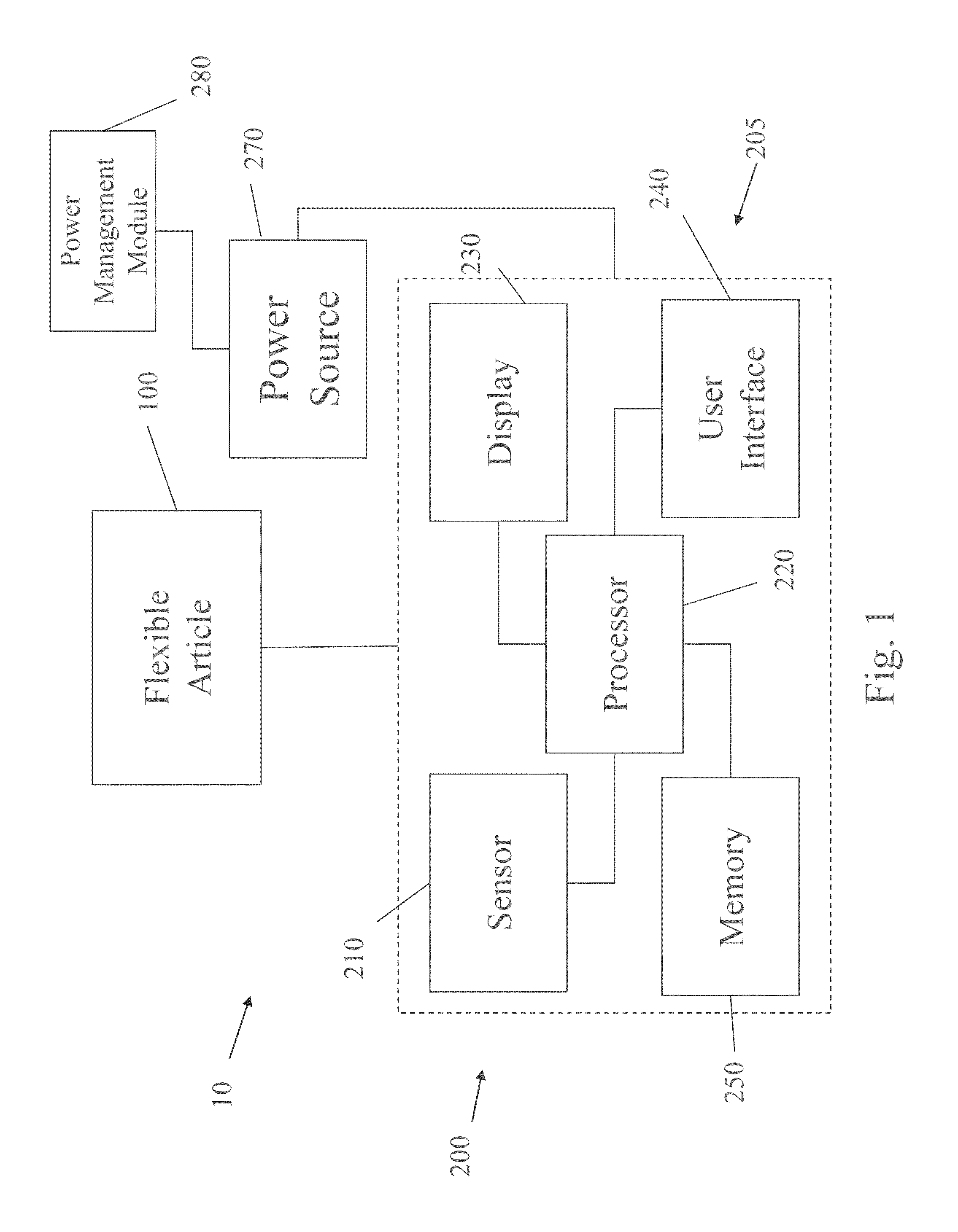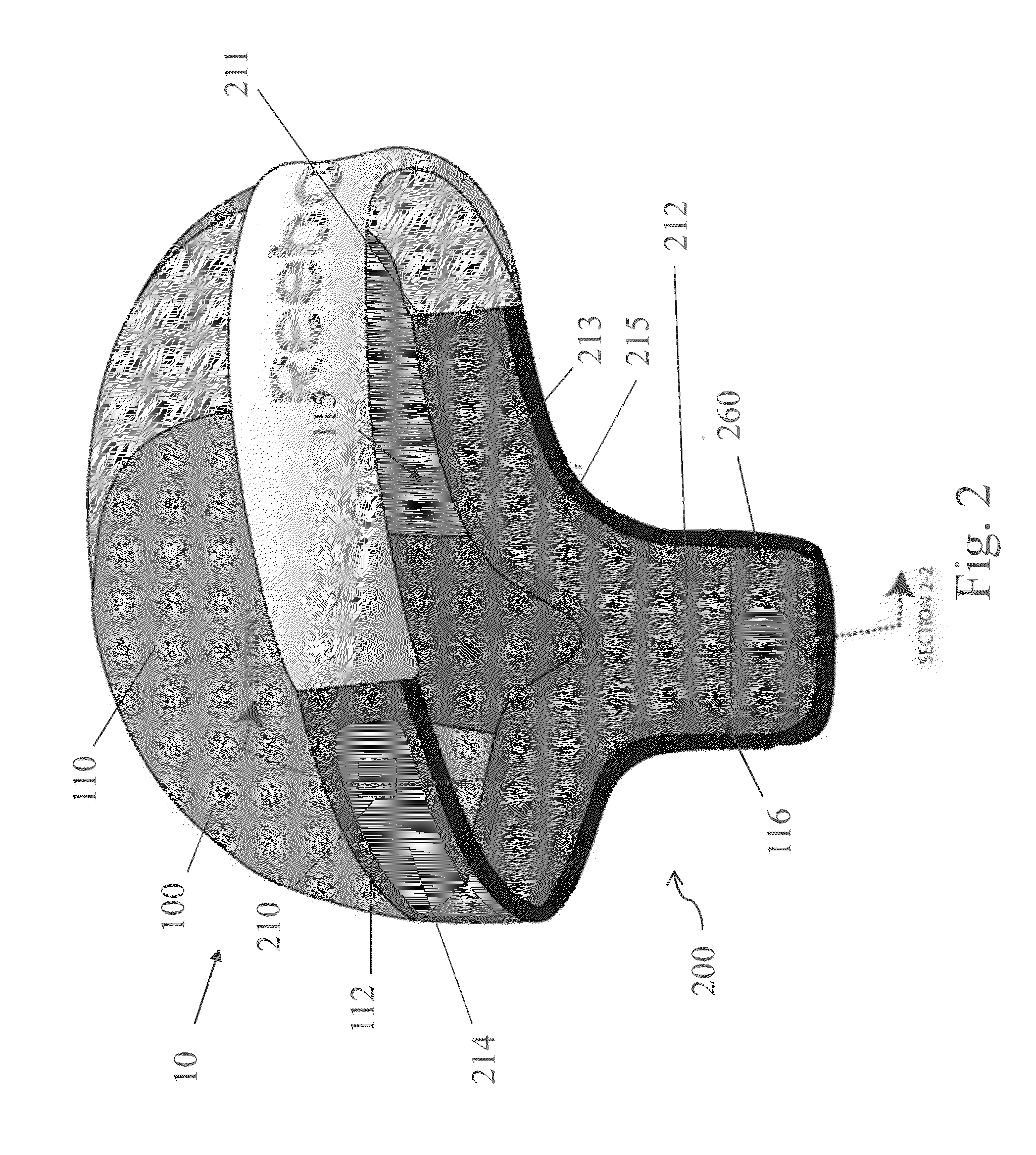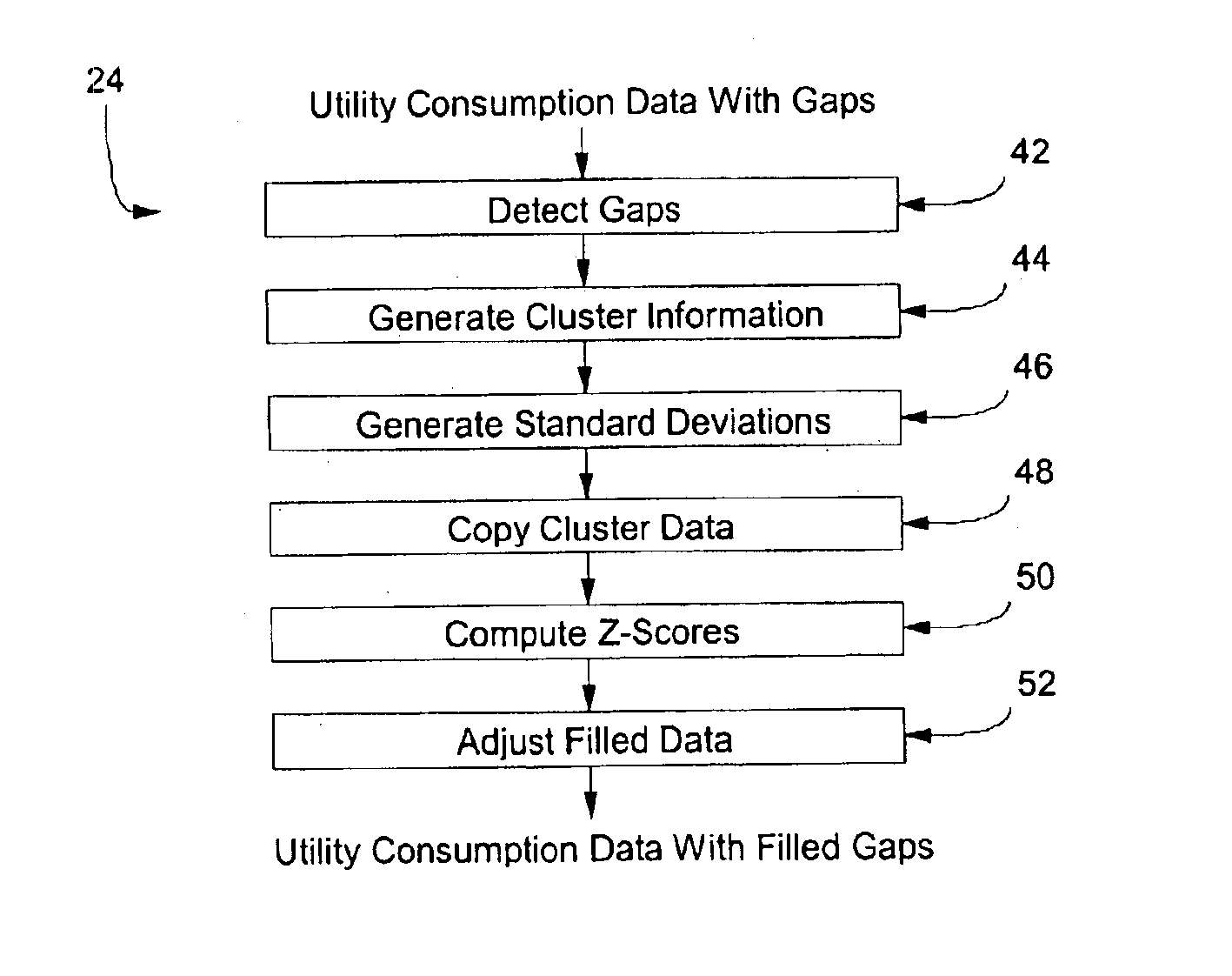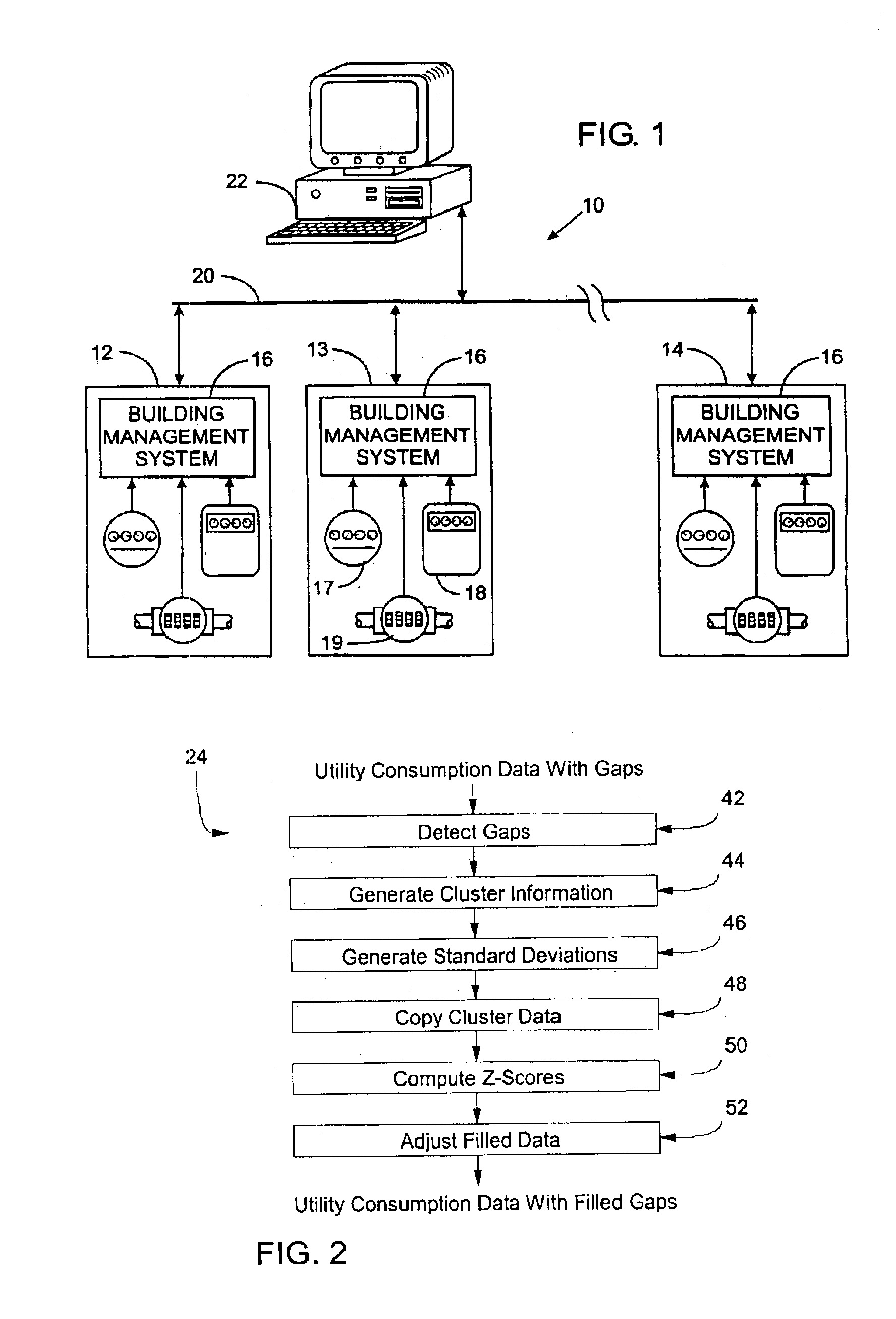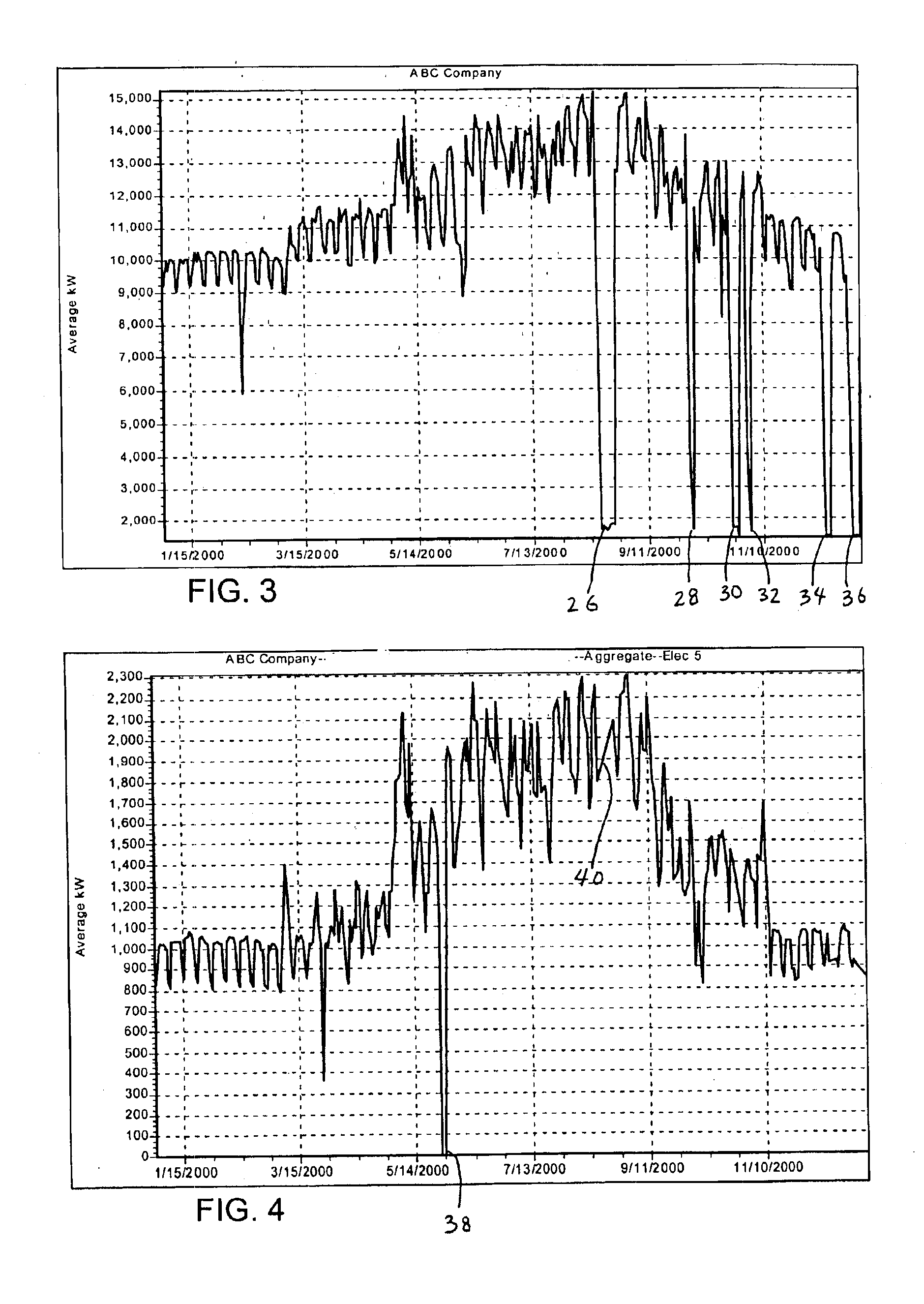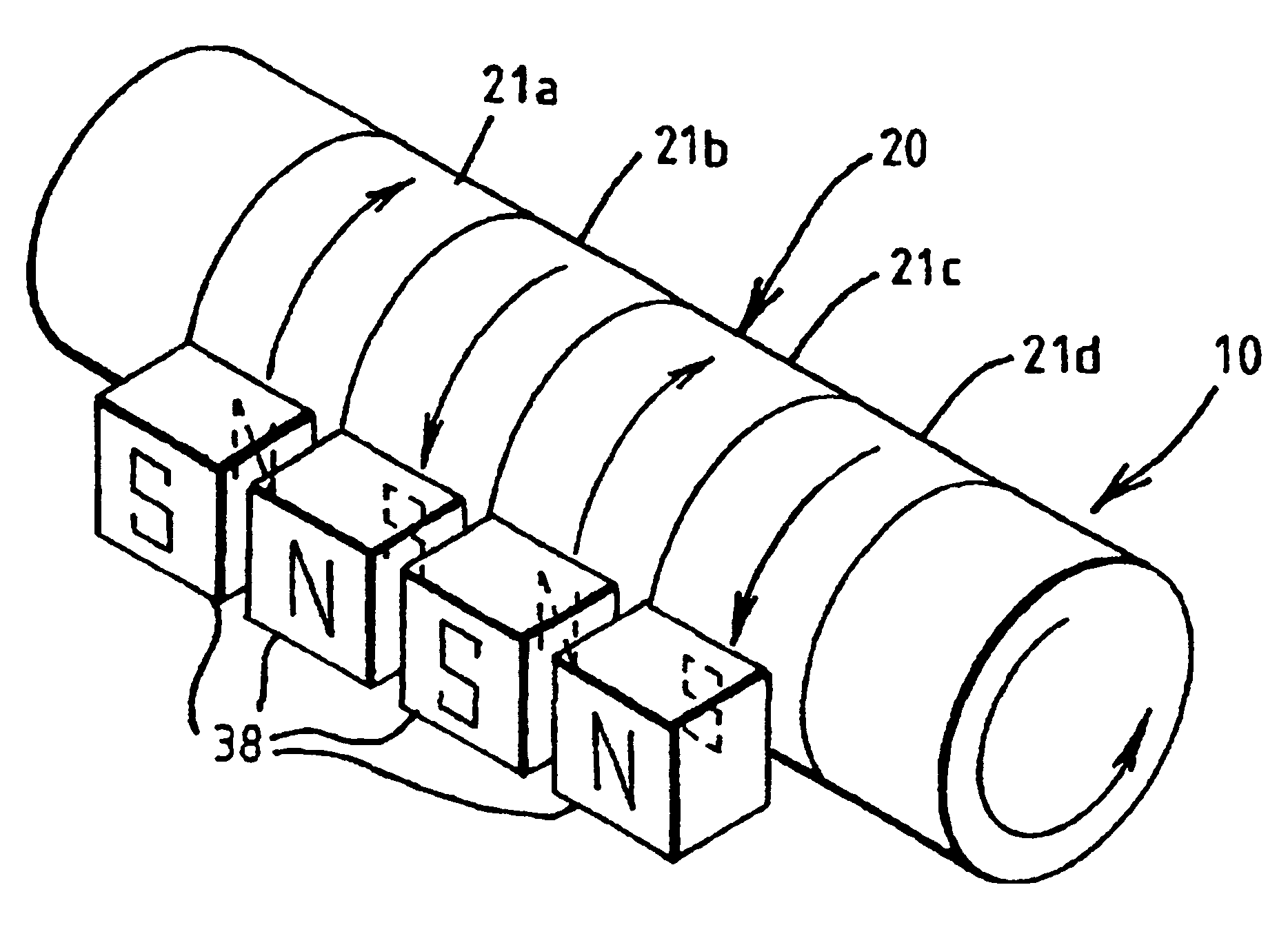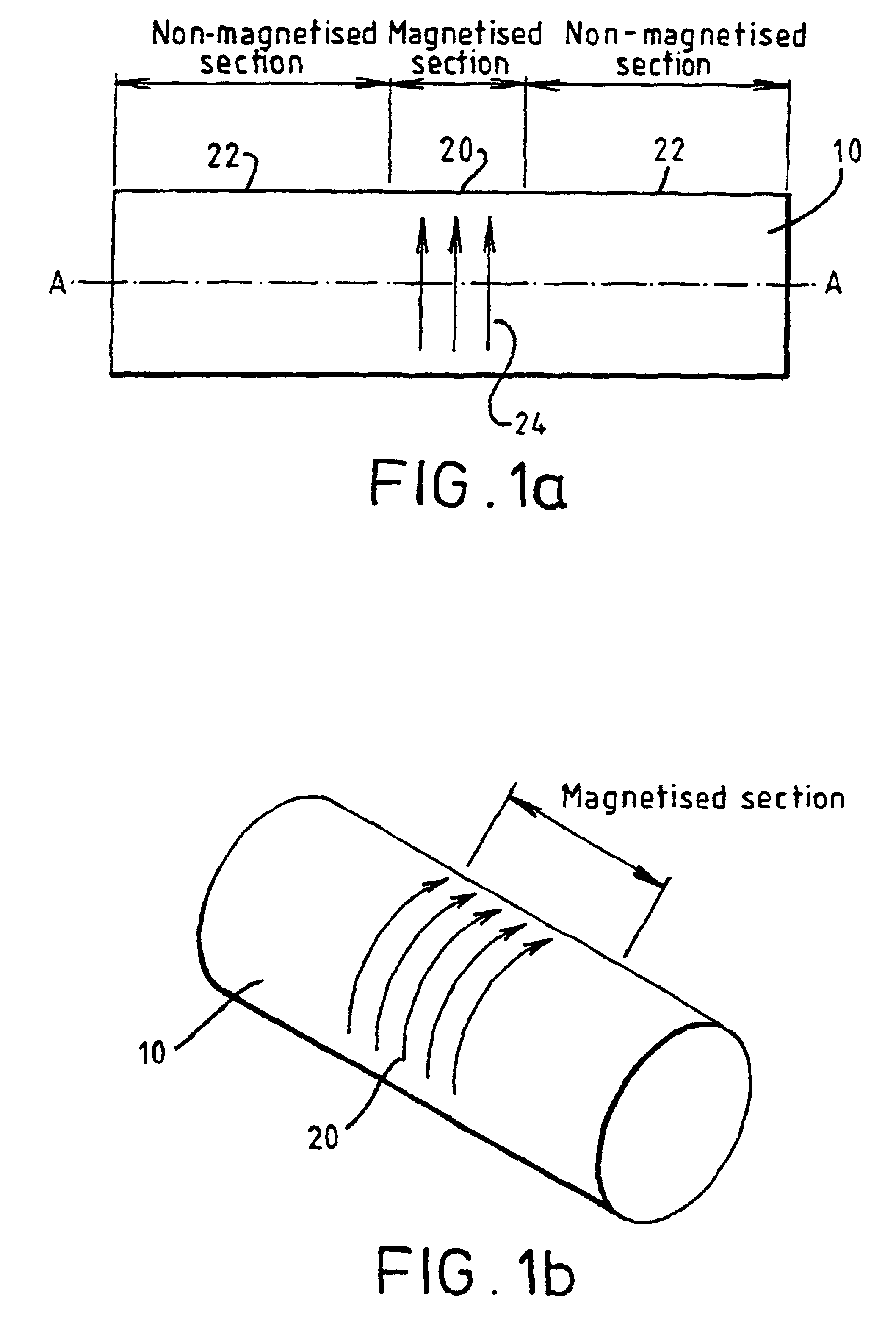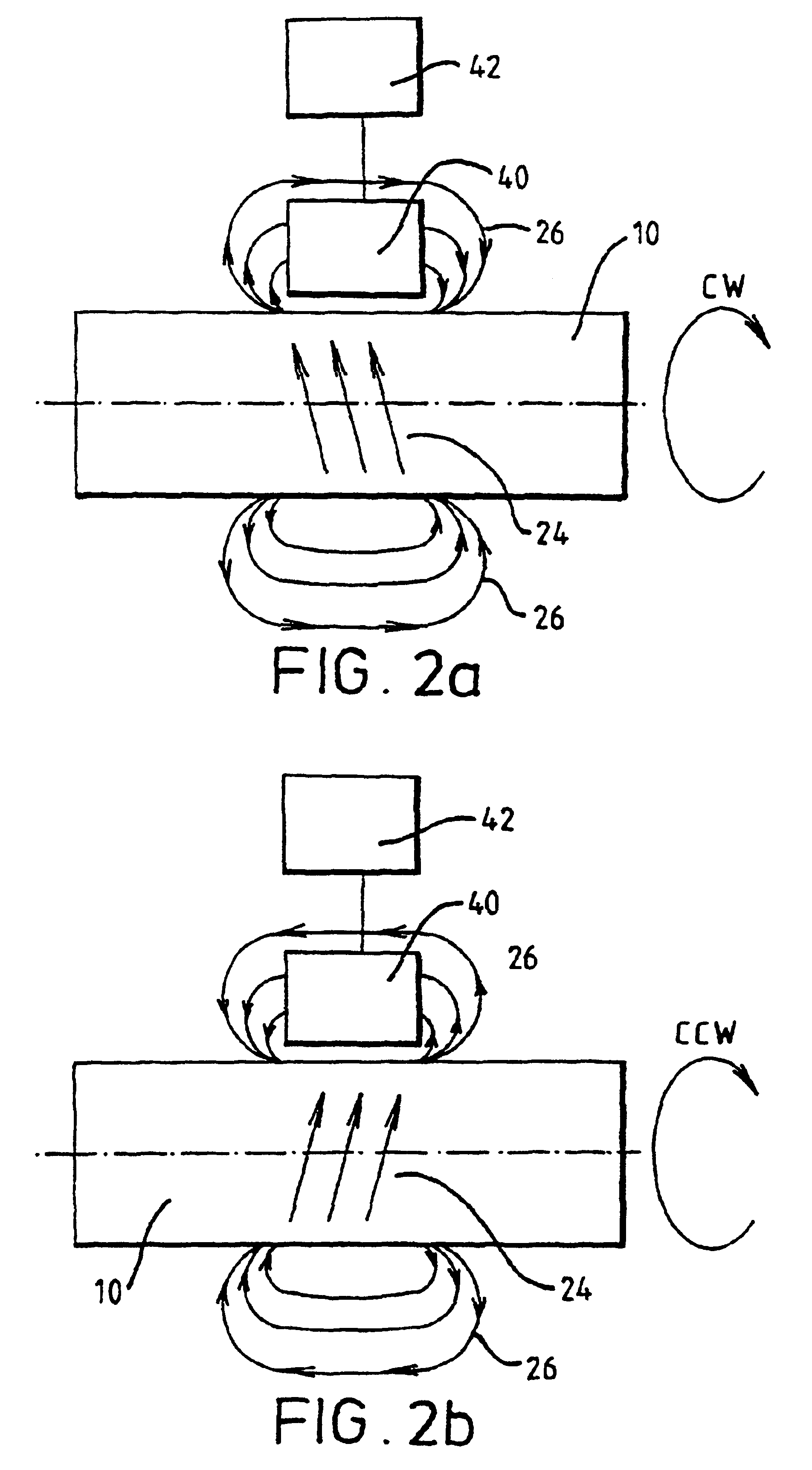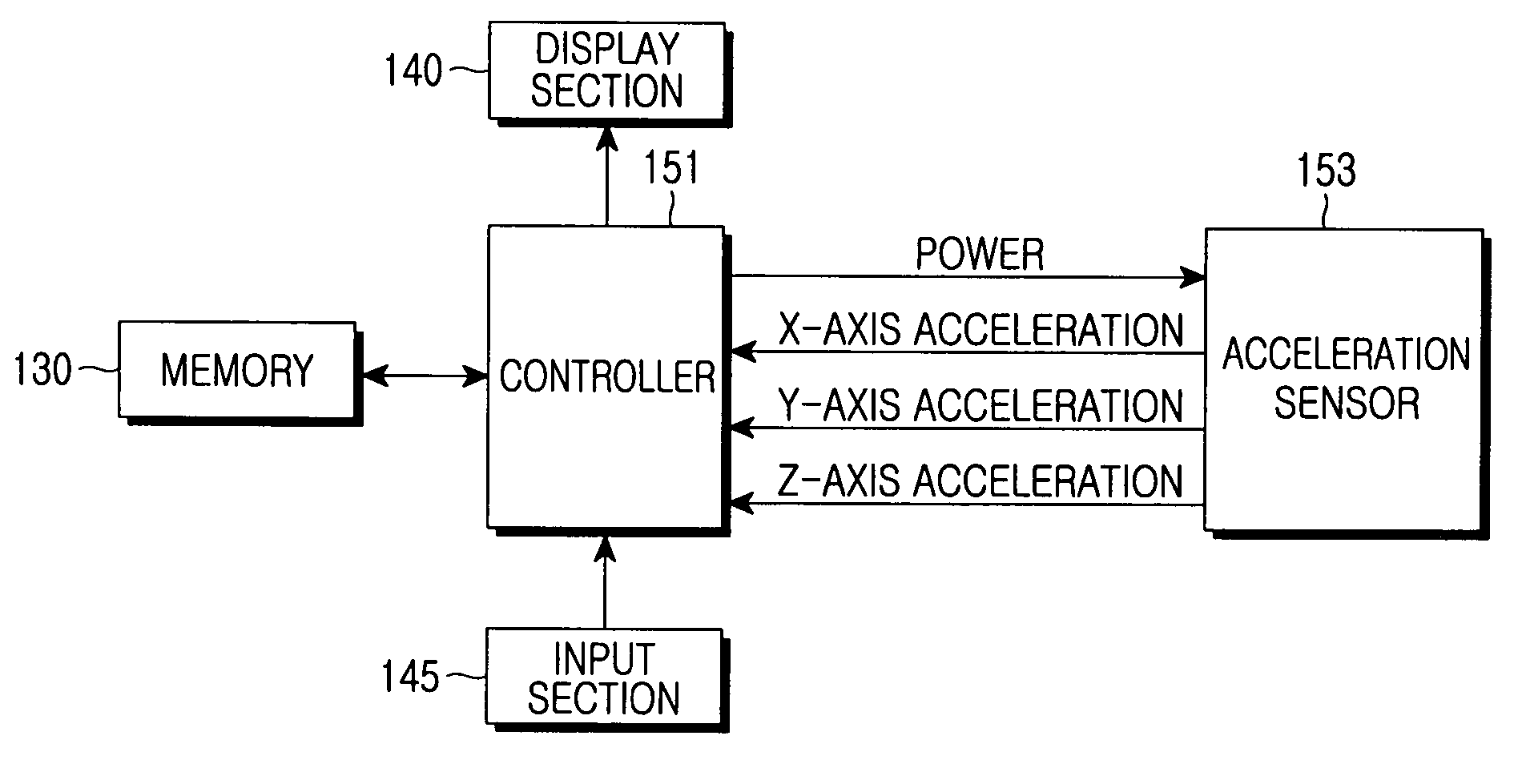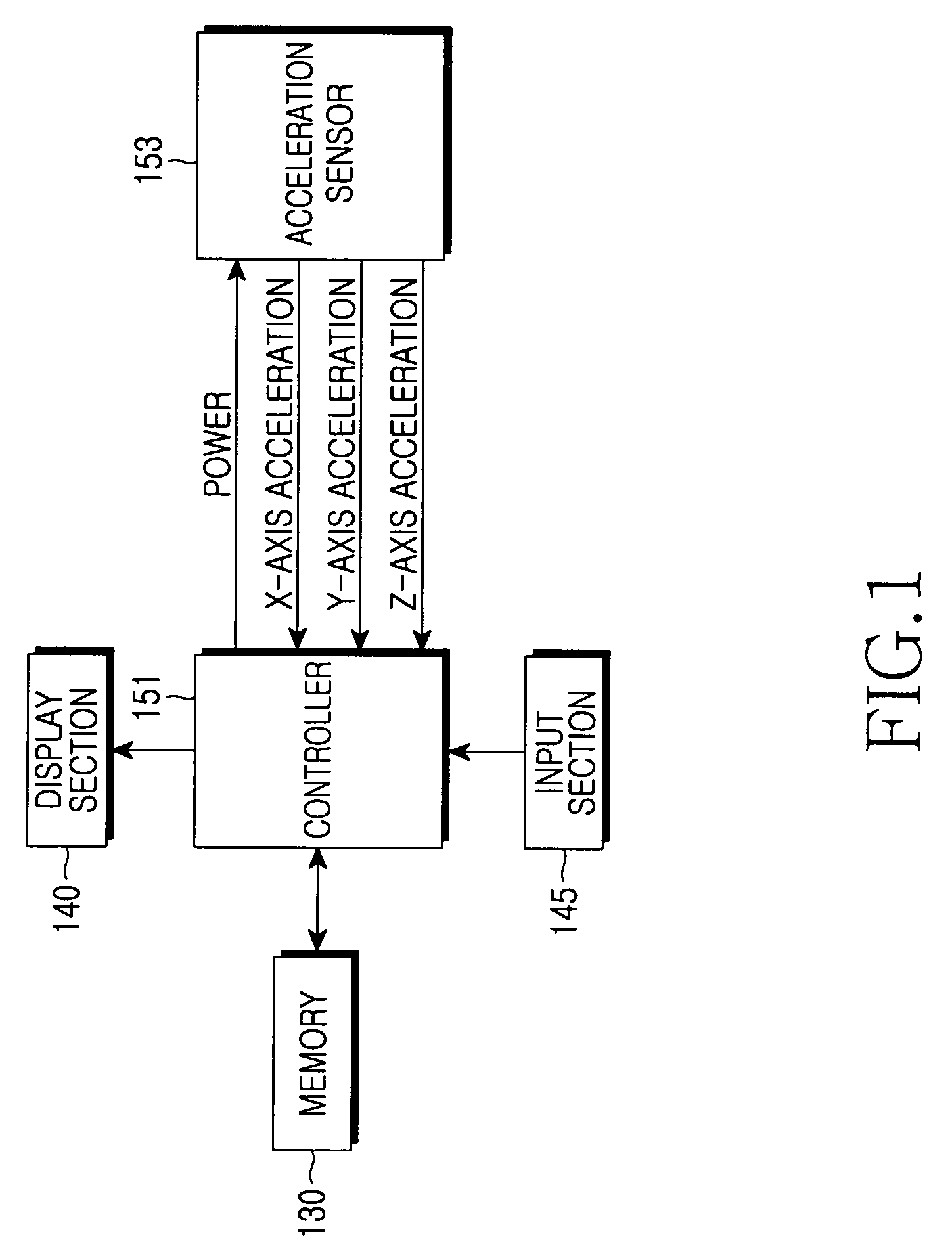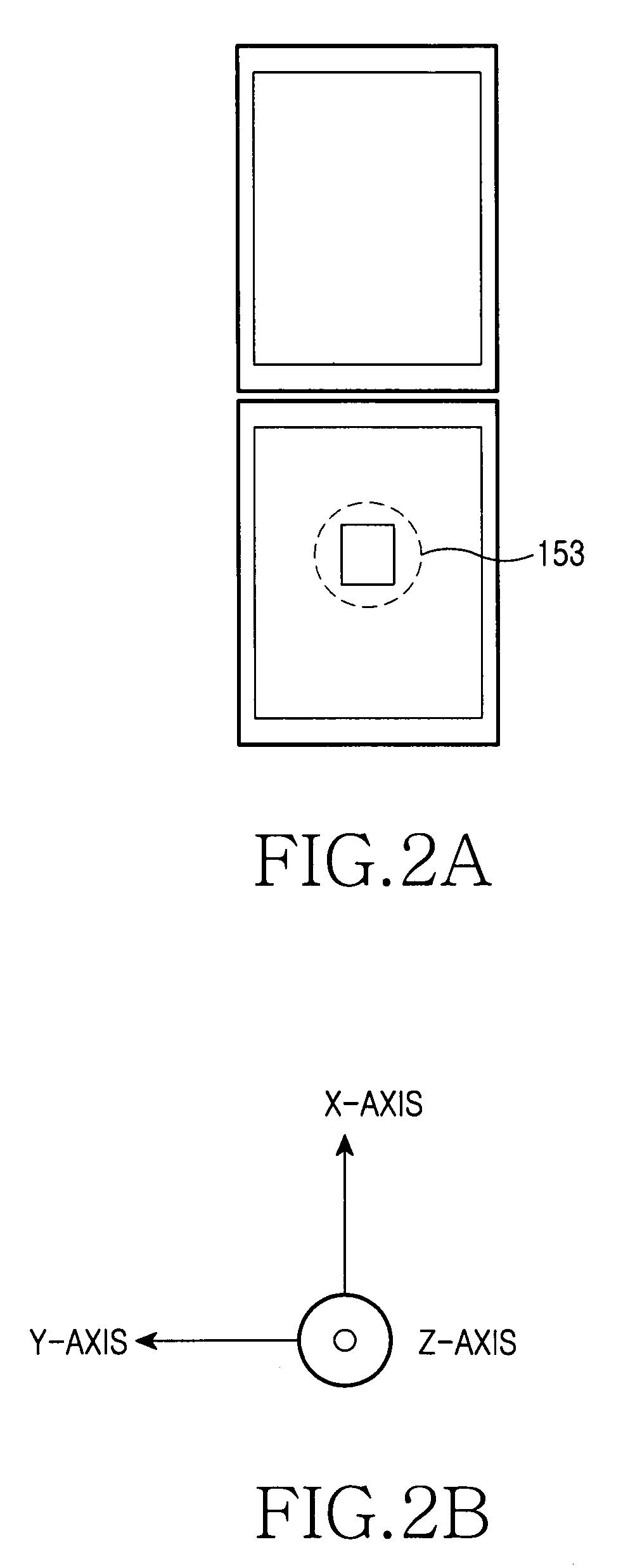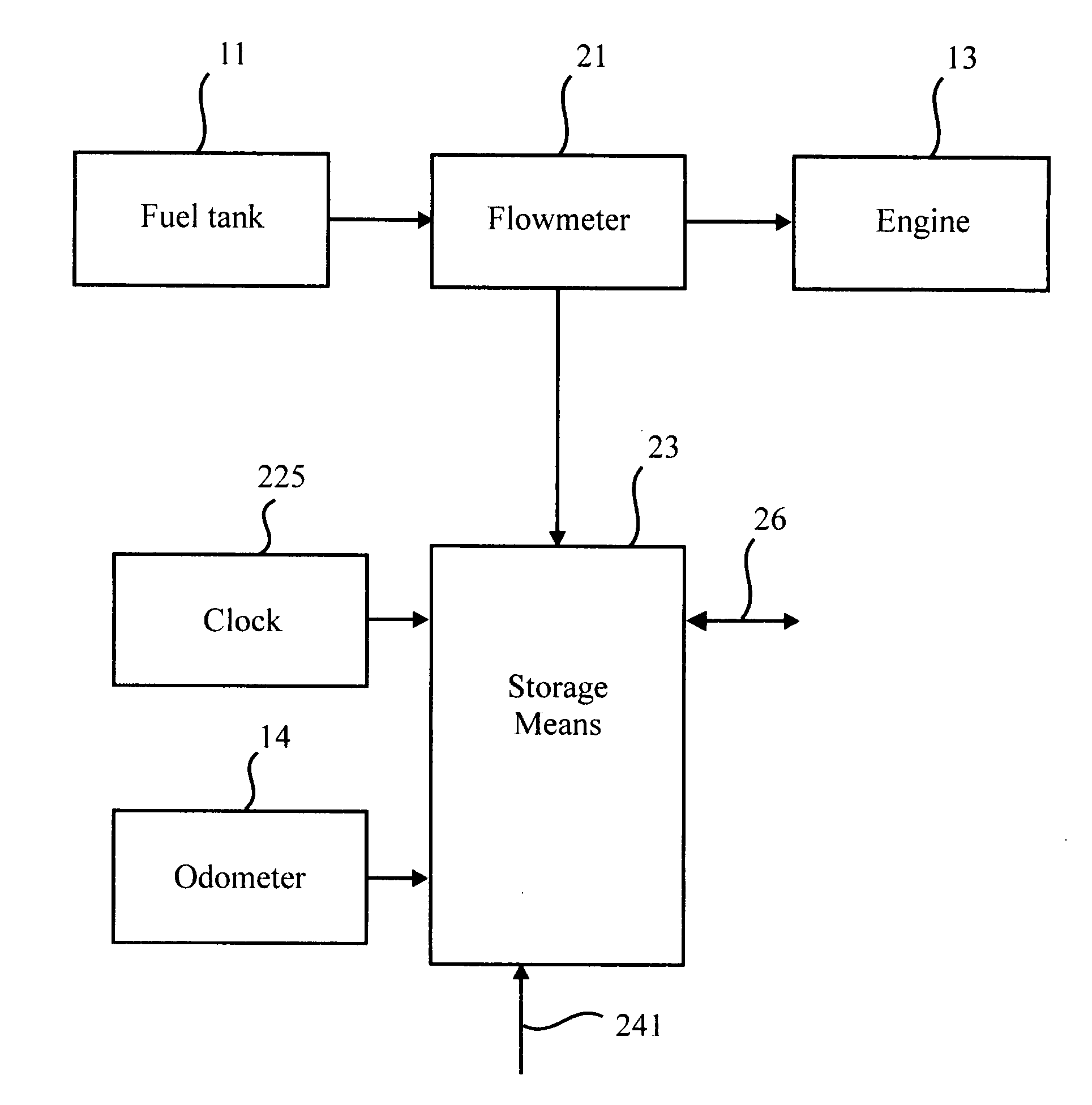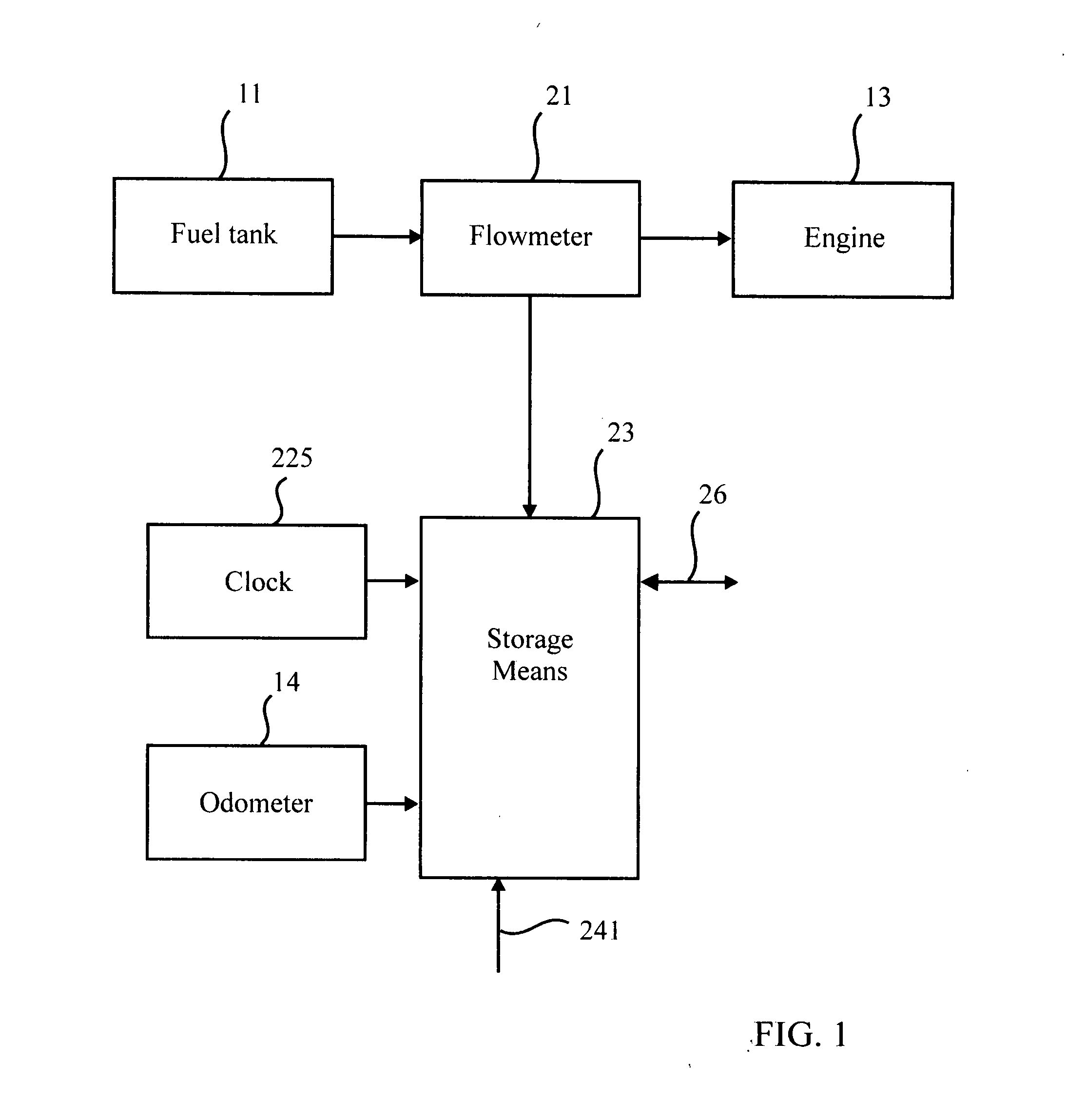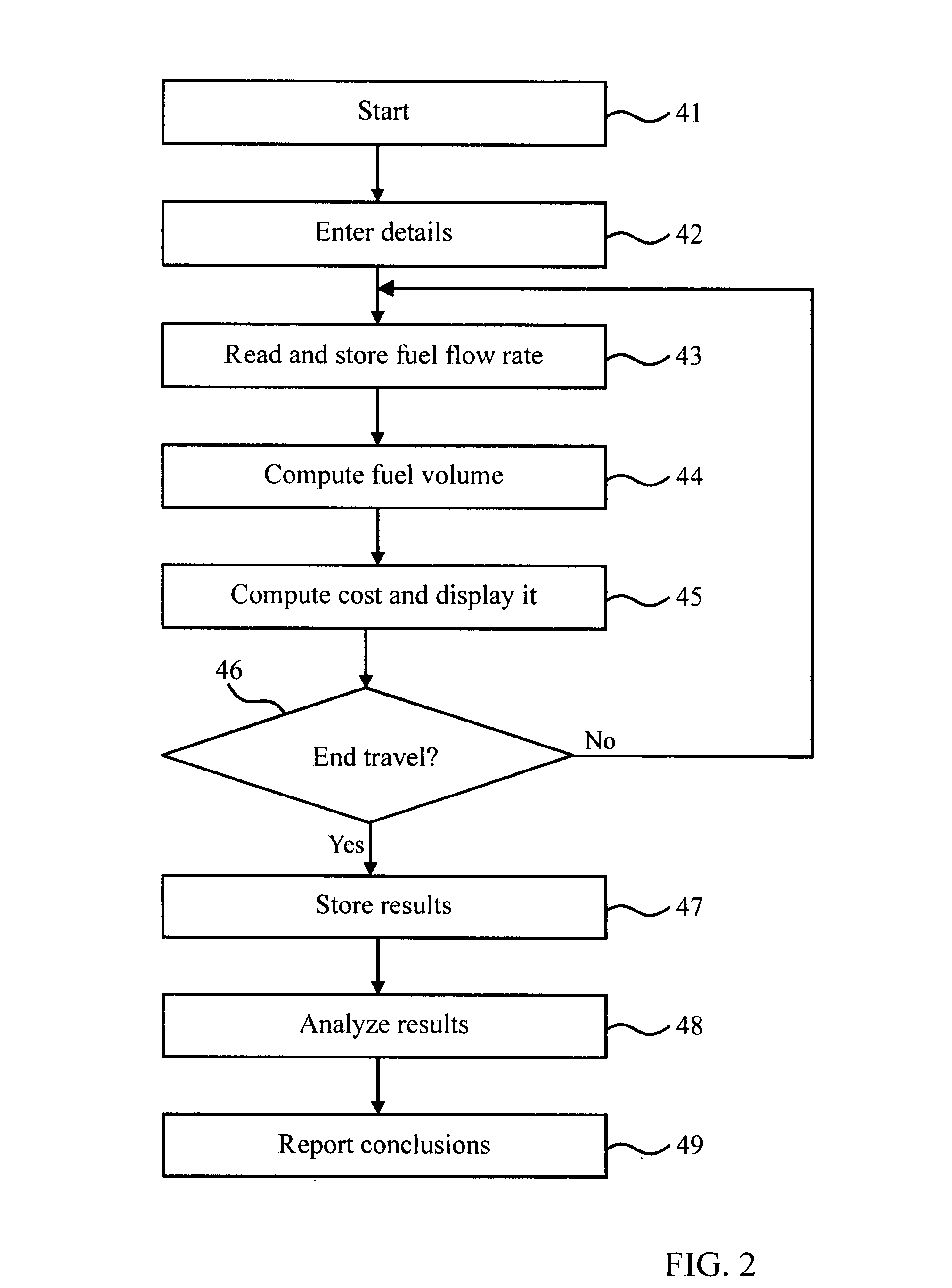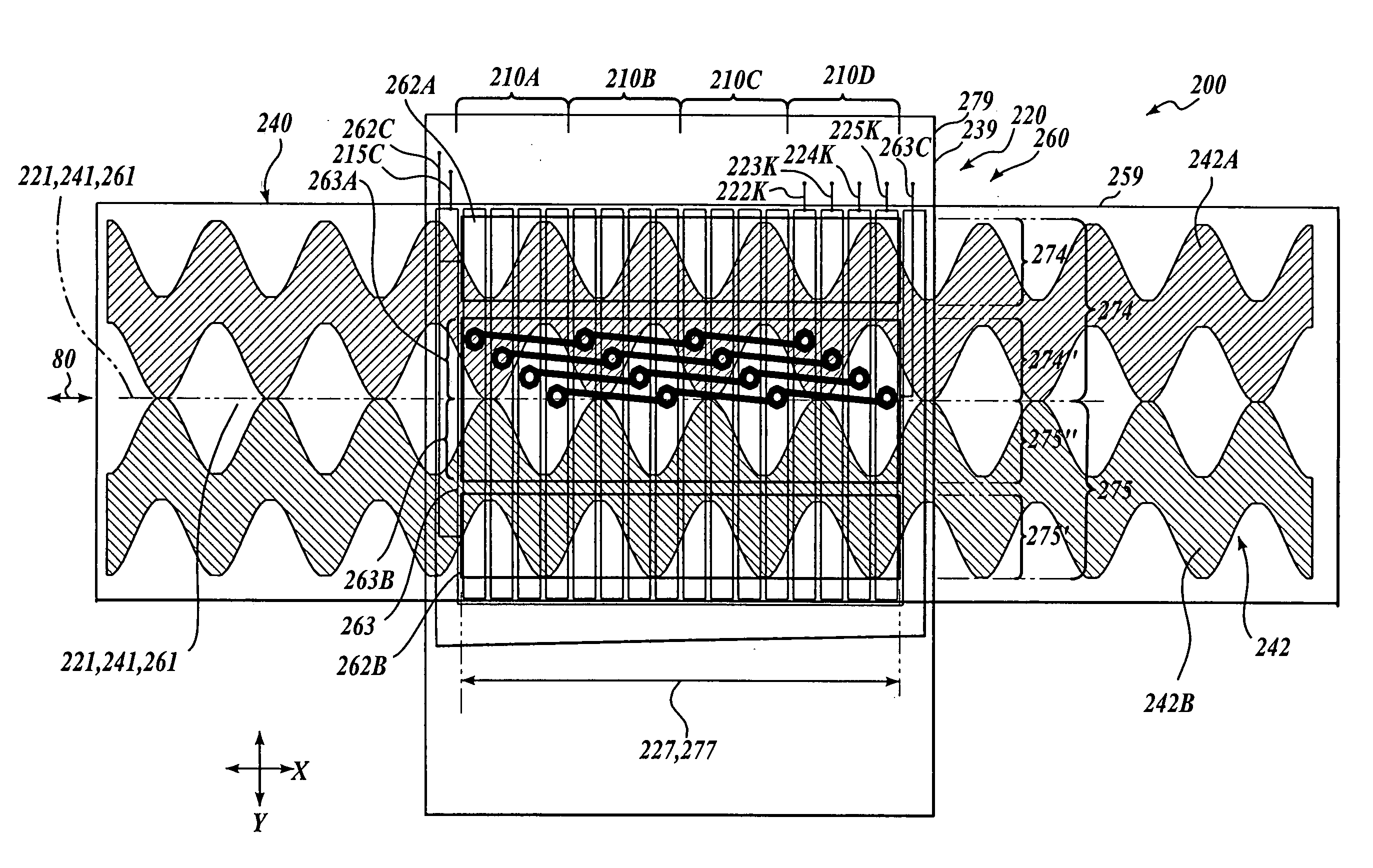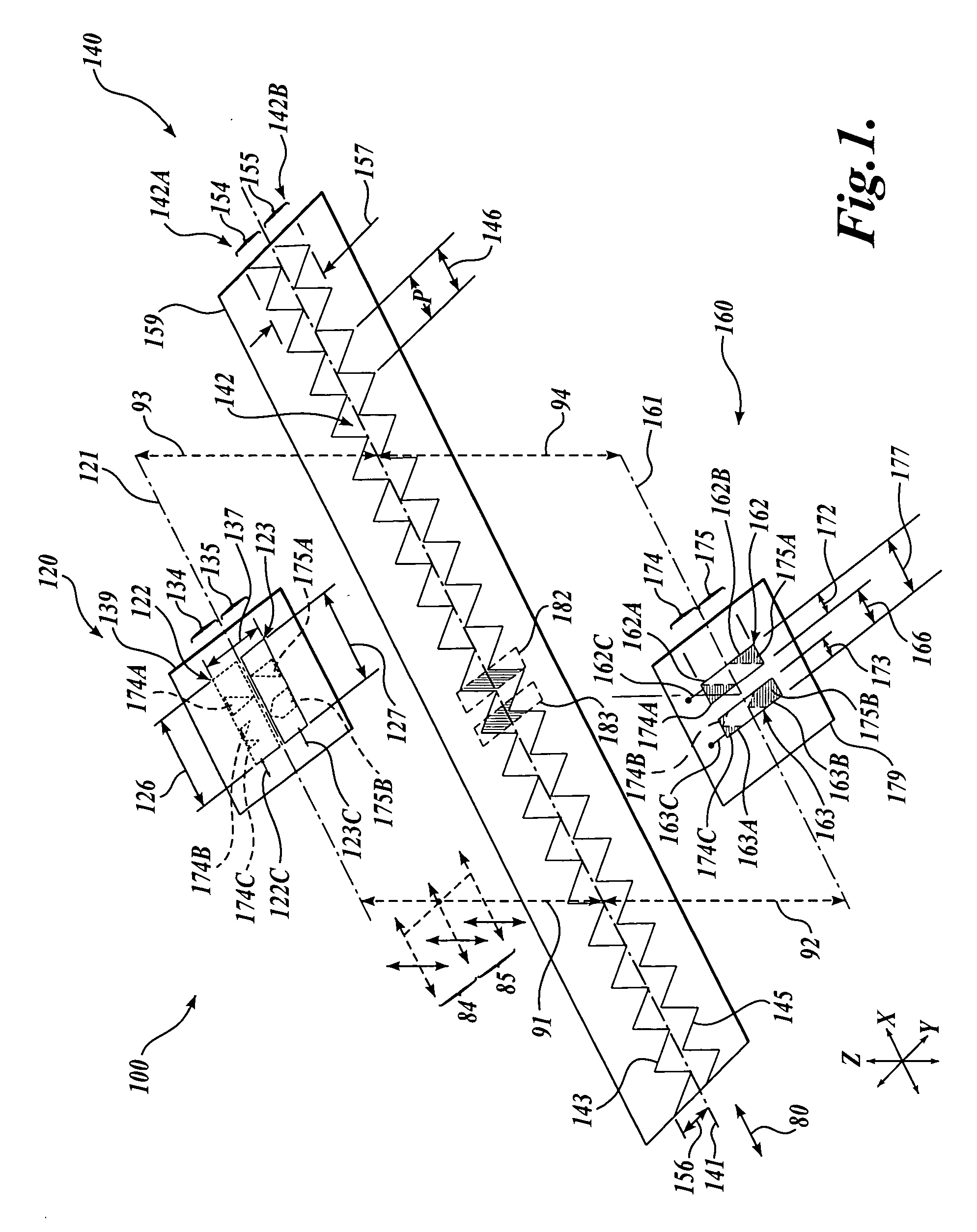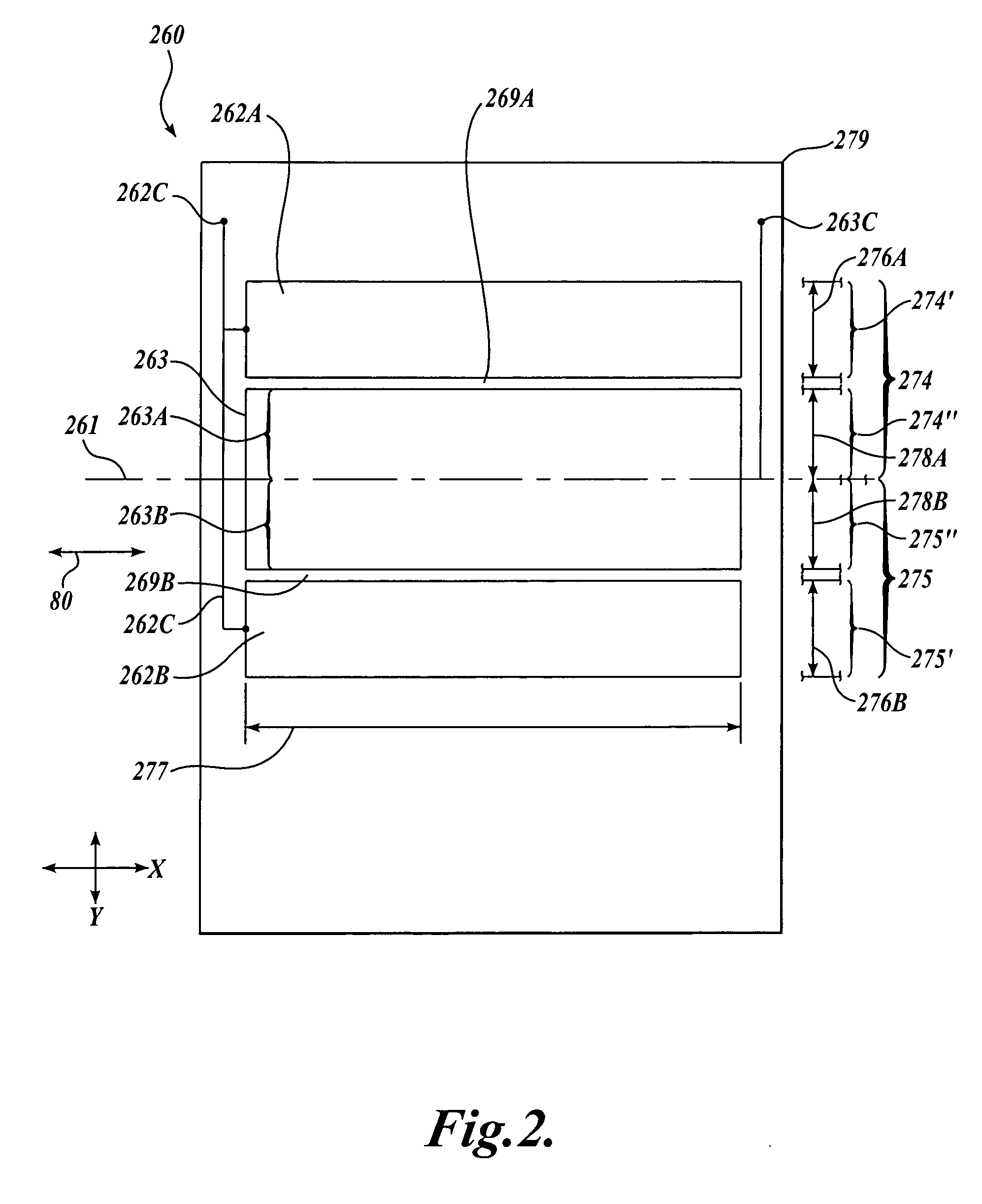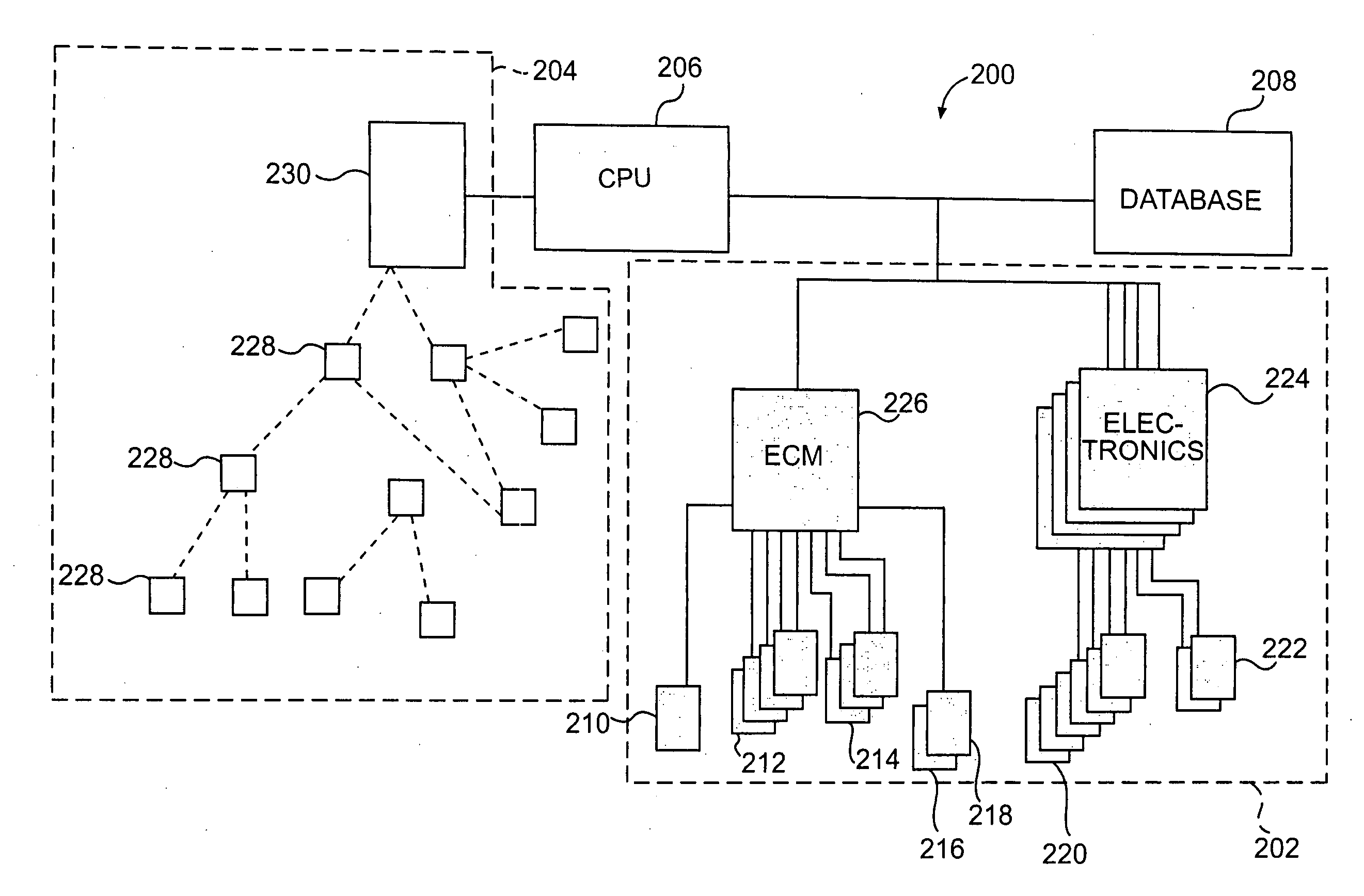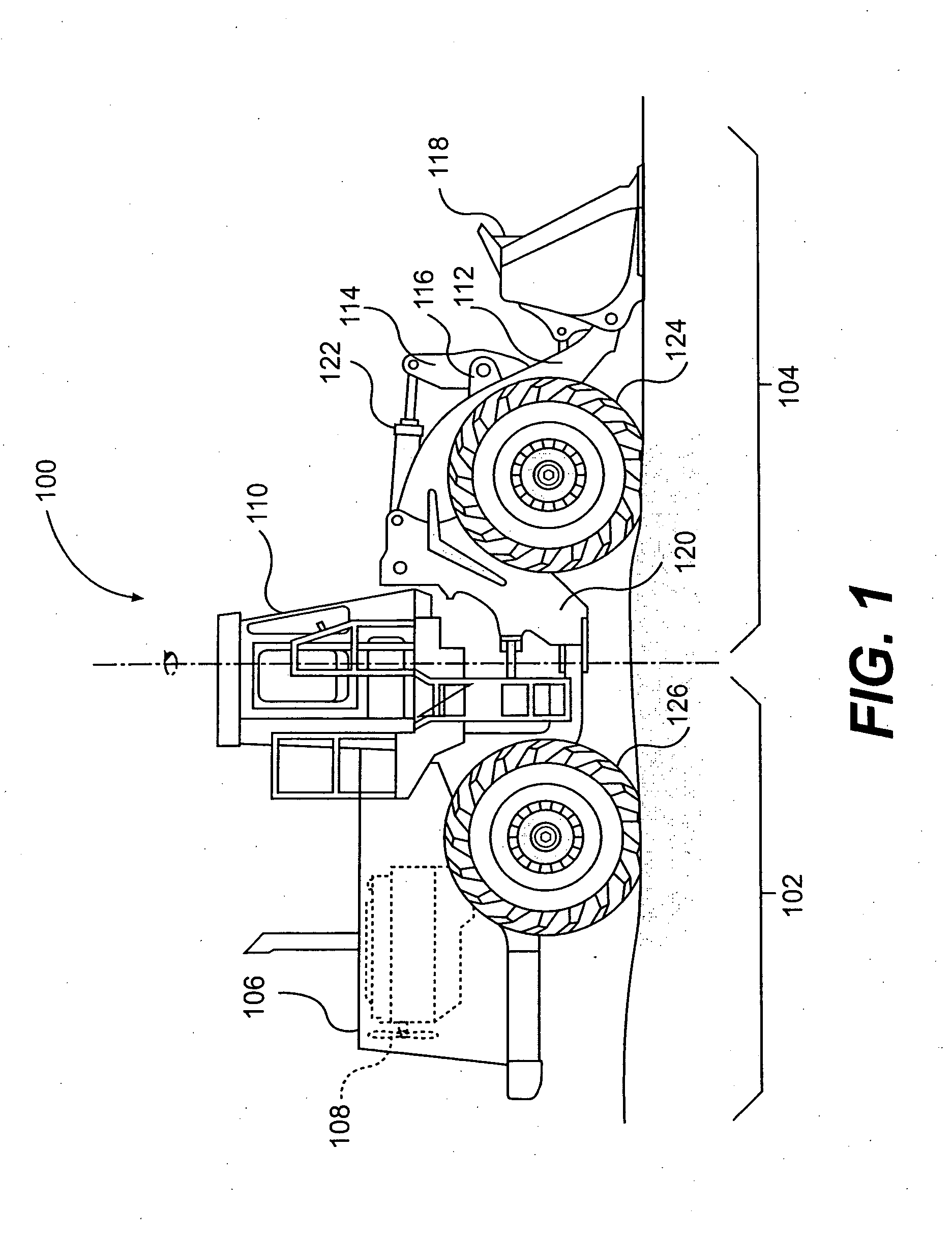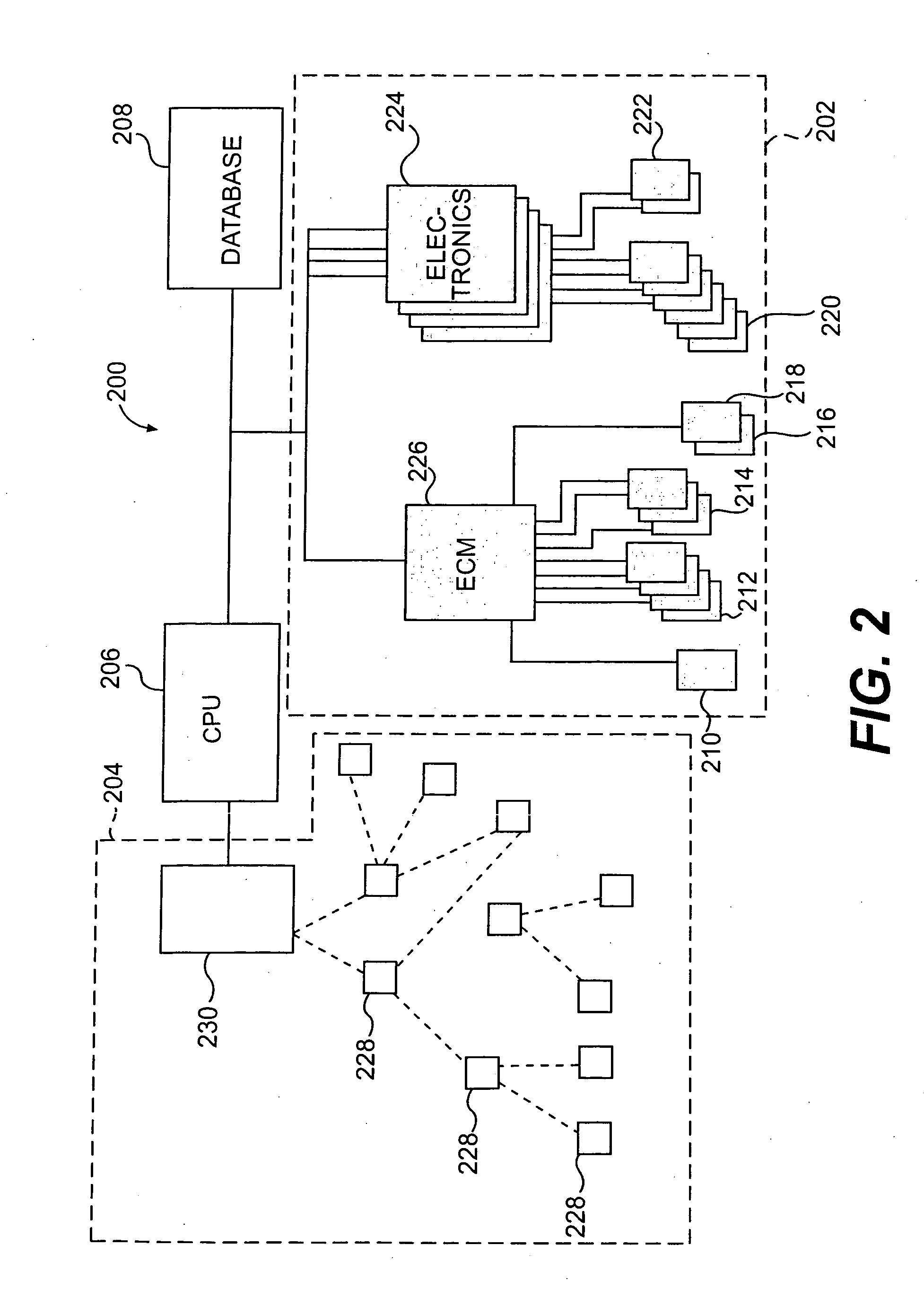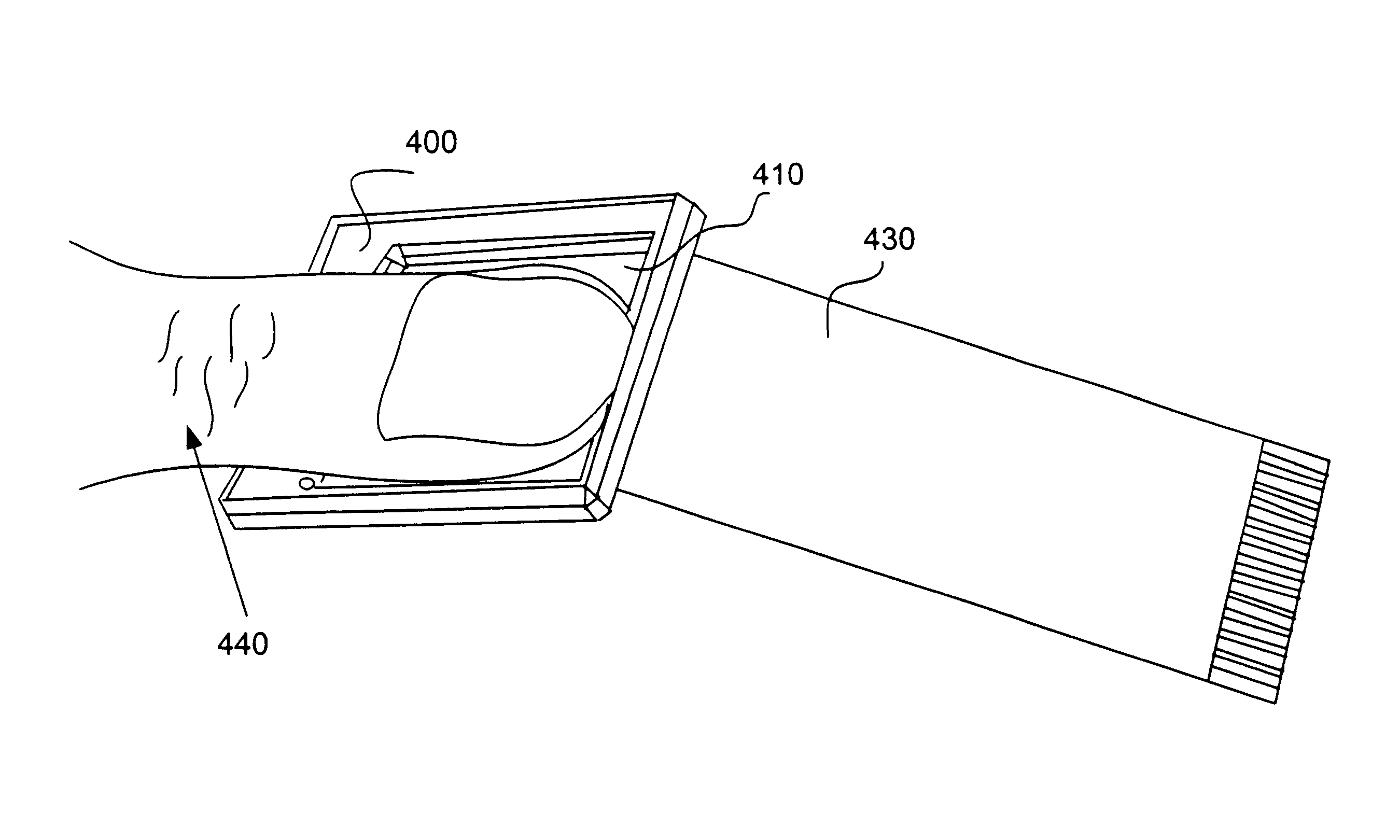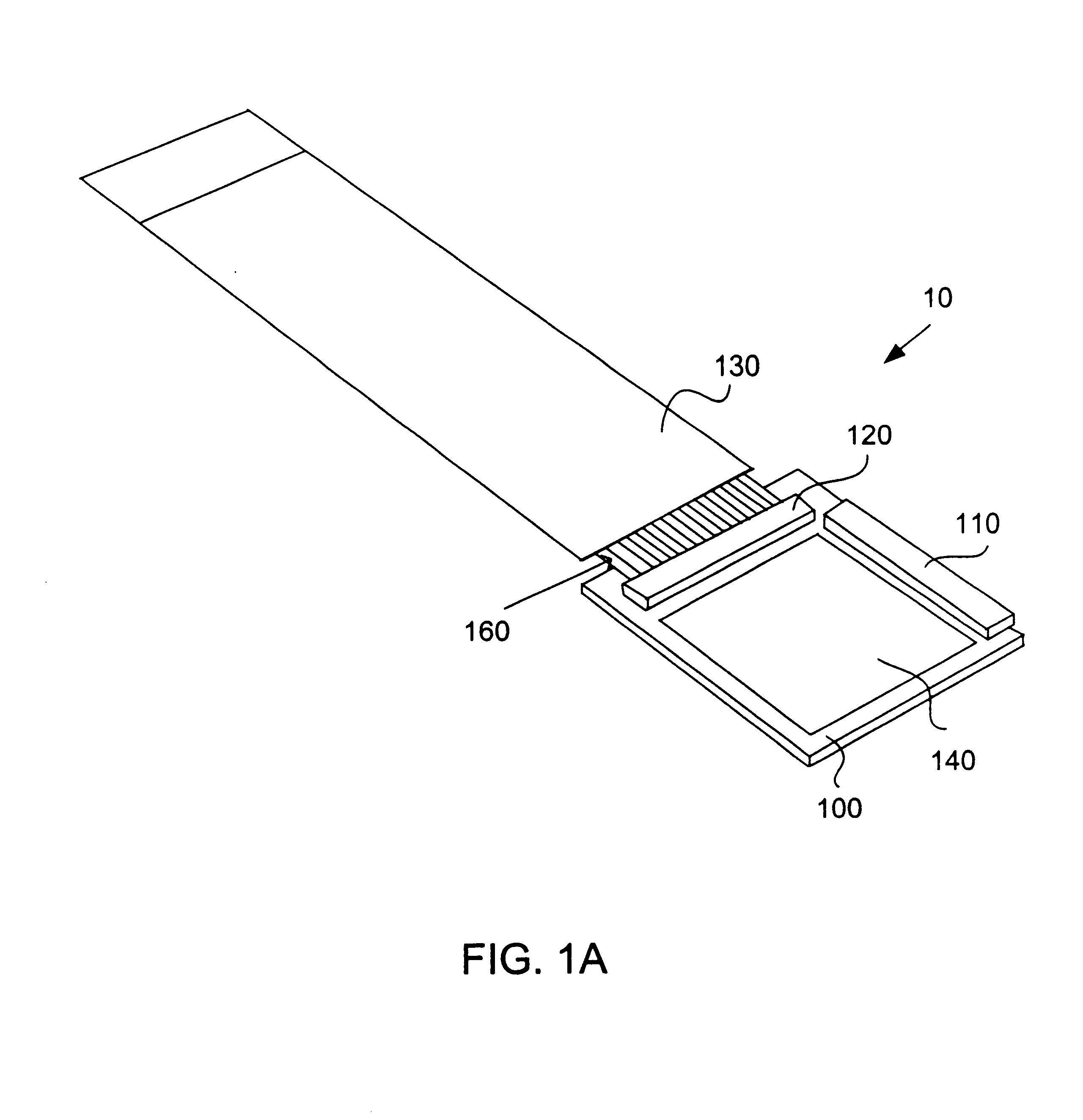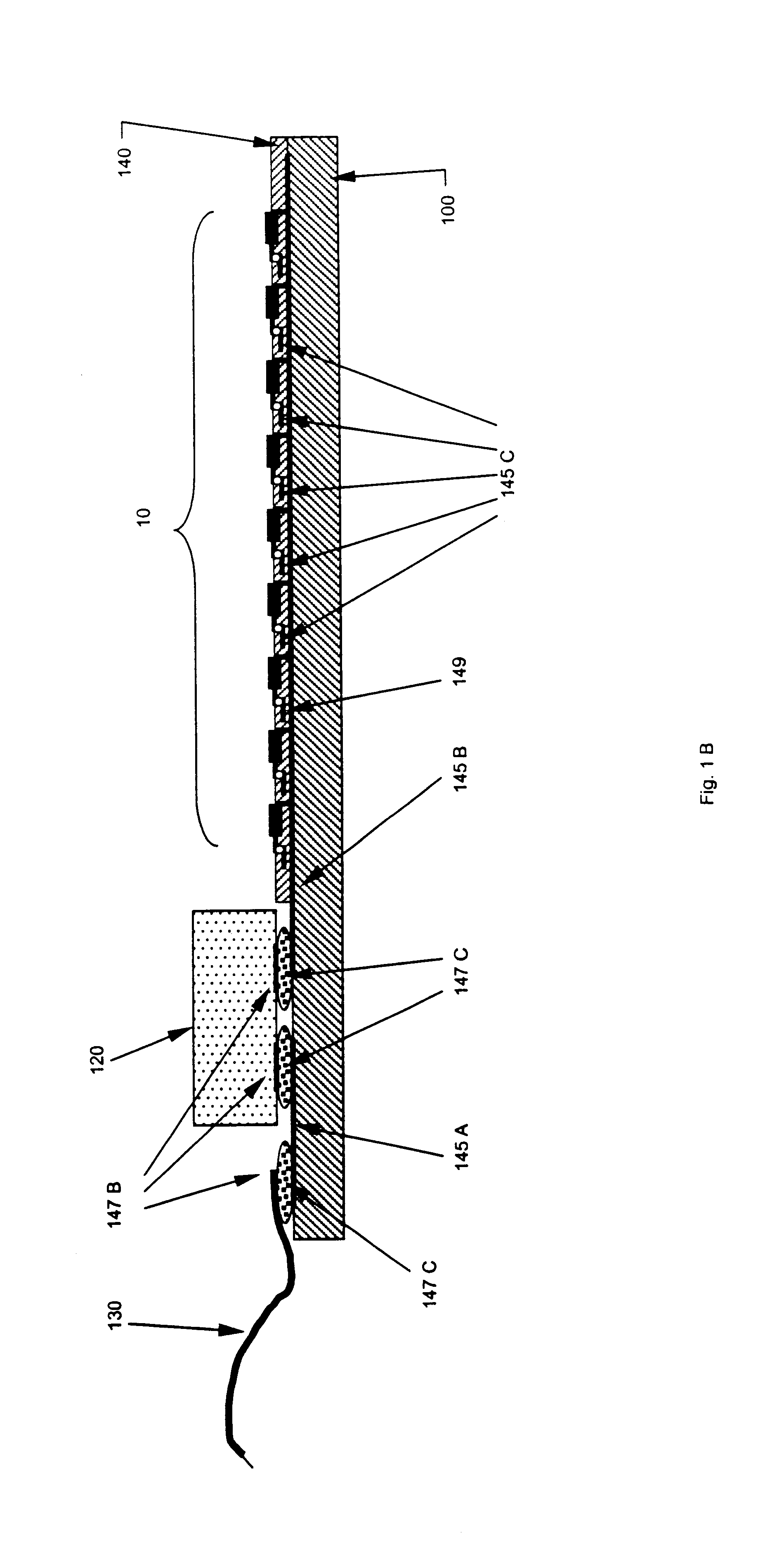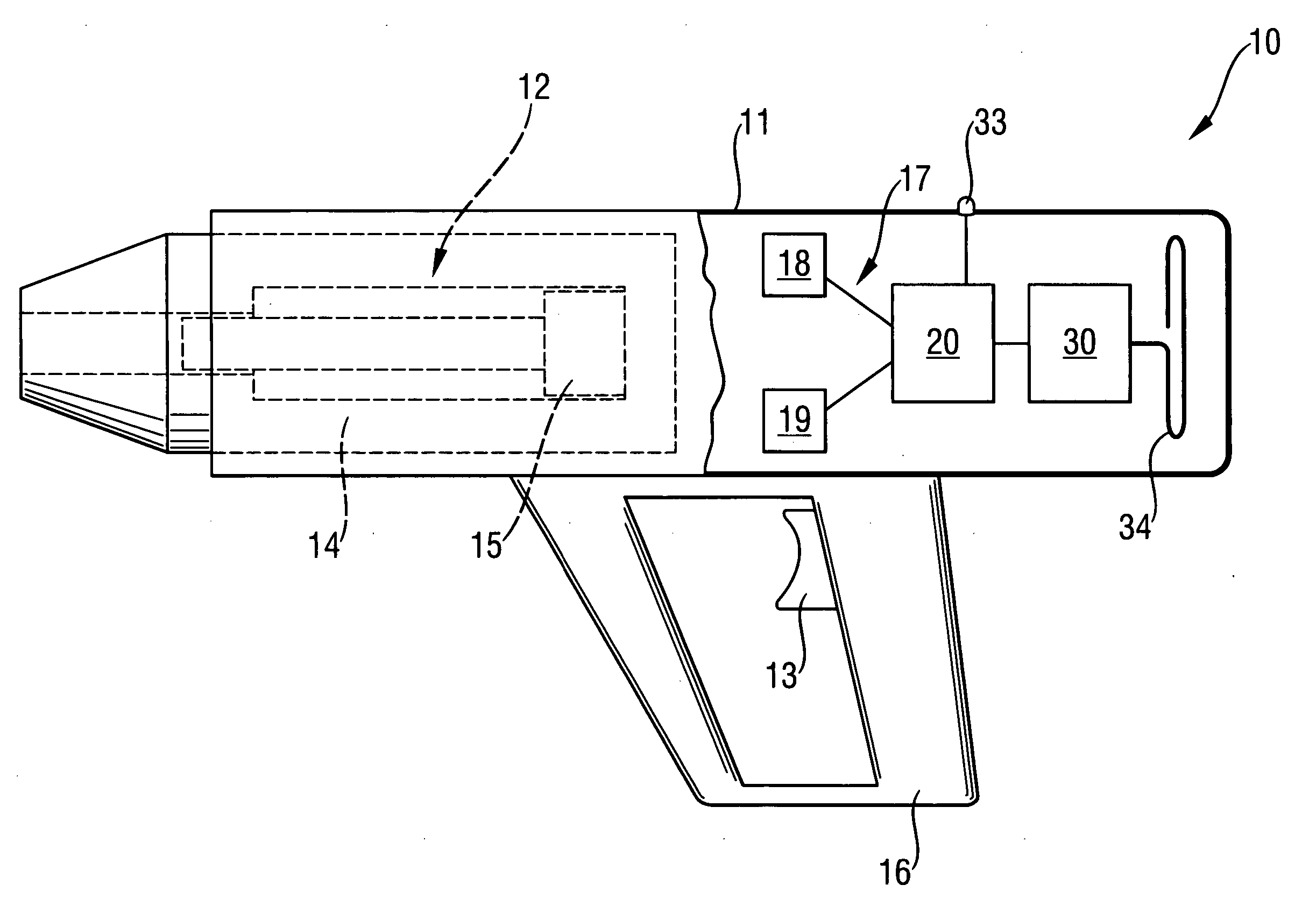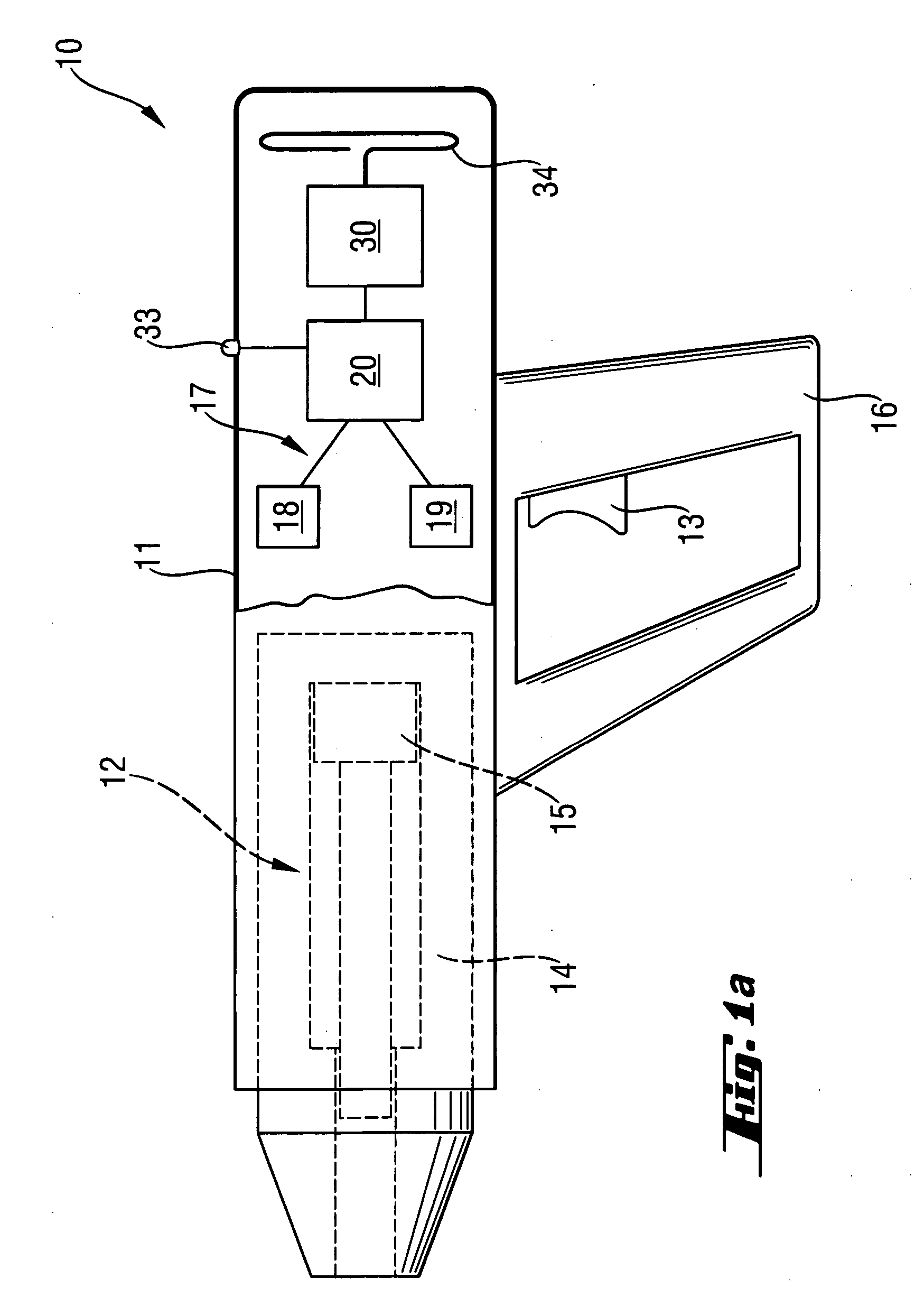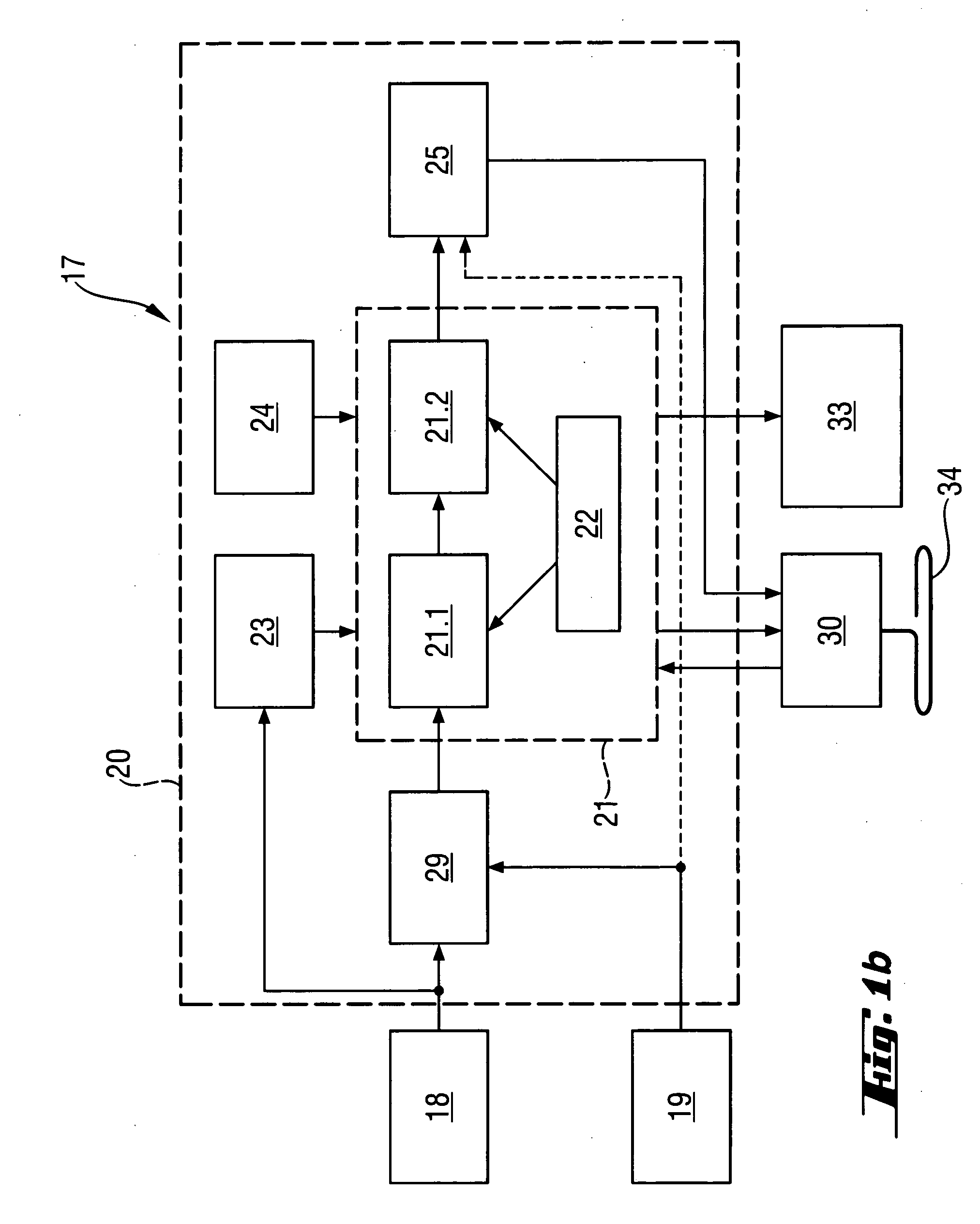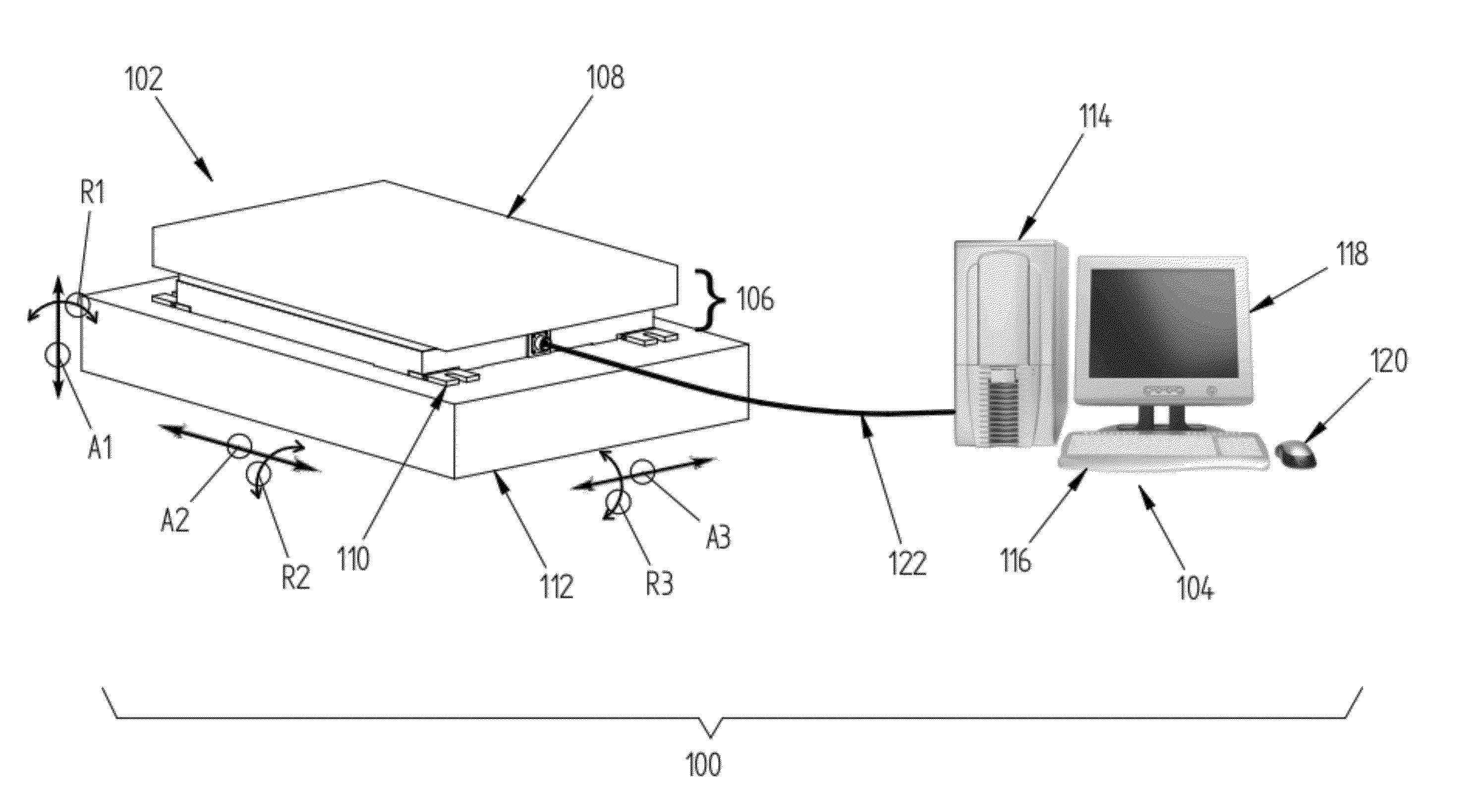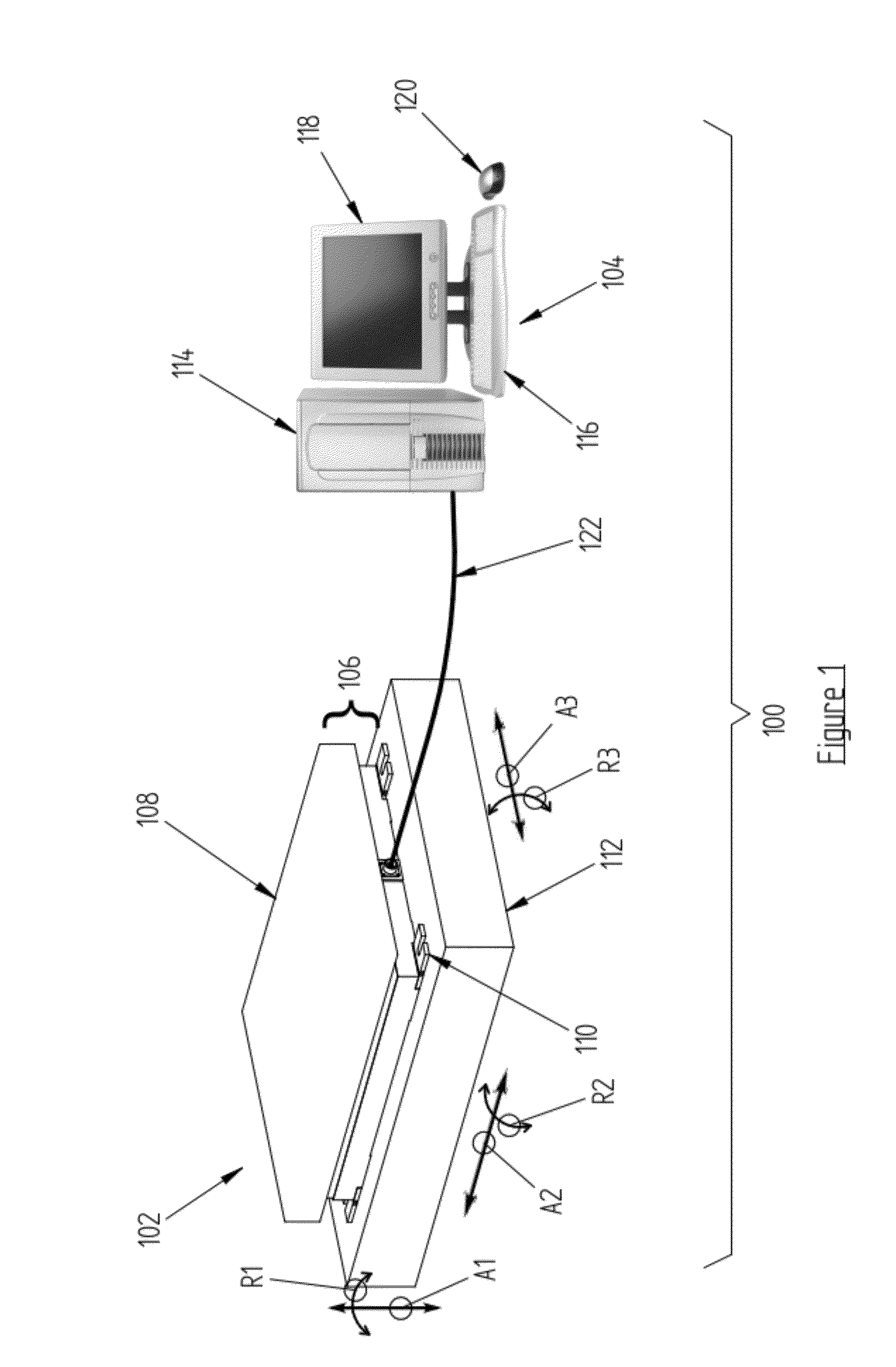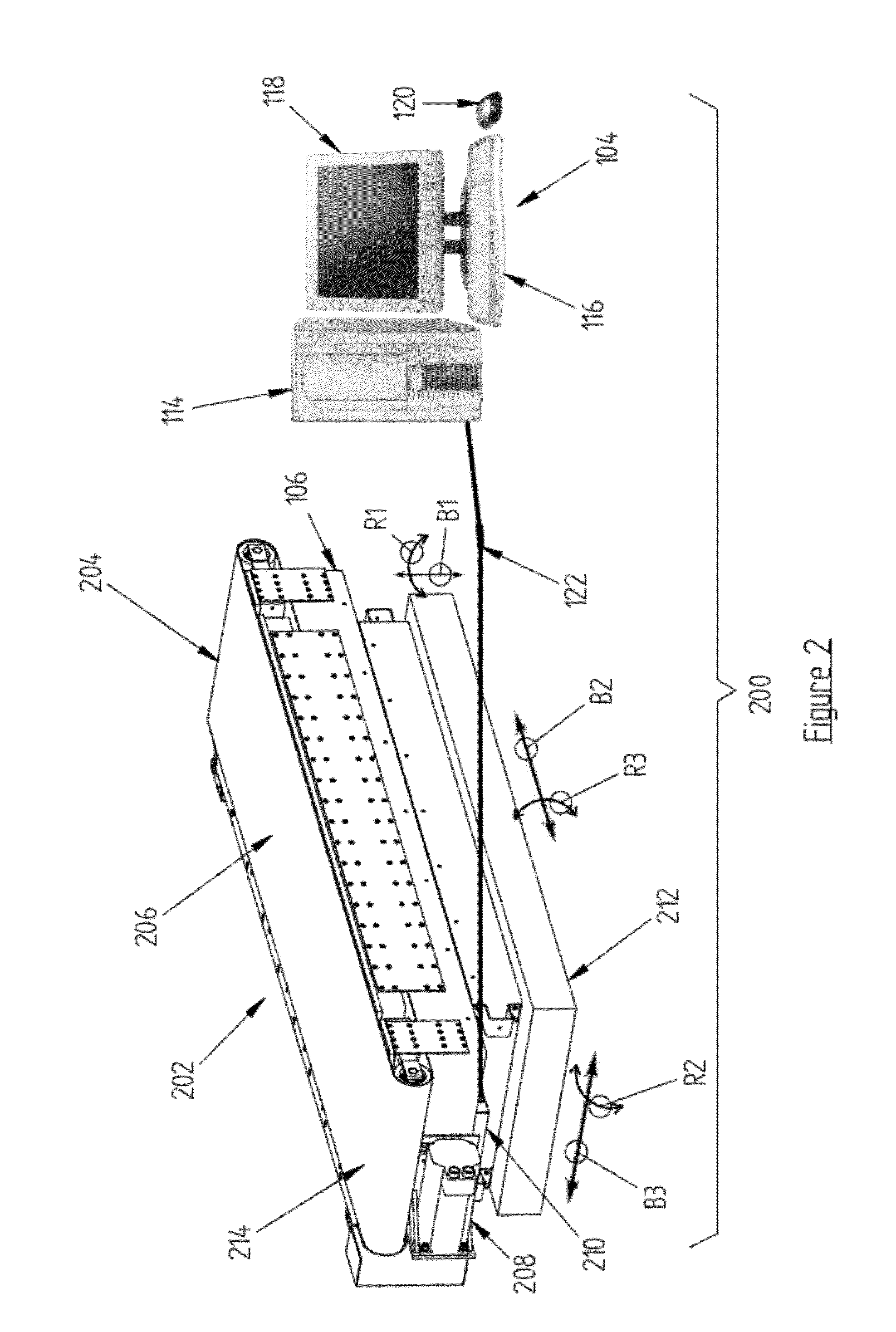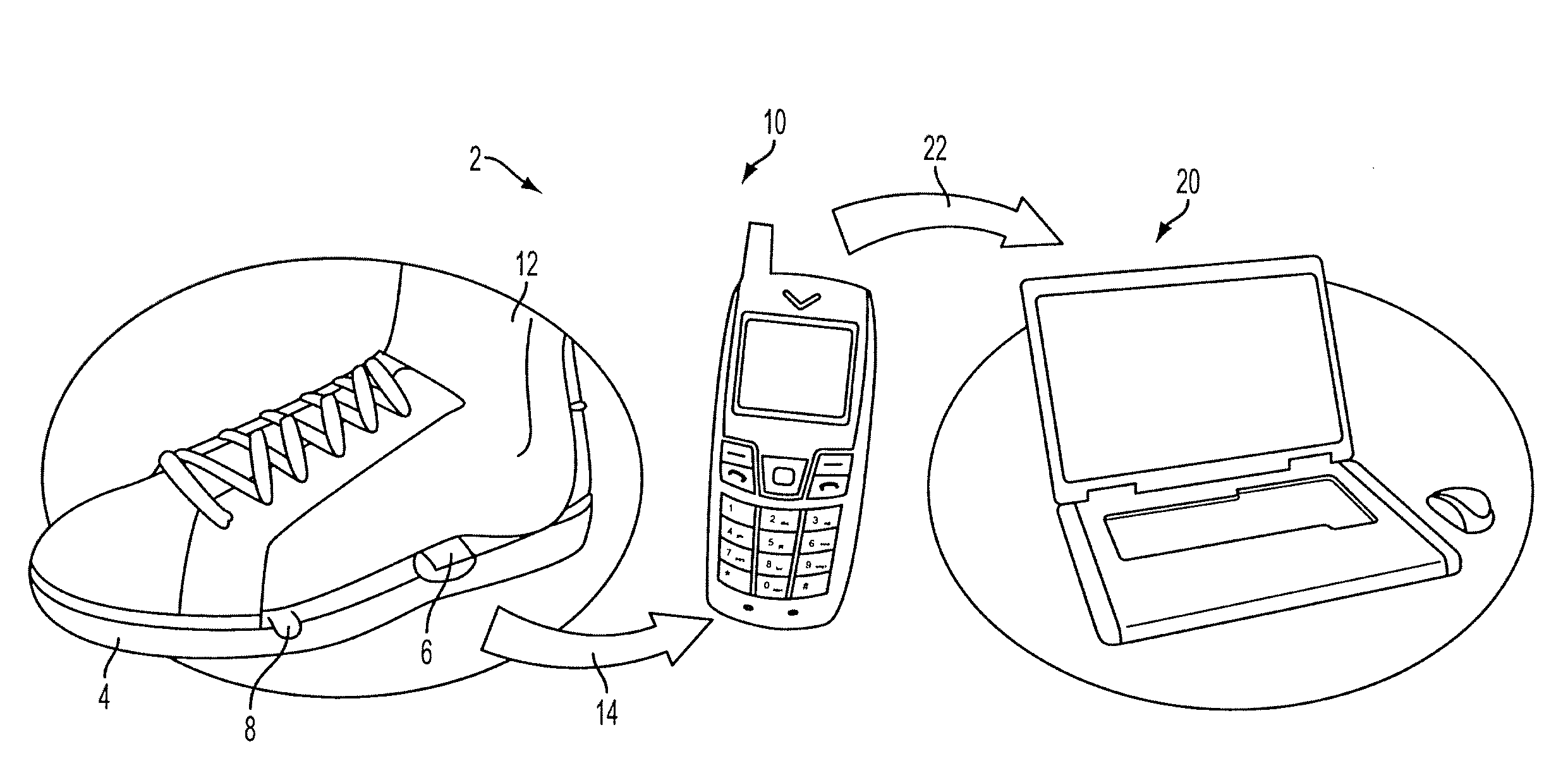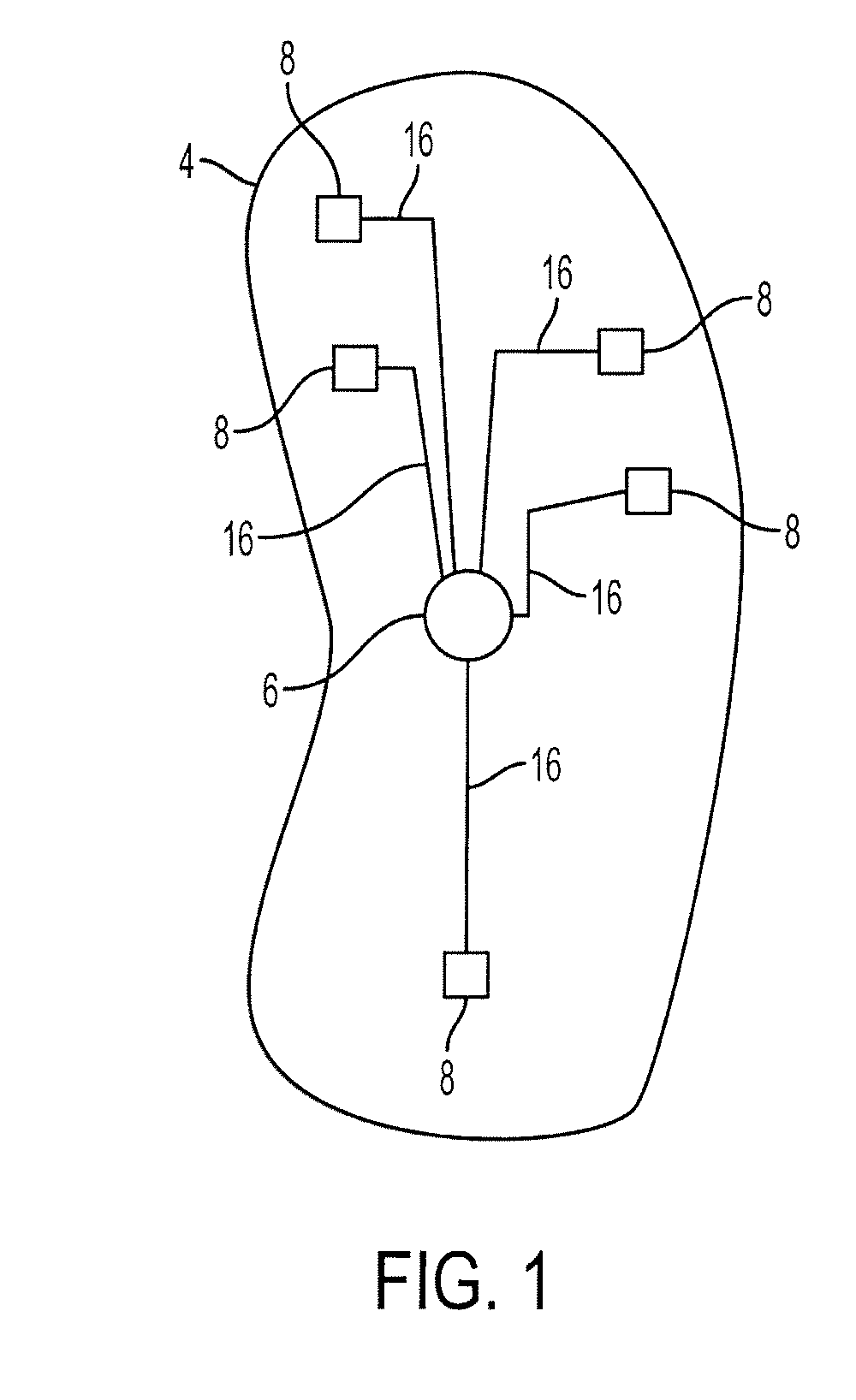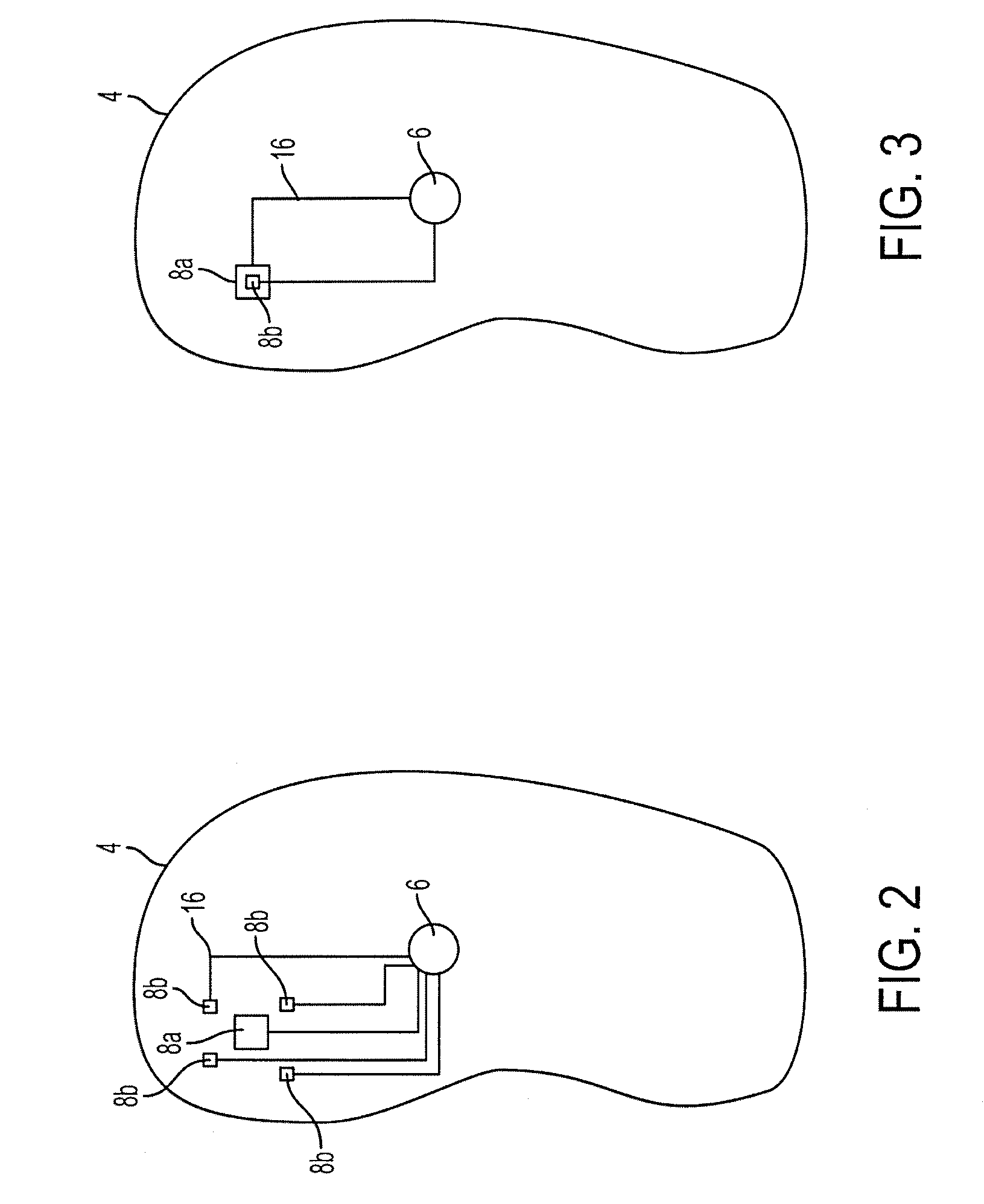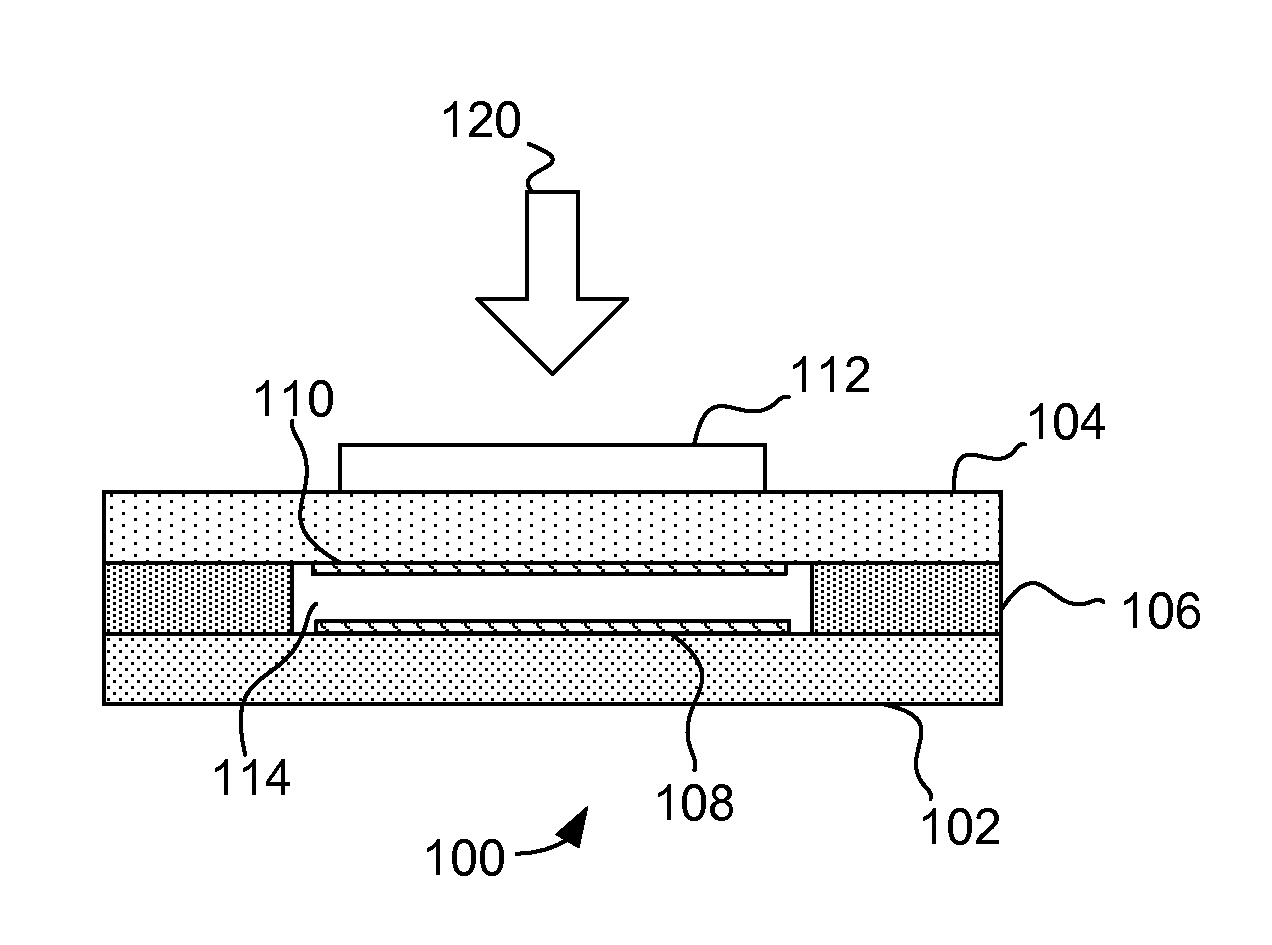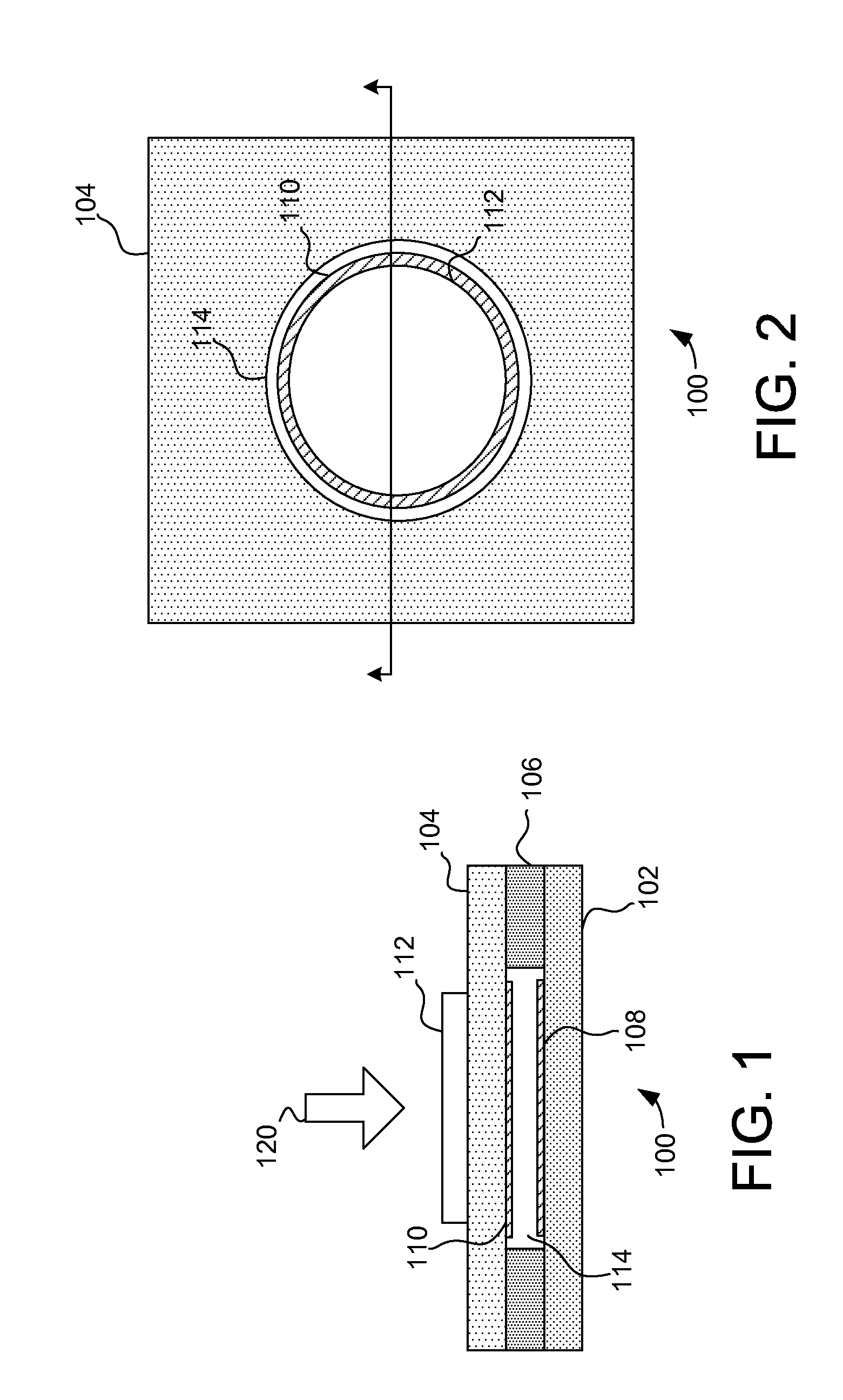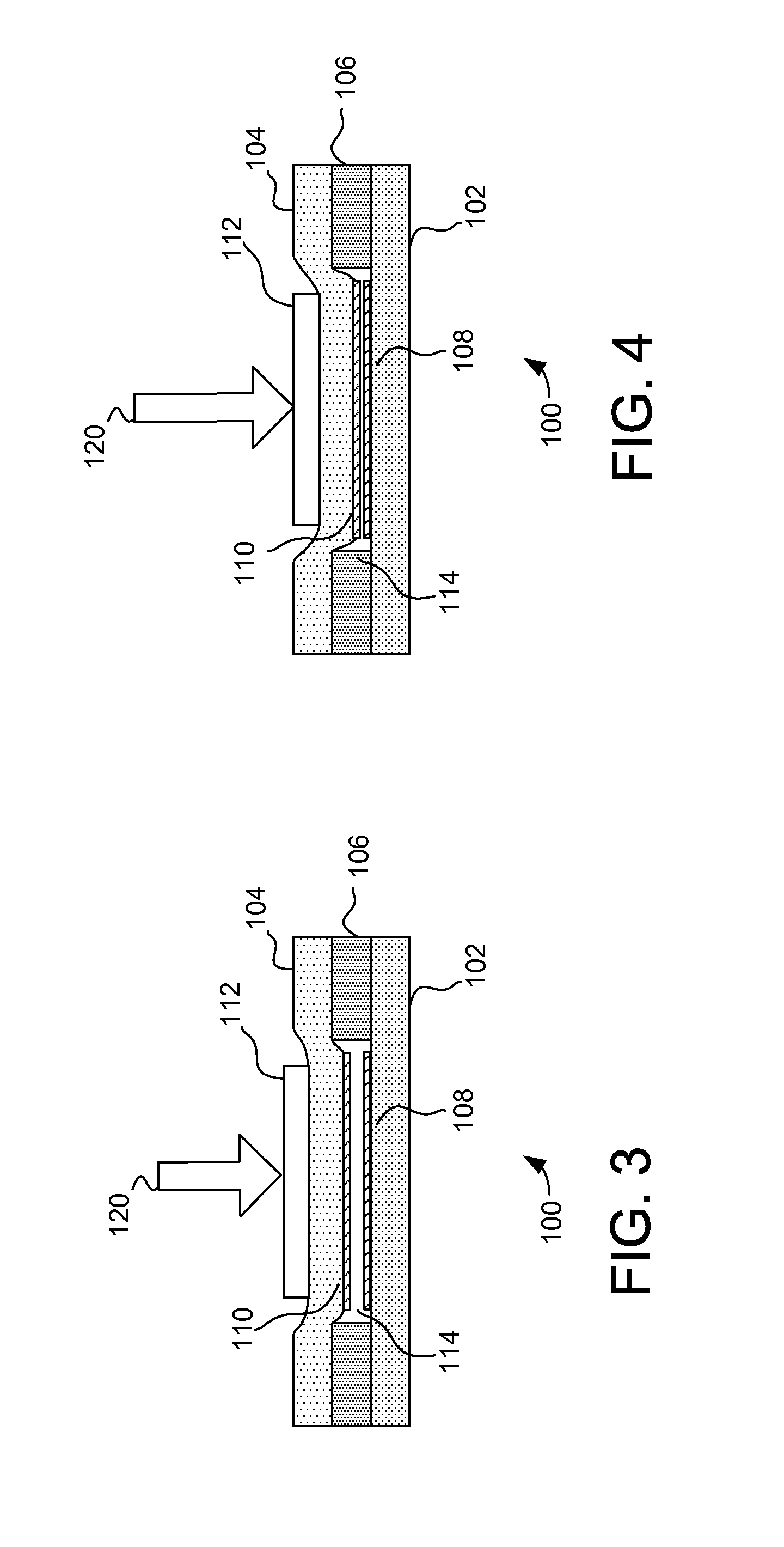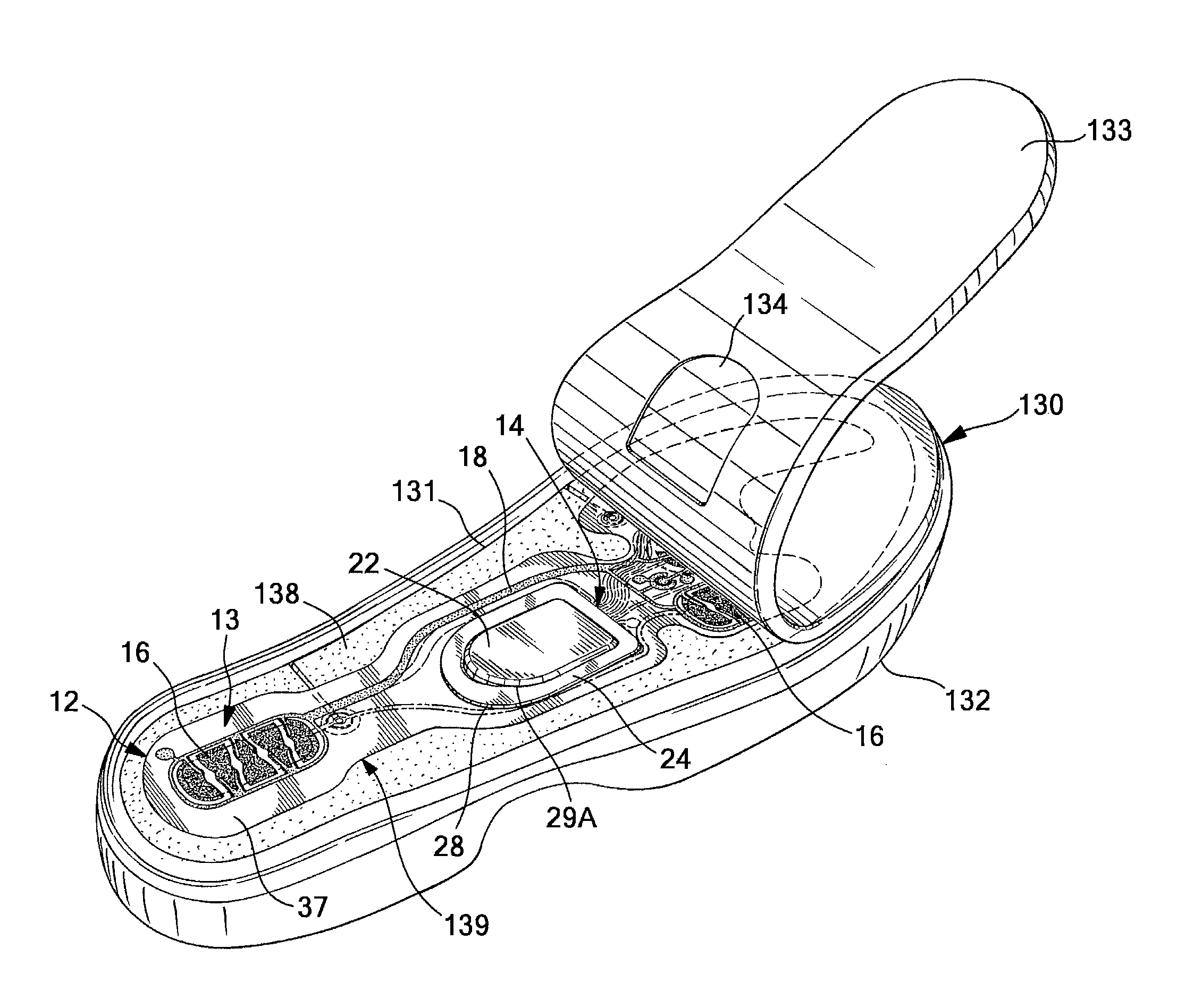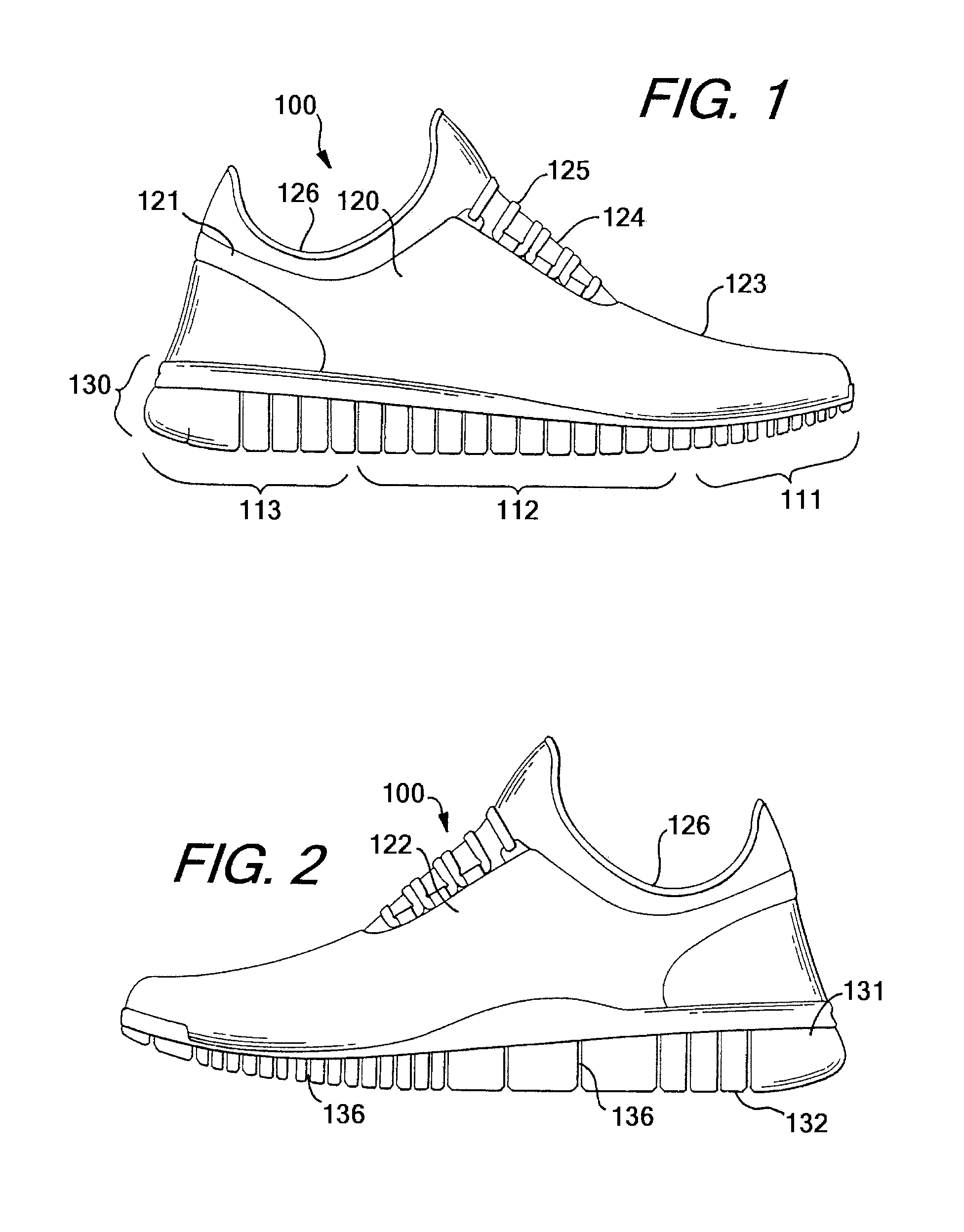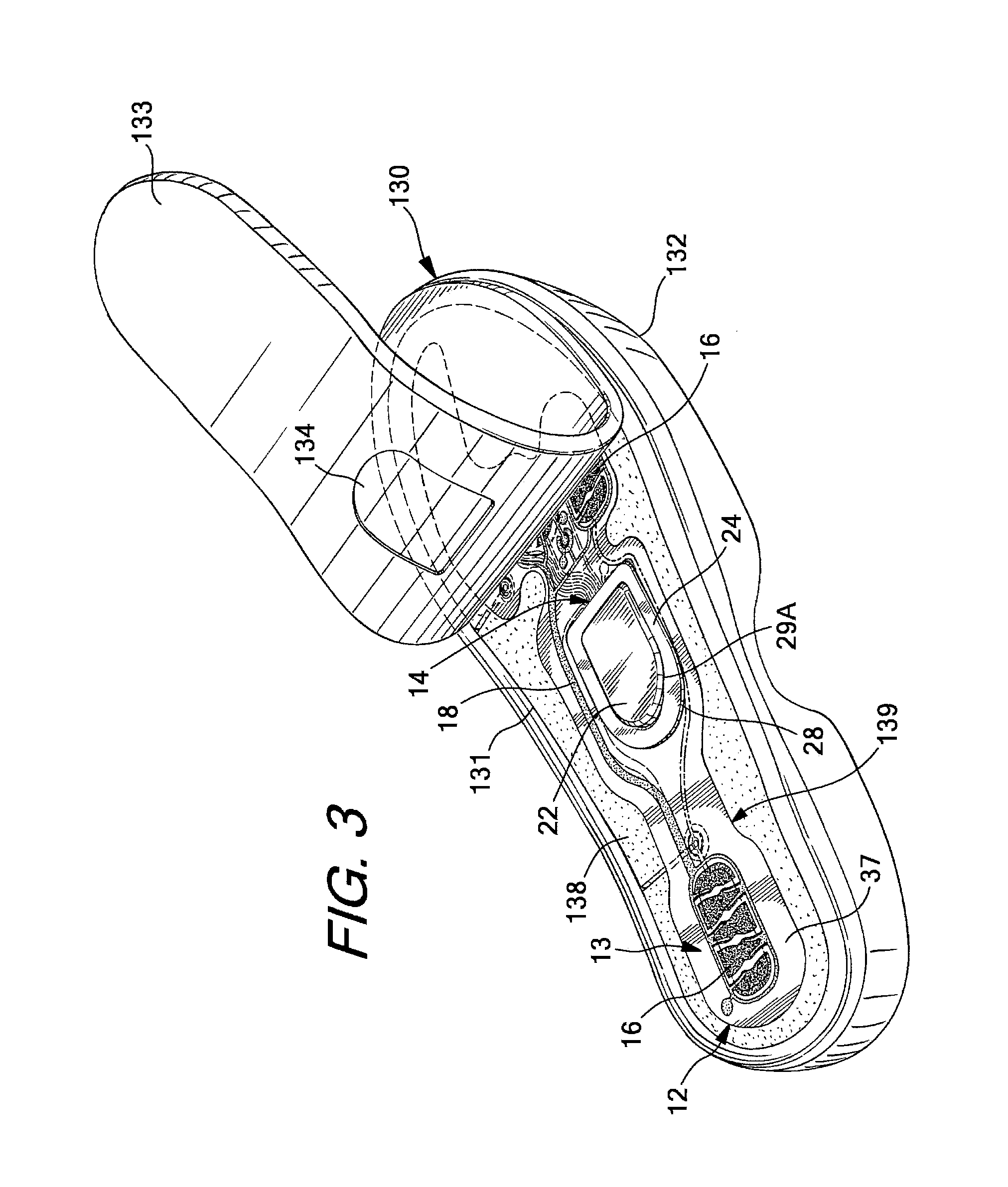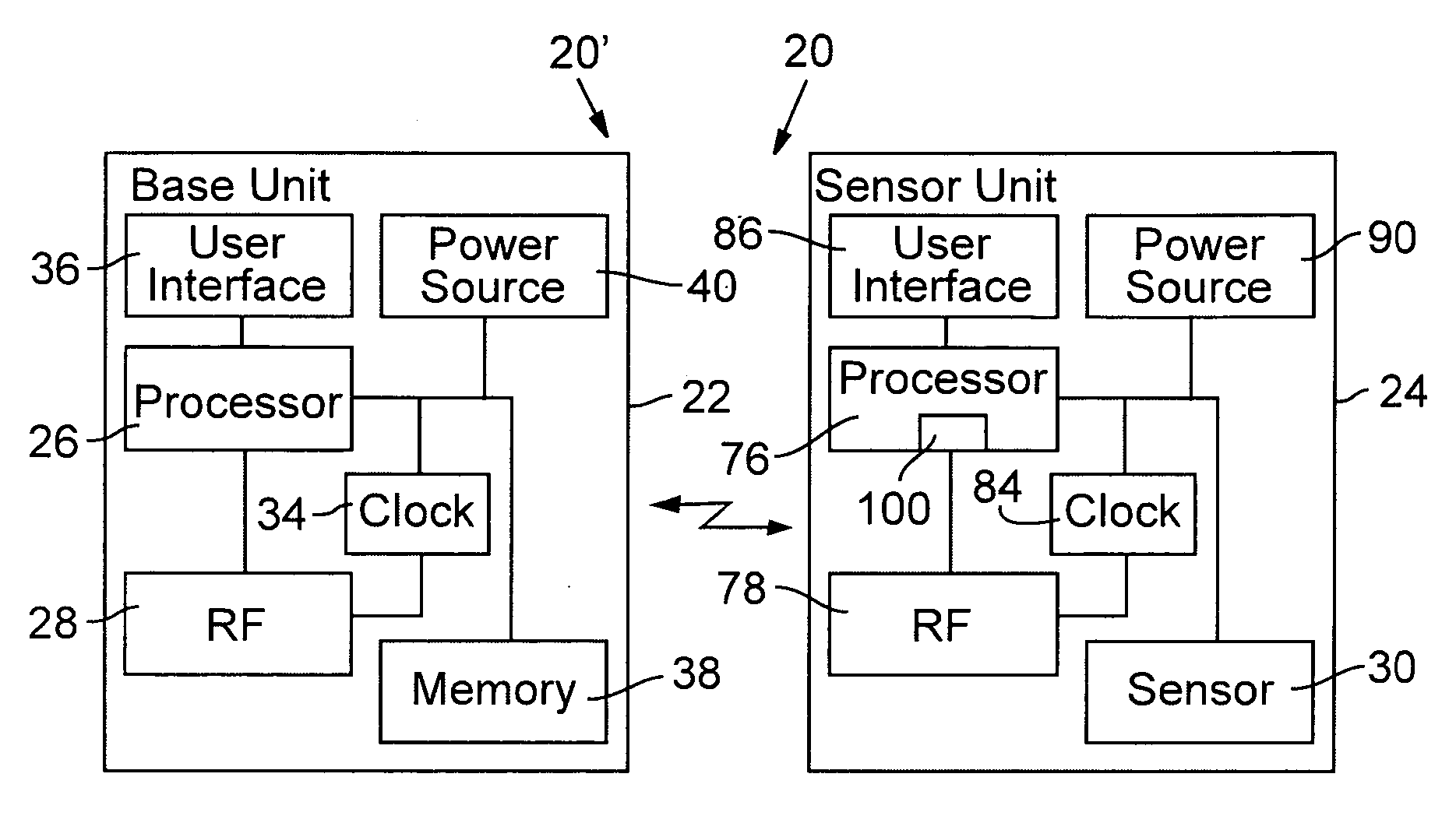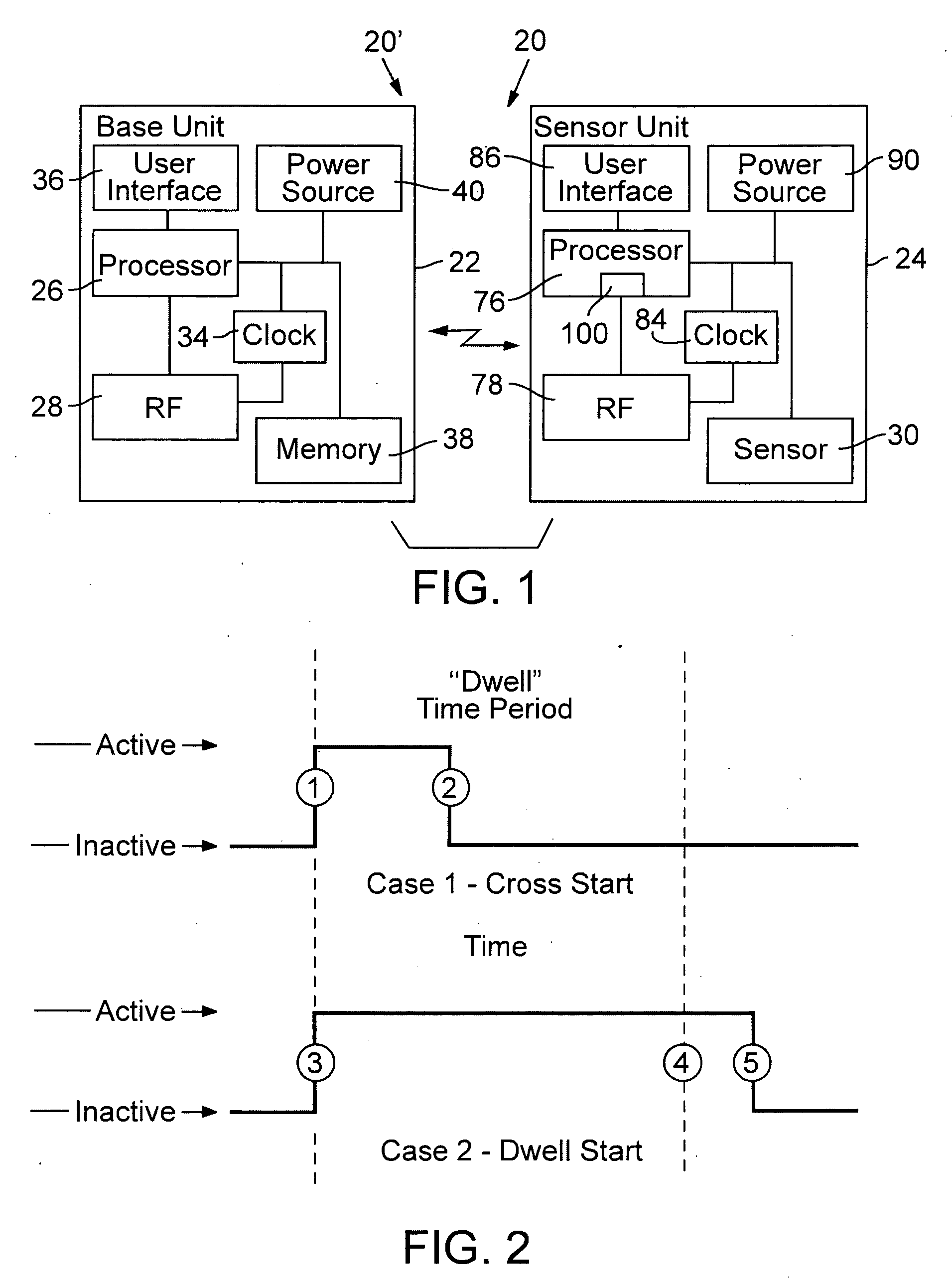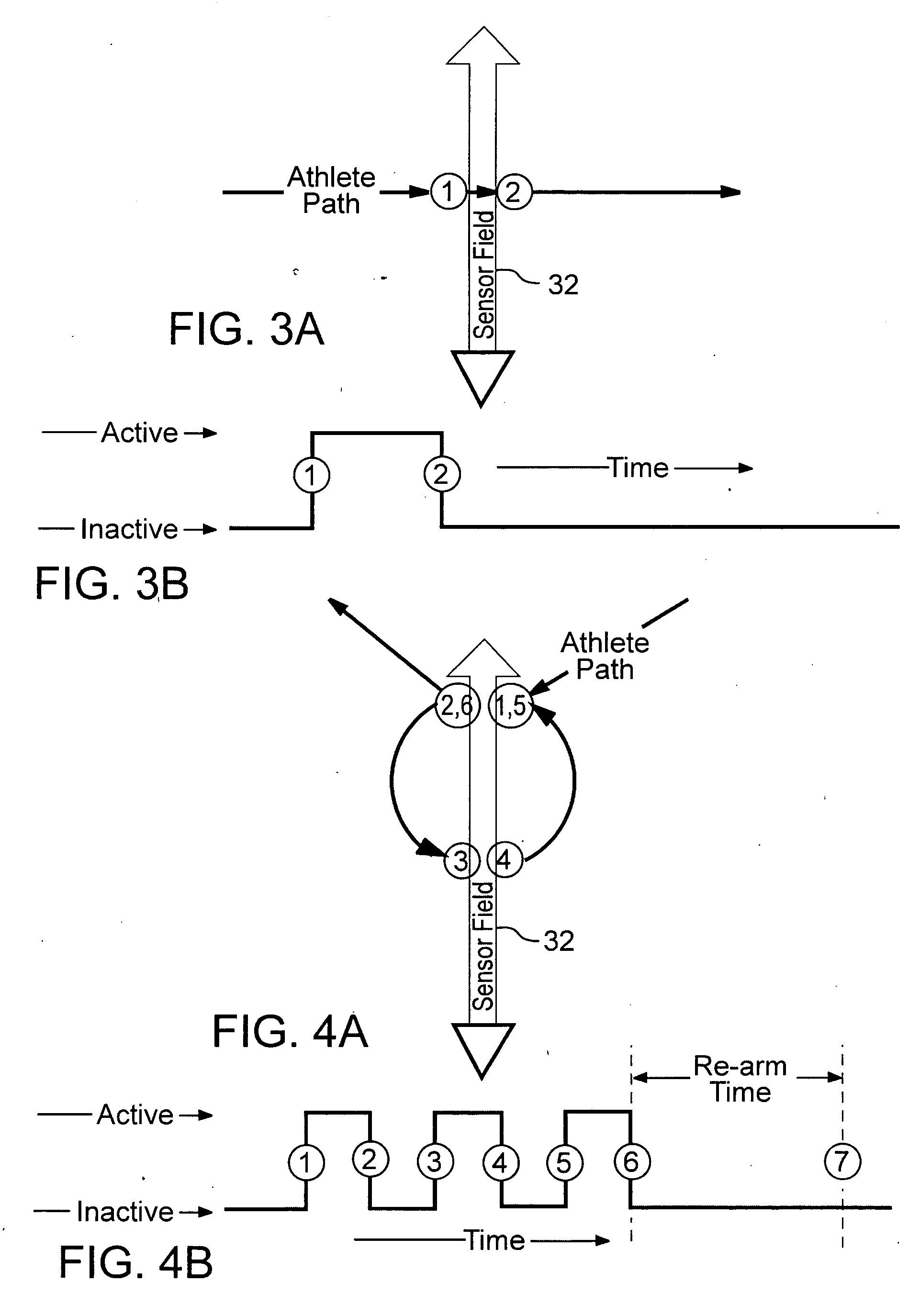Patents
Literature
6718results about "Torque measurement" patented technology
Efficacy Topic
Property
Owner
Technical Advancement
Application Domain
Technology Topic
Technology Field Word
Patent Country/Region
Patent Type
Patent Status
Application Year
Inventor
Shaft mounted energy harvesting for wireless sensor operation and data transmission
InactiveUS20050017602A1Provide informationEfficiently transferring energyBatteries circuit arrangementsPiezoelectric/electrostriction/magnetostriction machinesLine sensorRotational axis
A device for monitoring a rotating shaft is provided. The device measures strain in the shaft and provides angular velocity and torque in the shaft. The device includes a sensor, sensor conditioning circuitry, a microprocessor, and a transmitter, all located on a rotating shaft. The device obtains power by harvesting mechanical energy of the rotating shaft itself. Coils are provided rotating with the shaft and permanent magnets are mounted adjacent the rotating shaft so electrical energy is induced in the coils as they rotate through the magnetic field of the permanent magnets. A battery or capacitor is connected to the coils for storing energy. A microprocessor is connected to the sensors, the storage device, and the transmitter for managing power consumption and for monitoring the amount of electrical energy stored in the storage device and for switchably connecting the storage device to the transmitter when the stored energy exceeds a threshold.
Owner:LORD CORP
Device for receiving and processing a sample
The present invention concerns devices for receiving and processing a sample. The device comprises a sample receiving element adapted to establish fluid communication with and receive a sample directly from a sample container. The sample receiving element also allows for introduction of a sample into the device. A first chamber is in fluid communication with the sample receiving element. One or more second chambers are in fluid communication with the first chamber. The device also comprises first and second ports. The first port provides for venting the device. The second port provides for establishing communication between the device and means for moving the sample from the sample receiving element to the first chamber and for moving the sample from the first chamber to the one or more second chambers. Also included as part of the device is means for controlling the precise amount of the sample introduced into each of the second chambers. The first chamber and / or one or more of the second chambers are adapted for processing the sample. Also disclosed are kits containing the above devices and methods of using the devices to process a sample.
Owner:ACCUMETRICS INC
Wearable biomonitor with flexible thinned integrated circuit
InactiveUS20050096513A1Accurately reflectLow profileSolid-state devicesForce measurementWireless dataEngineering
A sensor system (30) has a sensor module (10) and a receiver module (45). The sensor module (10) functions as a wireless data collection device and has a flexible thin sheet of silicon (60, 65, 70) comprising circuitry (71, 72, 73), a flexible power source (105), and a flexible support substrate (55). The silicon, power source, and flexible support substrate are integrated as layers of the sensor module (10). The layers are placed together in the form of an adhesive bandage (10). A plurality of electrodes (80) are connected to the sensor module (10) and protrude from the flexible substrate (55) for contacting the skin of a subject body (20). The receiver module (45) includes one of an RF receiver with a wireless port for continuously receiving data (40), or a physical I / O port (87) to which the sensor module (10) can be physically connected for downloading stored data from the sensor module (10).
Owner:IRVINE SENSORS
Footwear Having Sensor System
InactiveUS20130213147A1Reinforcement and wear resistance to the bend areaProvide wear resistanceSolesForce measurementEngineeringSensor system
A sensor system is adapted for use with an article of footwear and includes an insert member including a first layer and a second layer, a port connected to the insert and configured for communication with an electronic module, a plurality of force and / or pressure sensors on the insert member, and a plurality of leads connecting the sensors to the port.
Owner:NIKE INC +1
Device for measuring pressure points to be applied by a compressive orthotic device
The device comprises a rigid former reproducing the volume of a portion of the body and suitable for receiving the compressive orthosis. The former (10) incorporates a plurality of sensors (22) distributed over various points of the former and configured in such a manner as to avoid significantly modifying the surface profile of the former, the sensors essentially measuring the pressure applied locally on the former by the orthosis at the location of the sensor and perpendicularly to the surface of the former. Advantageously, at the location of the measurement point, each sensor comprises a thin wall capable of being subjected to microdeformation under the effect of the pressure applied by the orthosis, and means such as a strain gauge bridge, for example. The thin wall can constitute a portion of a support pellet which is fitted to the former in such a manner that its outside surface, which includes the thin wall, is flush with the outside surface of the former.
Owner:INNOTHERA TOPIC INT
System, method and device for monitoring an athlete
InactiveUS20060047447A1Large amount of informationForce measurementAverage speed measurementTransceiverWireless transceiver
The invention provides a system, method and device which allows for real time monitoring of an athlete's performance during an athletic event, such as a boxing match or kick-boxing match, to provide a greater quantity of information to a viewer of the event. The system (9) includes a plurality of monitoring articles (10) attached to each fighter (202 and 204) and a computing device (50) positioned outside of the fighting environment (200). Each of the plurality of monitoring articles (10) preferably includes a motion sensing device (34), a microprocessor (18) and a wireless transceiver (38). The monitoring article (10) creates a real-time impact force signal for each punch or kick, which is wirelessly transmitted outside of the fighting environment (200) to a computing device (50) for processing into an impact value for transmission to and image on an electro-optical display (250).
Owner:IMPACT SPORTS TECH
Biomorphic rhythmic movement controller
InactiveUS7164967B2Sophisticated adaptabilitySophisticated responsivenessProgramme-controlled manipulatorElectrotherapyEngineeringSelf adaptive
An artificial Central Pattern Generator (CPG) based on the naturally-occuring central pattern generator locomotor controller for walking, running, swimming, and flying animals may be constructed to be self-adaptive, by providing for the artificial CPG, which may be a chip, to tune its behavior based on sensory feedback. It is believed that this is the first instance of an adaptive CPG chip. Such a sensory feedback-using system with an artificial CPG may be used in mechanical applications such as a running robotic leg, in walking, flying and swimming machines, and in miniature and larger robots, and also in biological systems, such as a surrogate neural system for patients with spinal damage.
Owner:IGUANA ROBOTICS
Shaft mounted energy harvesting for wireless sensor operation and data transmission
InactiveUS7256505B2High impedanceEnergy efficiencyBatteries circuit arrangementsPiezoelectric/electrostriction/magnetostriction machinesStored energyAngular velocity
A device for monitoring a rotating shaft is provided. The device measures strain in the shaft and provides angular velocity and torque in the shaft. The device includes a sensor, sensor conditioning circuitry, a microprocessor, and a transmitter, all located on a rotating shaft. The device obtains power by harvesting mechanical energy of the rotating shaft itself. Coils are provided rotating with the shaft and permanent magnets are mounted adjacent the rotating shaft so electrical energy is induced in the coils as they rotate through the magnetic field of the permanent magnets. A battery or capacitor is connected to the coils for storing energy. A microprocessor is connected to the sensors, the storage device, and the transmitter for managing power consumption and for monitoring the amount of electrical energy stored in the storage device and for switchably connecting the storage device to the transmitter when the stored energy exceeds a threshold.
Owner:LORD CORP
System for controlling the position and orientation of an object in dependence on received forces and torques from a user
InactiveUS20090259412A1Mitigate such drawbackProgramme controlProgramme-controlled manipulatorSemiconductor chipEngineering
A system for controlling position and orientation of an object. A first part is adapted to receive forces and torques from a user. A sensor is adapted to measure forces and torques caused by changes in position and orientation of the first part relative to a second part. A data processing unit is arranged to receive measured data from the sensor and based thereon to control the position and orientation of the object. The sensor includes a semiconductor chip with integrated sensor elements. The measuring assembly includes a spring arrangement mounted between the first and second parts and mechanically connected to the sensor for converting forces and torques from the user to changes in position and orientation of the first part relative to the second part. The sensor is adapted to measure forces and torques from the spring arrangement caused by the changes in position and orientation of the first part.
Owner:ABB (SCHWEIZ) AG
System and method for providing gas turbine engine output torque sensor validation and sensor backup using a speed sensor
Methods and apparatus are provided for verifying proper operation of a gas turbine engine output torque sensor using a speed sensor, and using the speed sensor as a backup torque sensor. Gas turbine engine output torque is sensed using a reference torque sensor, and gas turbine engine output shaft rotational speed is sensed. Gas turbine engine output torque is calculated from the sensed gas turbine engine output shaft rotational speed. The sensed gas turbine engine output torque is compared to the calculated gas turbine engine output torque to determine if the reference torque sensor is operating properly. The gas turbine engine is controlled at least partially based on the sensed gas turbine engine output torque if the reference torque sensor is determined to be operating properly, and is controlled at least partially based on the calculated output torque if the reference torque sensor is determined to be not operating properly.
Owner:HONEYWELL INT INC
Conductive pressure sensitive textile
InactiveUS7365031B2Low production costReduce edge effectsForce measurementInsulated cablesElectrical conductorEngineering
A fabric including within its construction a first elongated electrical conductor crossed by a second elongated electrical conductor, the conductors being normally biased apart at a crossover point of said fibres with an air gap between them, whereby application of pressure in a direction substantially normal to a plane of the fabric causes the conductors to make contact. The fabric may be woven, knitted, non-woven or plaited. The fabric can be used as a pressure sensor, switch or other sensor.
Owner:INTELLIGENT TEXTILES
Hand-held working tool
Owner:HILTI AG
Orientation and motion sensing in athletic training systems, physical rehabilitation and evaluation systems, and hand-held devices
ActiveUS7383728B2Improve accuracyHigh sensitivityPerson identificationInertial sensorsObject basedAthletic training
Owner:NOKIA TECH LTD
Elastically stretchable fabric force sensor arrays and methods of making
ActiveUS8161826B1Facilitate measuring and mapping forcesWork measurementMaterial strength using tensile/compressive forcesSensor arrayConductive polymer
Force or pressure transducer arrays have elastically stretchable electrically conductive polymer threads disposed in parallel rows and columns that contact at intersections thereof a piezoresistive material which has an electrical resistivity which varies inversely with pressure or force exerted thereon to form a matrix array of force or pressure sensor elements. The threads are fixed to a single one or pair of flexible elastically stretchable substrate sheets made of thin sheets of an insulating polymer such as PVC, or for greater elasticity and conformability to irregularly-shaped objects such as human body parts, an elastically stretchable fabric such as LYCRA or SPANDEX. Elastic stretchability of the sensor arrays is optionally enhanced by disposing either or both row and column conductive threads in sinuously curved, serpentine paths rather than straight lines.
Owner:PATIENTECH LLC
Force-sensing bearing
InactiveUS7316168B2Rolling contact bearingsMachine bearings testingElectrical conductorPulp and paper industry
The invention relates to a roller bearing comprising curved running paths, in addition to roller bodies and strain gauge sensors which are arranged between said running paths, said sensors being located in a groove on the outer diameter of the outer ring and / or on the inner diameter of the inner ring. The length of two adjacent strip conductor sections of the strain gauge sensor varies in such a way as to measure the angular position of the roller bodies between the strip conductors.
Owner:INA SCHAEFFLER KG
Body Mounted Monitoring System And Method
ActiveUS20130110415A1Acceleration measurement using interia forcesForce measurementMonitoring systemEngineering
Apparatus, systems, and methods for monitoring head acceleration and / or forces acting thereon are disclosed. A device for monitoring an acceleration or a force acting on the head of a user includes a flexible article adapted to be worn on the head of the user; and a monitoring assembly coupled to the flexible article. The monitoring assembly includes a sensor for measuring a force on the head and transmitting data relating to the force, the sensor disposed proximate to the head, a processor adapted to receive the force data from the sensor, and a flexible strip operatively connecting the sensor and the processor.
Owner:MEDIDATA SOLUTIONS +1
System and method for filling gaps of missing data using source specified data
InactiveUS6862540B1Accurate calculationElectric signal transmission systemsTemperatue controlMissing dataData filling
A method and apparatus are provided for filling a gap of missing data using source specified data. The method includes analyzing a first set of data representative of utility consumption for a plurality of days to determine clusters of days of the week having similar utility consumption. The method further includes generating an individual profile of utility consumption for each cluster, and copying data from at least one individual profile into the gap to form a second set of data without any gaps. A system for filling a gap of missing data using source specified data includes a microprocessor programmed to copy data from at least one individual profile into the gap, and to adjust the copied data up or down to account for local trend information adjacent to the gap.
Owner:JOHNSON CONTROLS TYCO IP HLDG LLP
Magnetising arrangements for torque/force sensor
A magnetoclastic transducer for sensing a torque in a shaft (150) is formed by circumferentially magnetising a magnetisable, integral portion (156) of the shaft. To assist in the emanation of a flux-dependent torque, the transducer element portion (156) of the shaft may have further circumferentially magnetised portions (154, 158) to each side. These further portions (154, 158) are of opposite polarity magnetisation to that of the transducer element (156). The external magnetic flux emanated by the transducer (156) is a function of torque and is detectable by a magnetic field sensor (160). An alternative means for the same purpose is to provide the transducer element at a portion (172) of the shaft (170) having an integral annular section of raised profile projecting beyond adjoining portions of the shaft. The shaft may be provided with a series of circumferentially magnetised portions of alternating polarity. A number of ways of achieving circumferential magnetisation are described, together with other directions such as axial. A shaft having the whole or an integral portion of it magnetised can also be used to provide a force transducer sensitive to bending moment induced in the shaft by a force to be measured.
Owner:ABAS
Apparatus and method for measuring quantity of physical exercise using acceleration sensor
Owner:SAMSUNG ELECTRONICS CO LTD
Measuring system and method
InactiveUS20070262855A1Cutting costsLow costRoad vehicles traffic controlEngine testingReal time analysisMeasurement device
In a motor vehicle, a fuel consumption measurement system comprising: measuring device for the vehicle's fuel consumption as first data; measuring device for second data for variables which may affect the fuel consumption, the second data including at least locations traveled by the vehicle, and wherein vehicle's location is measured in real time using a global positioning system or using info provided by a cellular wireless supplier; c. storage for storing samples of the first data with the second data; d. computing device for analyzing in real time the stored first and second data for reaching conclusions relating to ways for reducing the fuel consumption, wherein the conclusions include at least the cost of fuel used; e. display for presenting the conclusions in real time to a vehicle's driver.
Owner:ZUTA MARC +1
Signal-balanced shield electrode configuration for use in capacitive displacement sensing systems and methods
ActiveUS20050092108A1Convenient and economical and reliable and compactIncreased complexityForce measurement by measuring magnetic property varationWork measurementElectricityCapacitance
A capacitive encoder includes a signal-balanced shield electrode configuration that does not require electrical ground connection or active sensing and control in order to maintain the shield electrode(s) at a sufficiently constant voltage during capacitive position measurements. The shield electrode configuration is positioned in a capacitive coupling gap between transmitter electrodes and receiver electrodes during operation. The shield electrode configuration is patterned in a manner that complements the layout of the transmitter electrodes, such that the shield electrode configuration inherently floats at a nominally constant electrical potential when coupled to the signals present on the transmitter electrodes. The resulting capacitive encoder is thus more economical to build, convenient to install, and reliable during operation than capacitive encoders which use an electrical connection, compensation drive circuitry, or grounding in order to control the potential of a shield member that operates at a potential that is not inherently constant.
Owner:ANDERMOTION TECH
Systems and methods for maintaining load histories
Methods and systems for constructing a load history database for a structure is disclosed. In one embodiment, a method is disclosed that may include detecting a measurable parameter on the structure utilizing a sensor positioned on the structure and determining a value of external loads acting upon the structure based on the detected parameter. Further, the method may include evaluating the value of the external loads against a pre-established factor. Based on the evaluation, the value of the external loads are selectively stored in the load history database.
Owner:CATERPILLAR INC
Fingerprint image capture device with a passive sensor array
A fingerprint-sensing device with a sensor array that does not use active switching elements is fabricated on a base. Sensor support integrated circuits, which contain processing and addressing circuitry, are separately fabricated and subsequently mounted on the base, establishing electrical connections with an interconnect structure within the base, and are thus not integrated with the sensor array. The sensor support integrated circuits can be covered by a bezel structure and the sensor array by a covering material. In addition, a connection cable can be provided to connect the sensor array and the sensor support integrated circuits with a power source and to other external devices and to convey signals generated by the sensor array to the external devices.
Owner:LENOVO PC INT
Hand-held working tool
The present invention relates to a hand-held working tool, such as a setting device used for driving fastening elements such as nails, bolts, pins and the like into a surface, or an at least partially percussive hand-held tool having a housing part (11) and a working mechanism such as a setting or striking mechanism arranged inside the housing of the device and having at least one sensing device (17) for sensing acceleration forces occurring during a setting or striking pulse as well as a handle. For improving this type of hand-held working tool (10) an interface (30) for data communication and data output is arranged on the hand-held working tool.
Owner:HILTI AG
Force and/or motion measurement system having inertial compensation and method thereof
ActiveUS8315823B2Accurate compensationAccurately determineForce measurementDiagnostic recording/measuringMeasurement deviceSeries compensation
According to one aspect of the invention, a force measurement system includes a force measurement assembly, a motion base configured to displace the force measurement assembly, and an inertial compensation system configured to determine the inertial forces and / or moments resulting from the displacement of the force measurement assembly by the motion base. According to another aspect of the invention, a method for accurately determining the forces and / or moments applied to a surface of a force measurement device by a subject disposed thereon is disclosed, which includes the step of determining, by using an inertial compensation system, the inertial forces and / or moments resulting from the displacement of a force measurement assembly by a motion base. According to still another aspect of the invention, a force and / or motion measurement system having inertial compensation includes a motion acquisition system having a plurality of motion sensing devices configured to capture a subject's movement.
Owner:BERTEC
Foot pressure alert and sensing system
This invention relates to a system that continuously monitors pressure and force on the foot, analyzes and visualizes the pressure and force exerted on said foot in real-time. The invention measures pressure and force applied to a plurality of sensors placed in various points of an orthotic, shoe, shoe lining, insert, sock or sock type device. If the sensors detect pressure or force, the sensors send a signal to a microcomputer processor located in the shoe that subsequently analyzes and sends the data wireless to either a handheld electronic device, a personal computer, an electronic data capture system or a software program. The handheld electronic device or the personal computer then displays the data to an operator of the device or computer instantaneously; while the data capture system or program forwards the information to a handheld device and / or personal computer.
Owner:ABENA HLDG +1
Input device with force sensing
ActiveUS20110278078A1Improve device performanceReduce complexityTransmission systemsResistance/reactance/impedenceCapacitanceEngineering
Devices and methods are provided that utilize a first electrode disposed on a first substrate and a second electrode disposed on a second substrate, where the first electrode and the second electrode define at least part of a variable capacitance. A third substrate is arranged between the first substrate and the second substrate, the third substrate having an opening arranged such that at least a portion of the first electrode and the second electrode overlap the opening. A transmission element is provided that partially overlaps the opening. The transmission element is physically coupled to the second electrode such that a force biasing the transmission element causes the second electrode to deflect relative to the first electrode, thus changing the variable capacitance. A measurement of the variable capacitance may then be used to determine force information.
Owner:SYNAPTICS INC
Footwear having sensor system
ActiveUS8739639B2Reinforcement and wear resistance to the bend areaProvide wear resistanceForce measurementWork measurementEngineeringSensor system
A sensor system is adapted for use with an article of footwear and includes an insert member including a first layer and a second layer, a port connected to the insert and configured for communication with an electronic module, a plurality of force and / or pressure sensors on the insert member, and a plurality of leads connecting the sensors to the port.
Owner:NIKE INC
Athleticism rating and performance measuring systems
ActiveUS20070272011A1Quick and easy and accurate collectionRegistering/indicating time of eventsDigital data processing detailsRating systemExercise performance
A universal athleticism rating system and related athletic performance measuring systems for accurately detecting and recording athletic performance are disclosed. The athleticism rating system evaluates individual athletes against a common, standardized, set of athletic performance tests. Each athlete performs the athletic tests and his or her scores in the individual tests are entered into a standardized calculation to produce a single athletic performance score. The related performance measuring system is preferably a timing system that ensures quick, easy, and accurate collection of athletic event timing related data without the need for the athlete to wear any special detection devices or the like. In a preferred embodiment, the performance measuring system integrates with the rating system to provide seamless athletic data collection and rating of athletes.
Owner:NIKE INC
Power wrench
PCT No. PCT / EP97 / 05974 Sec. 371 Date Jul. 16, 1999 Sec. 102(e) Date Jul. 16, 1999 PCT Filed Oct. 29, 1997 PCT Pub. No. WO98 / 22263 PCT Pub. Date May 28, 1998A power screwdriver has a drive unit and an input circuit for inputting screw size, material quality, pitch, and clamping length of a screw. An evaluation circuit is provided for determining a nominal prestress force based on input screw size, material quality, and clamping length, for determining a nominal torque based on the nominal prestress force and the pitch, and for determining the screw clamping angle resulting from the nominal prestress force and the pitch. A sensing device for sensing the actual torque is provided, and a further sensing device for sensing the actual screw clamping angle is present. A control and switch-off device controls further rotation of the drive unit when the actual torque coincides with the nominal torque and switches off the drive unit when the actual screw clamping angle coincides with the nominal screw clamping angle. The nominal torque, based on which the additional rotation o f the drive unit is controlled until the nominal screw clamping angle is reached, is set to a value which is smaller than the torque corresponding to the nominal pretension force. An additional rotation angle of the drive unit, for reaching the nominal screw clamping angle corresponding to the nominal prestress force, is determined based on the difference between the nominal screw clamping angle and the adjusted screw clamping angle corresponding to the preset nominal torque and is used for switching off the drive unit.
Owner:HOHMANN JORG +1
Features
- R&D
- Intellectual Property
- Life Sciences
- Materials
- Tech Scout
Why Patsnap Eureka
- Unparalleled Data Quality
- Higher Quality Content
- 60% Fewer Hallucinations
Social media
Patsnap Eureka Blog
Learn More Browse by: Latest US Patents, China's latest patents, Technical Efficacy Thesaurus, Application Domain, Technology Topic, Popular Technical Reports.
© 2025 PatSnap. All rights reserved.Legal|Privacy policy|Modern Slavery Act Transparency Statement|Sitemap|About US| Contact US: help@patsnap.com
